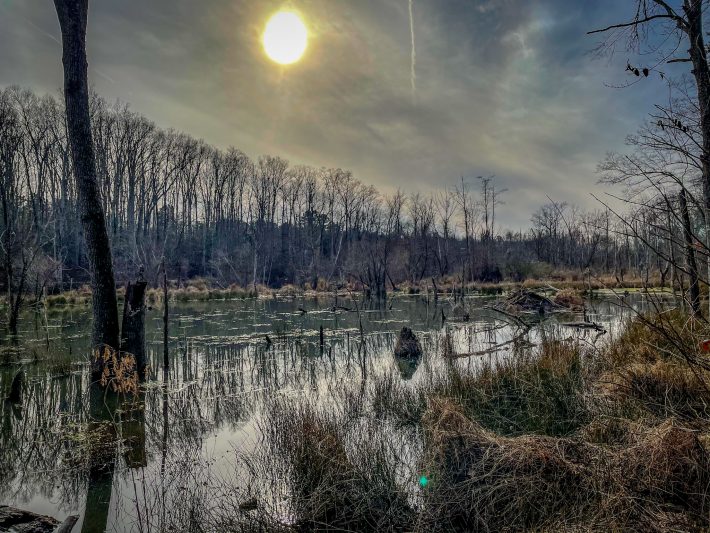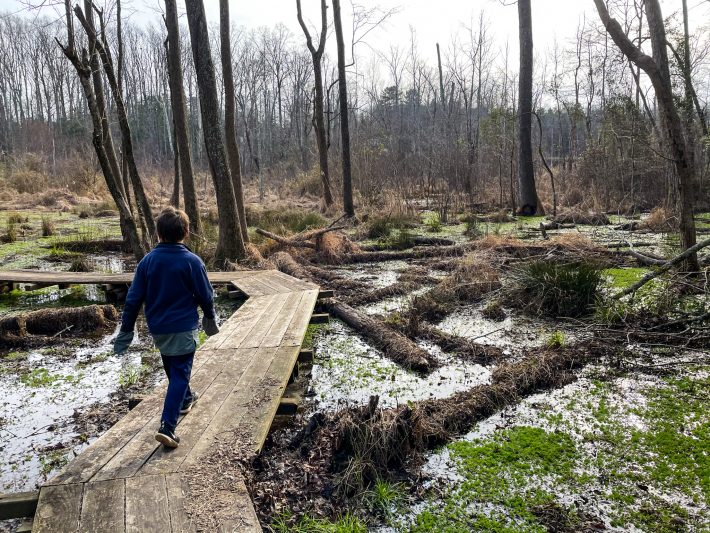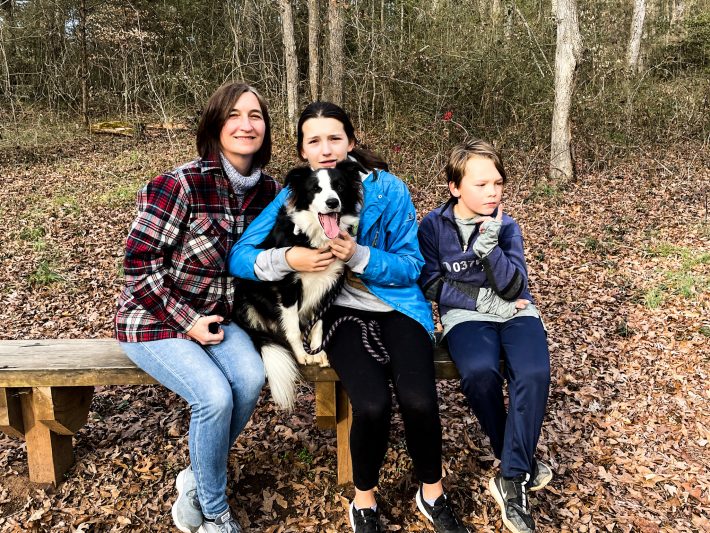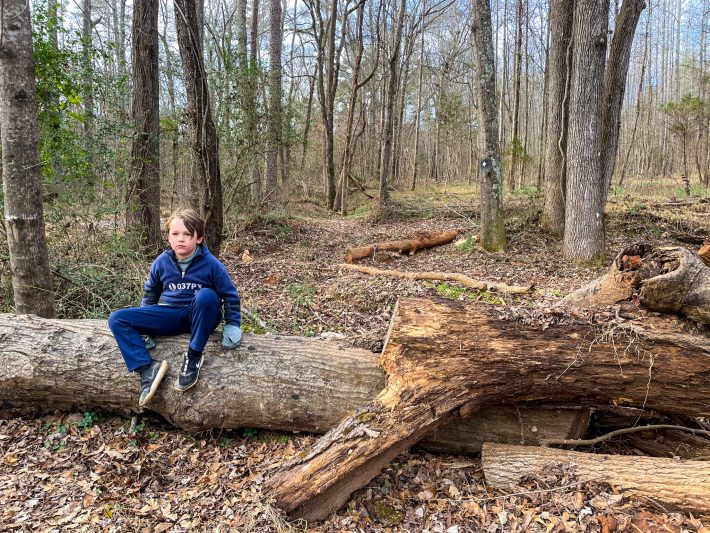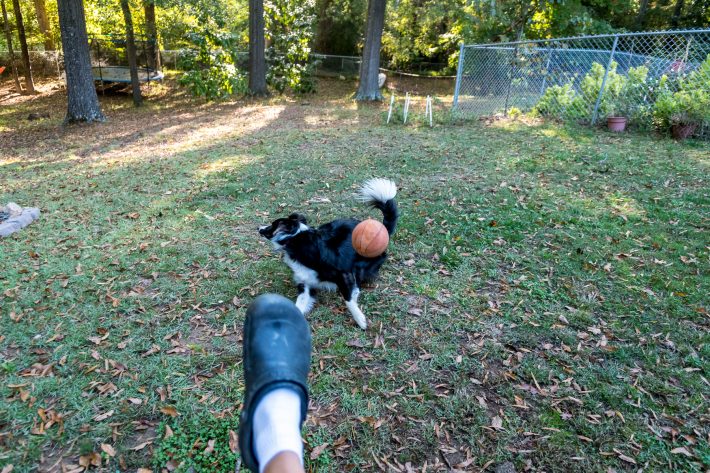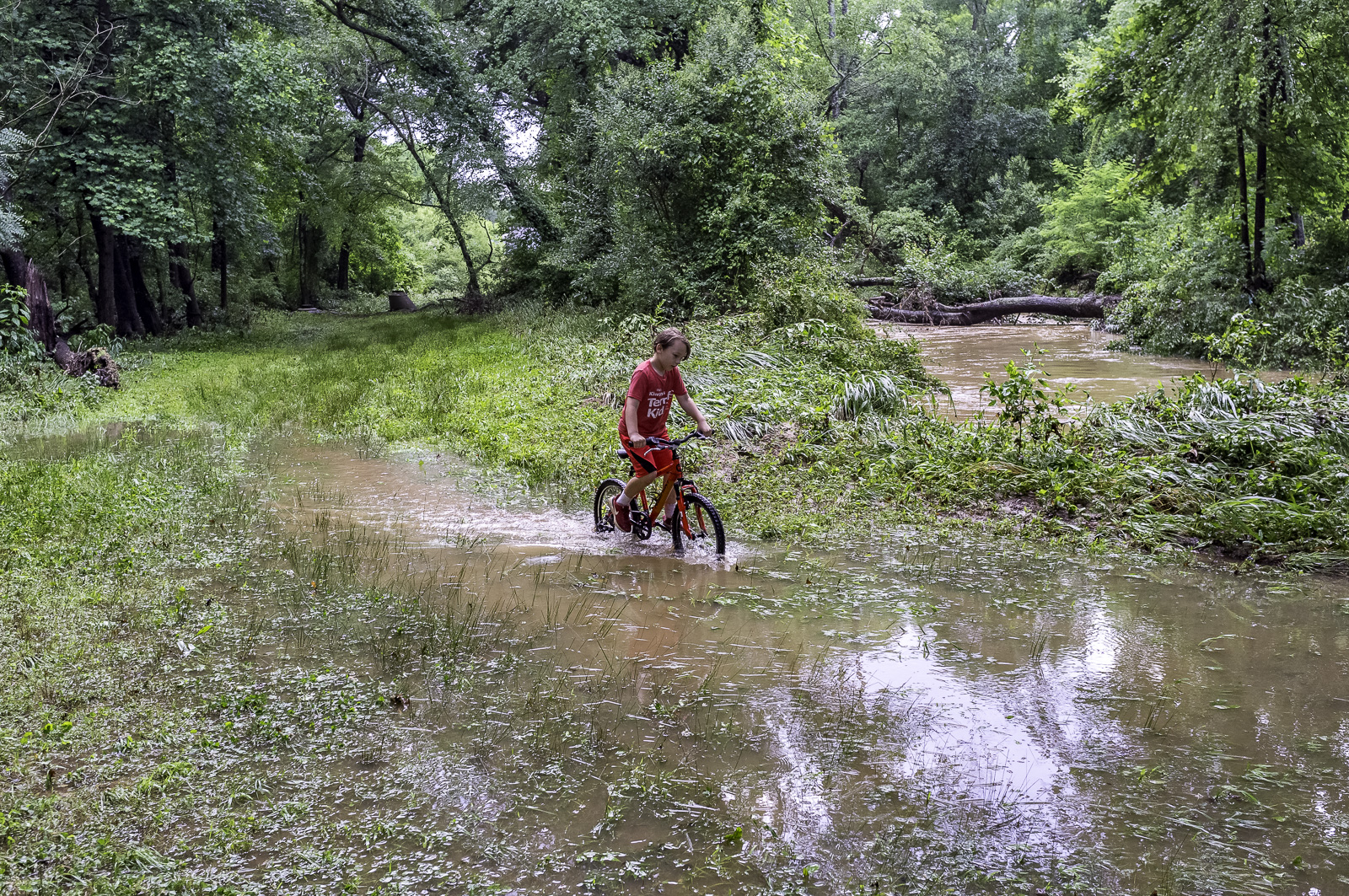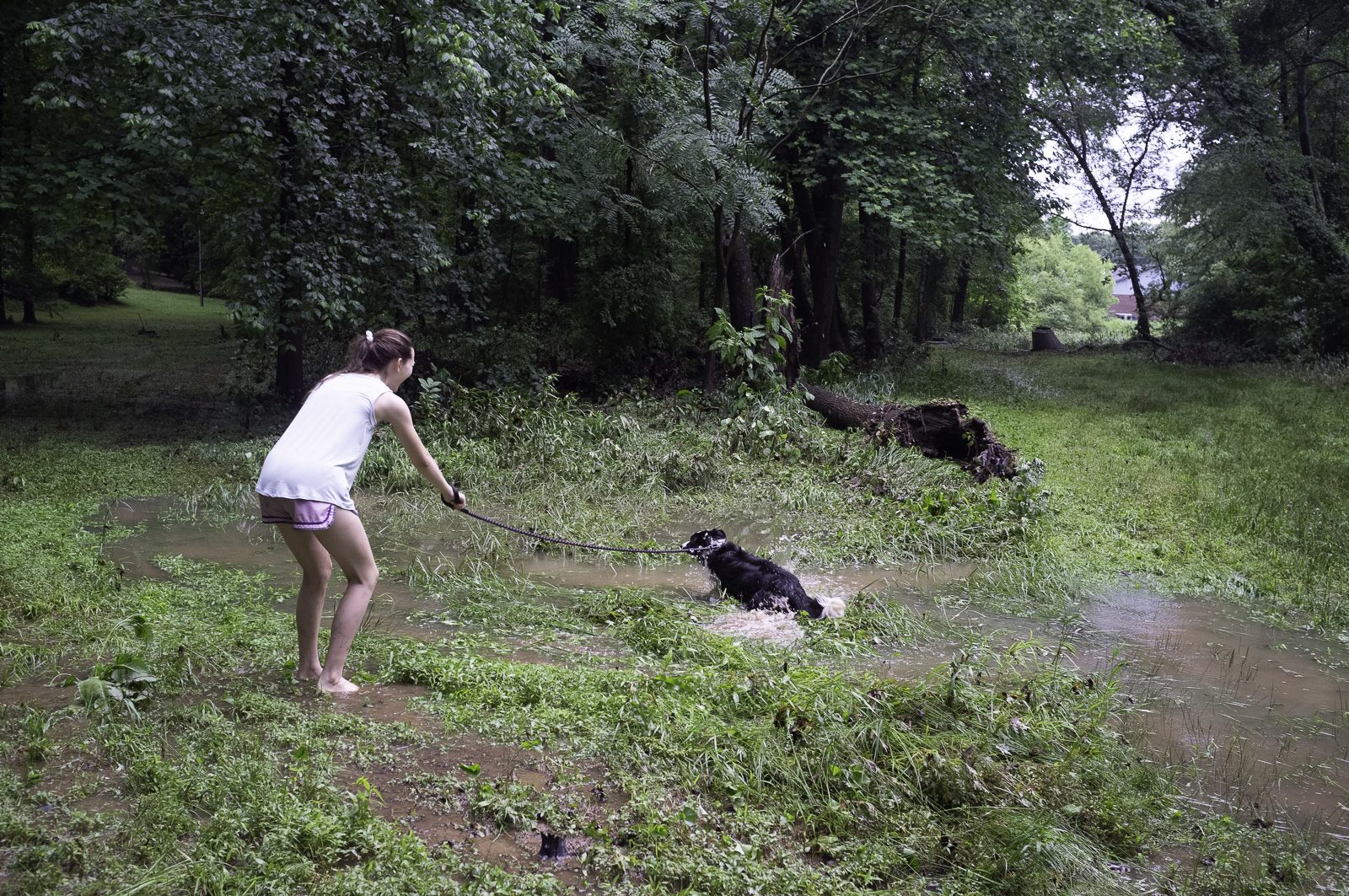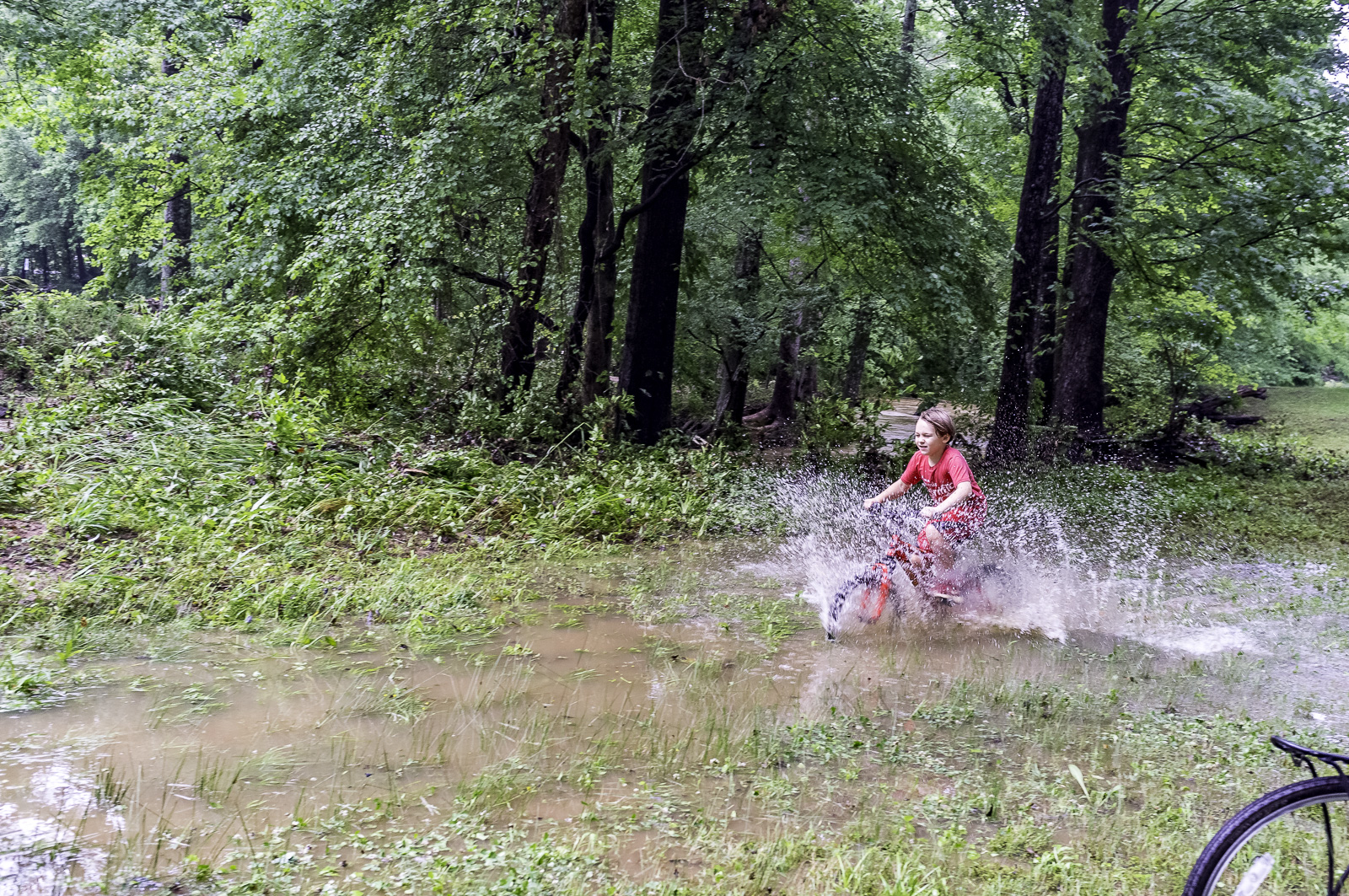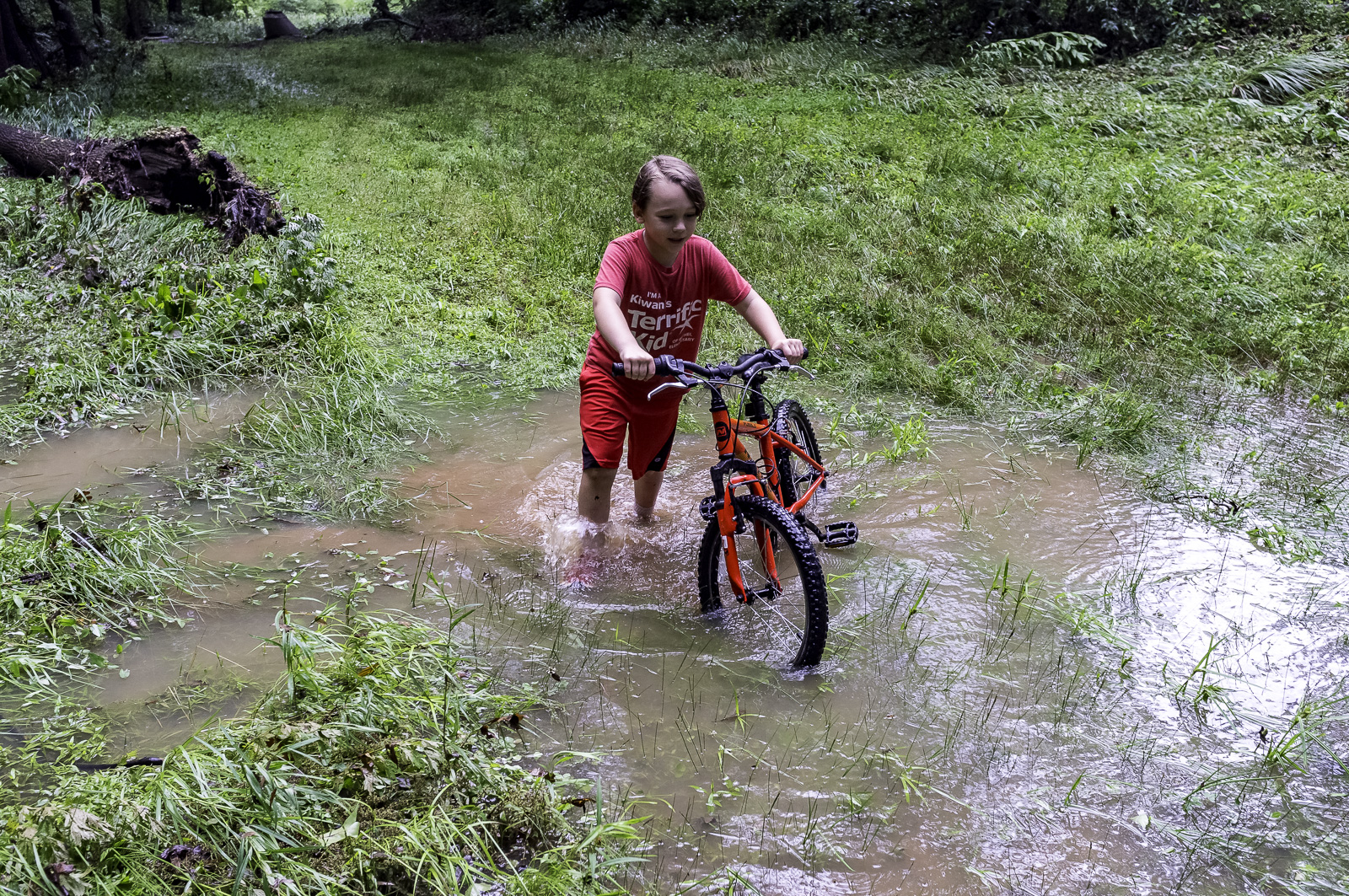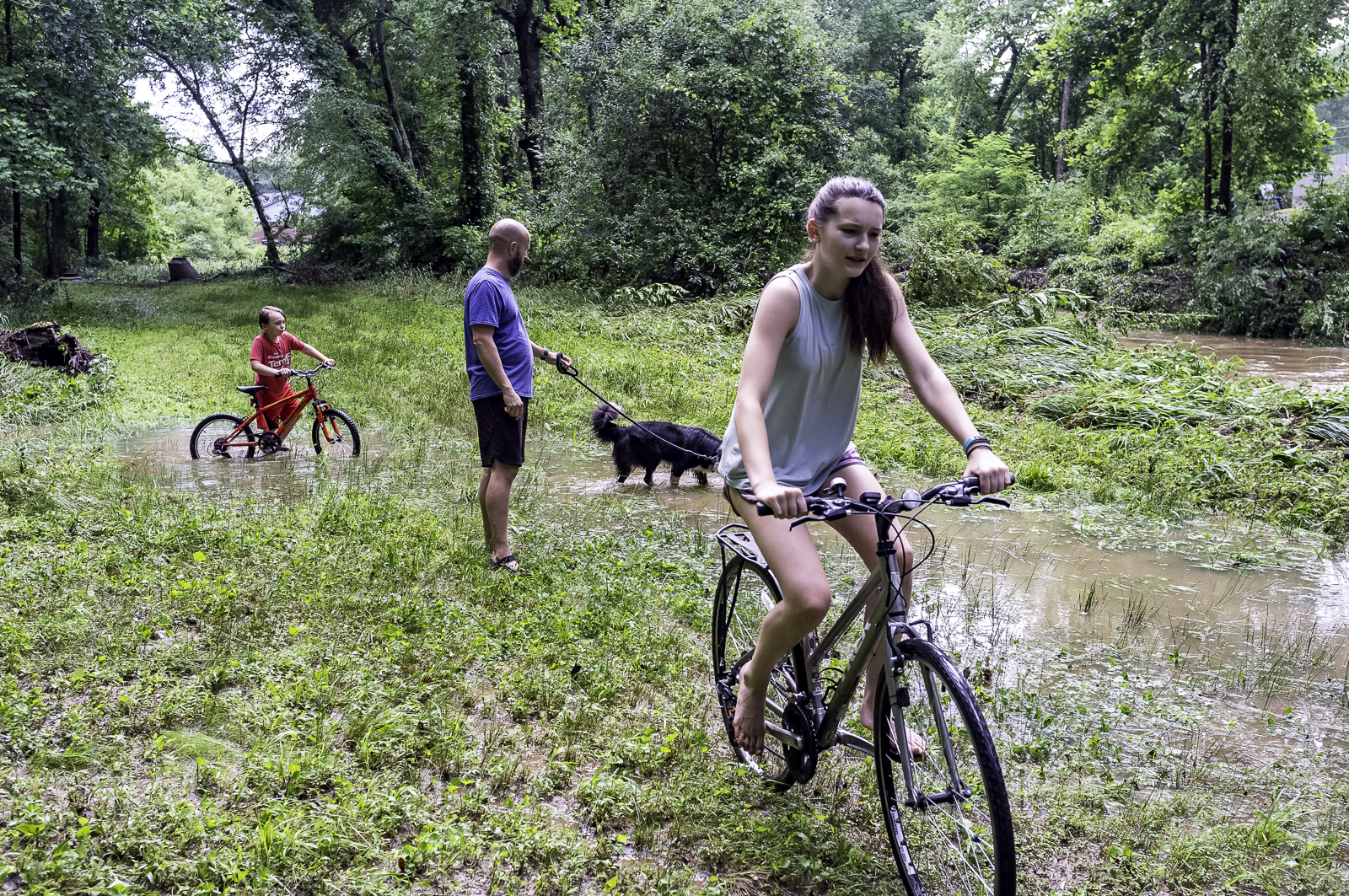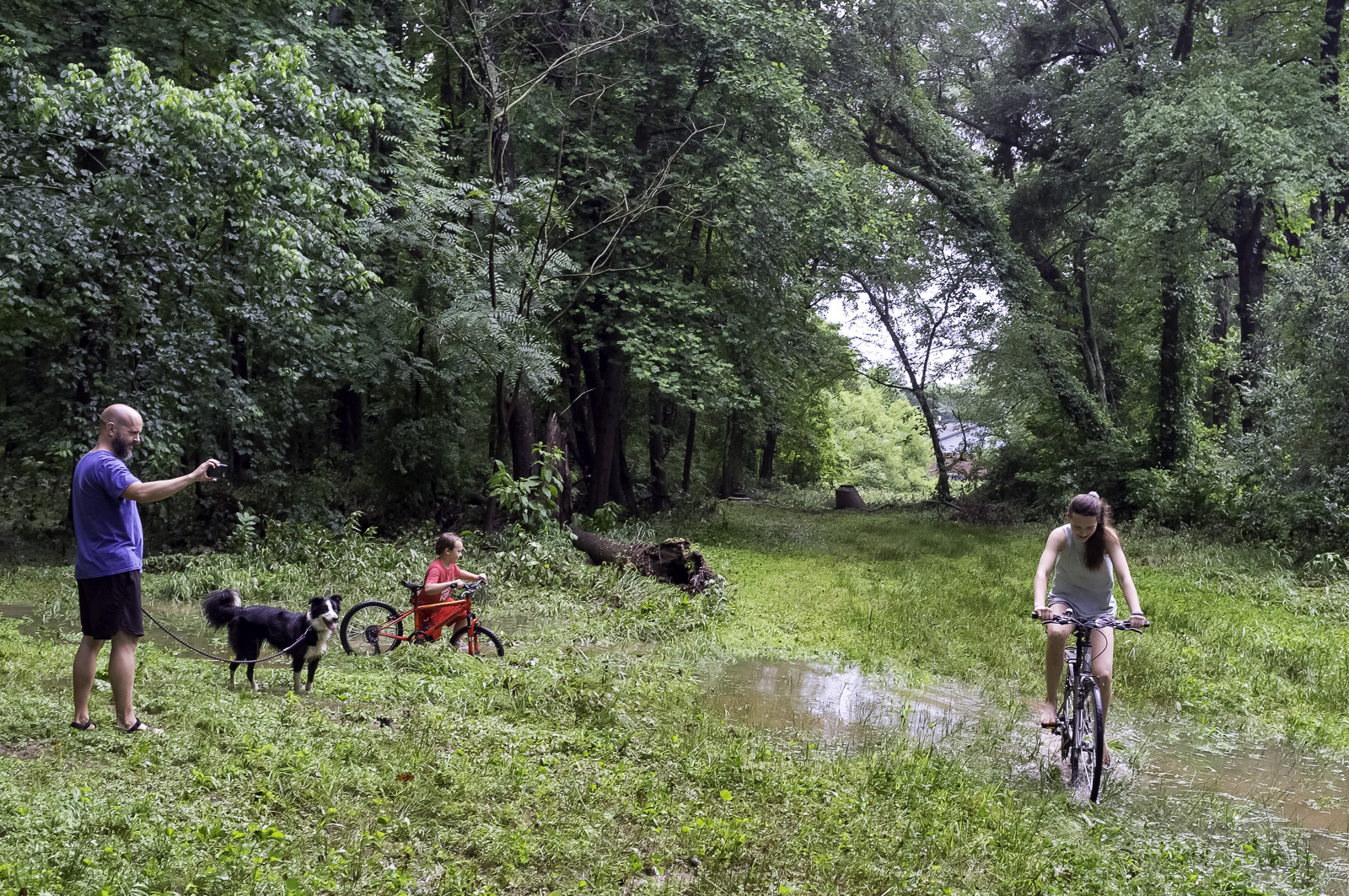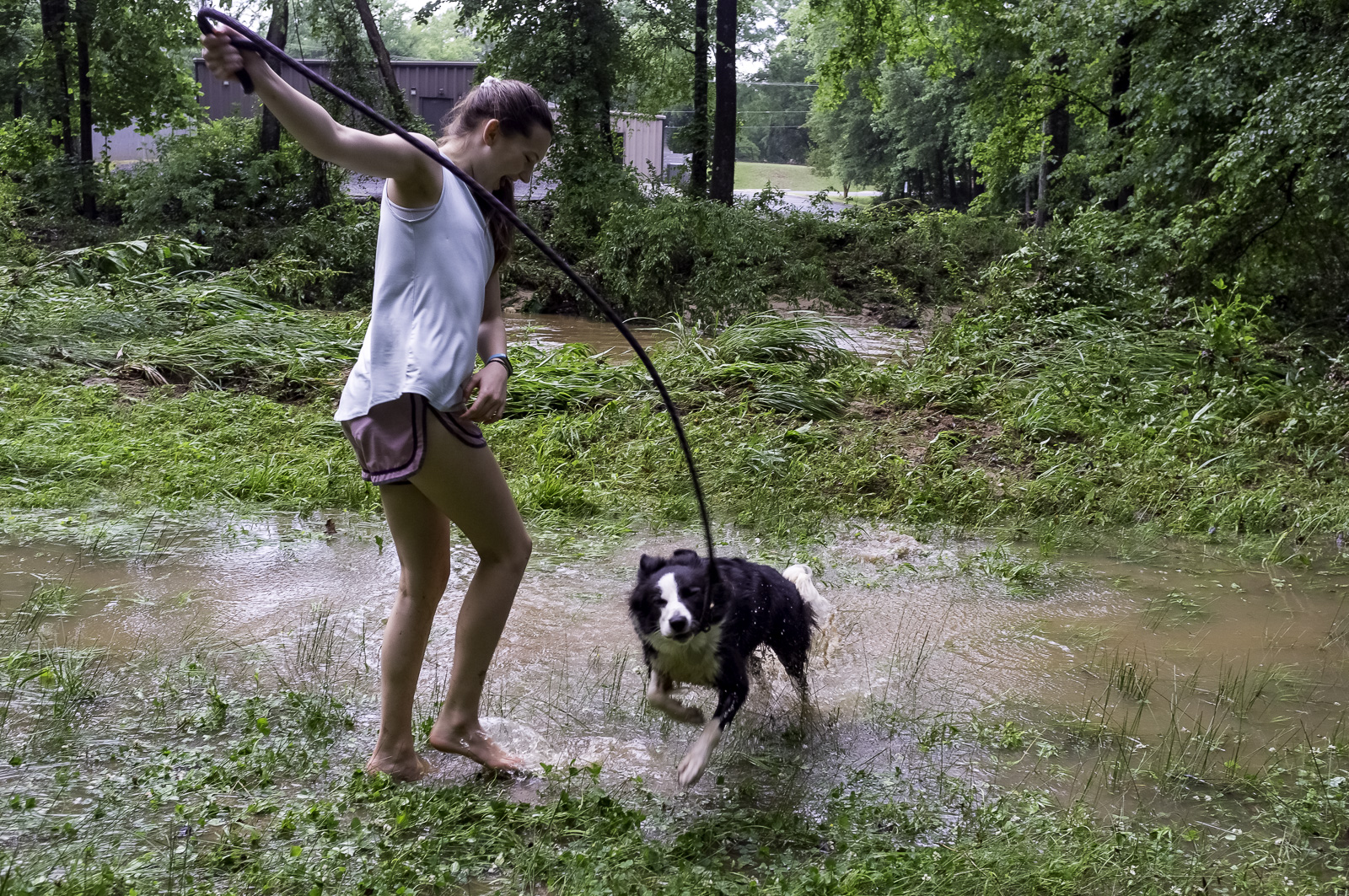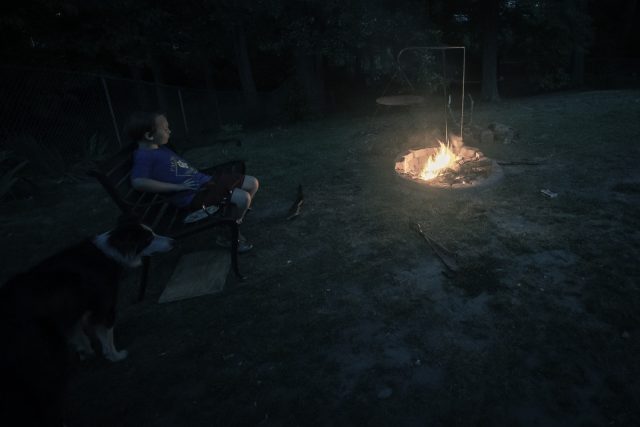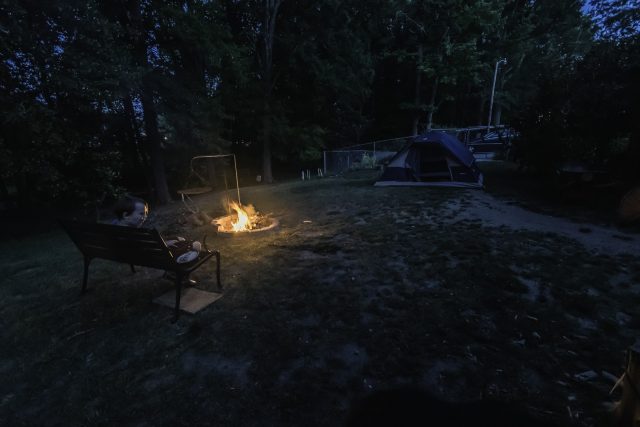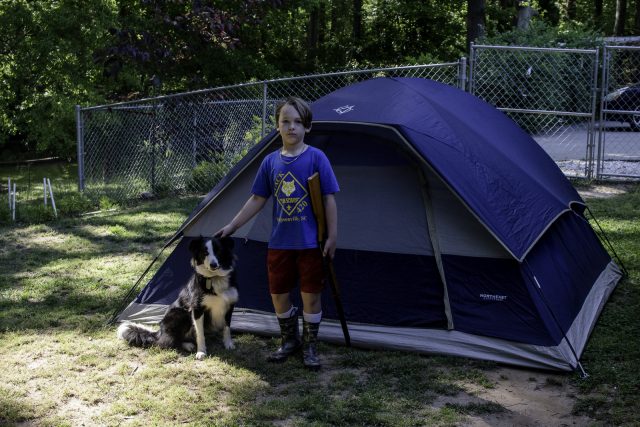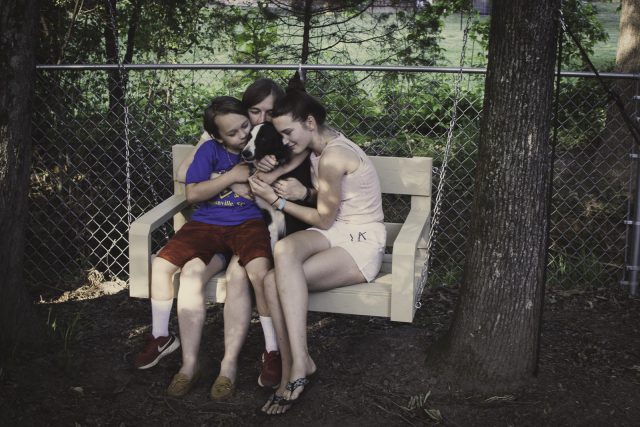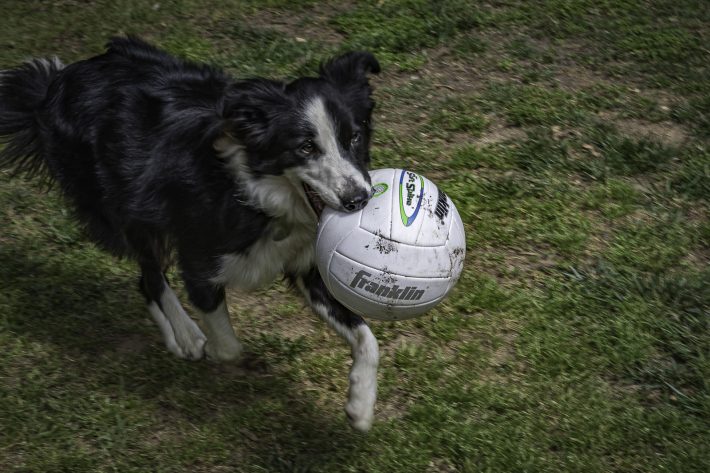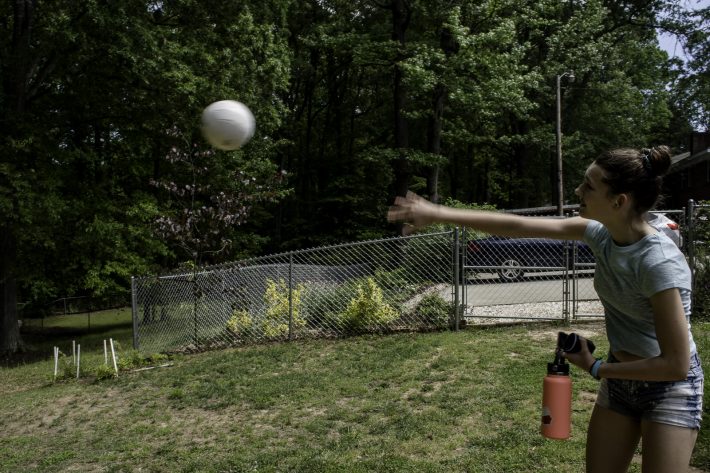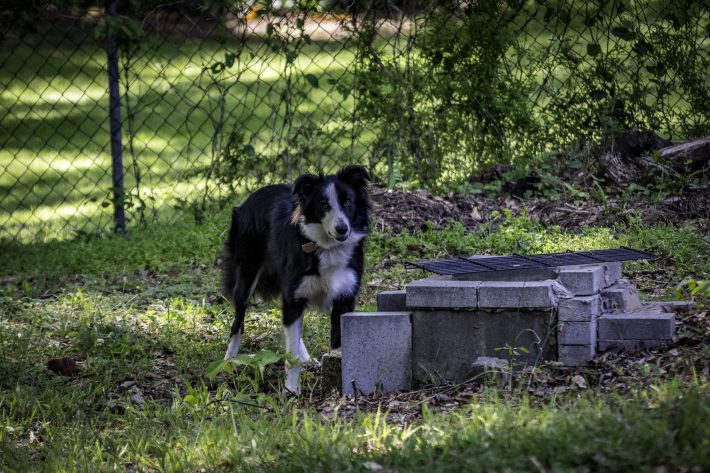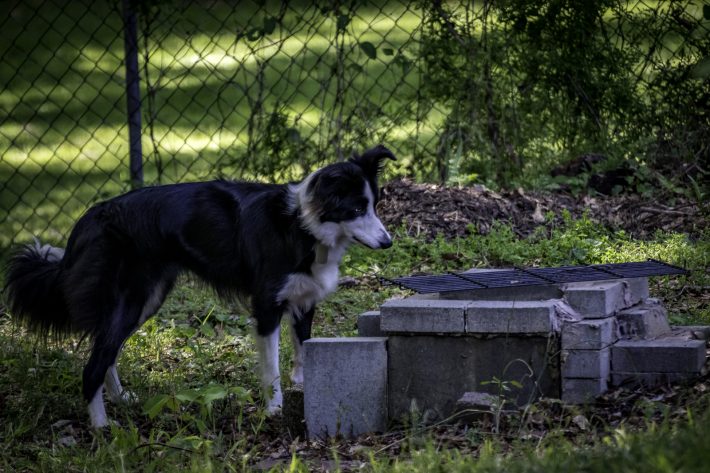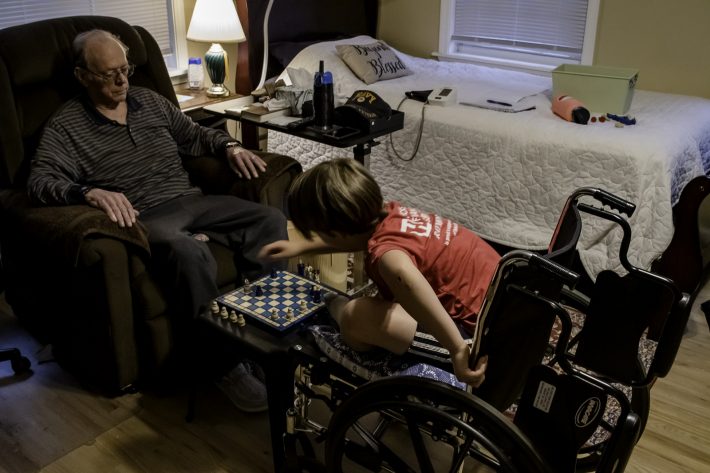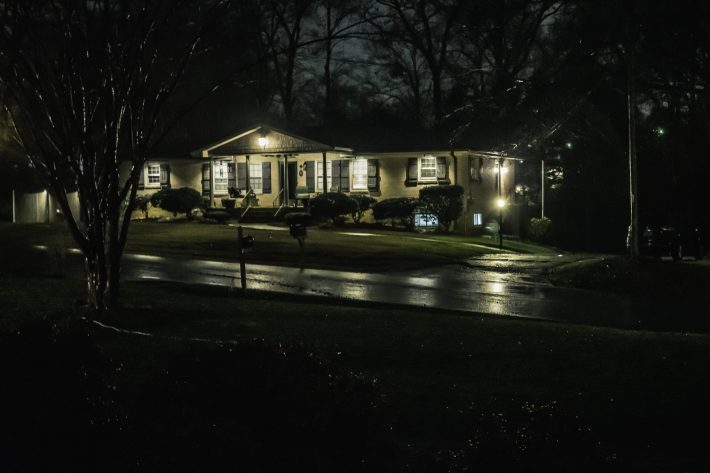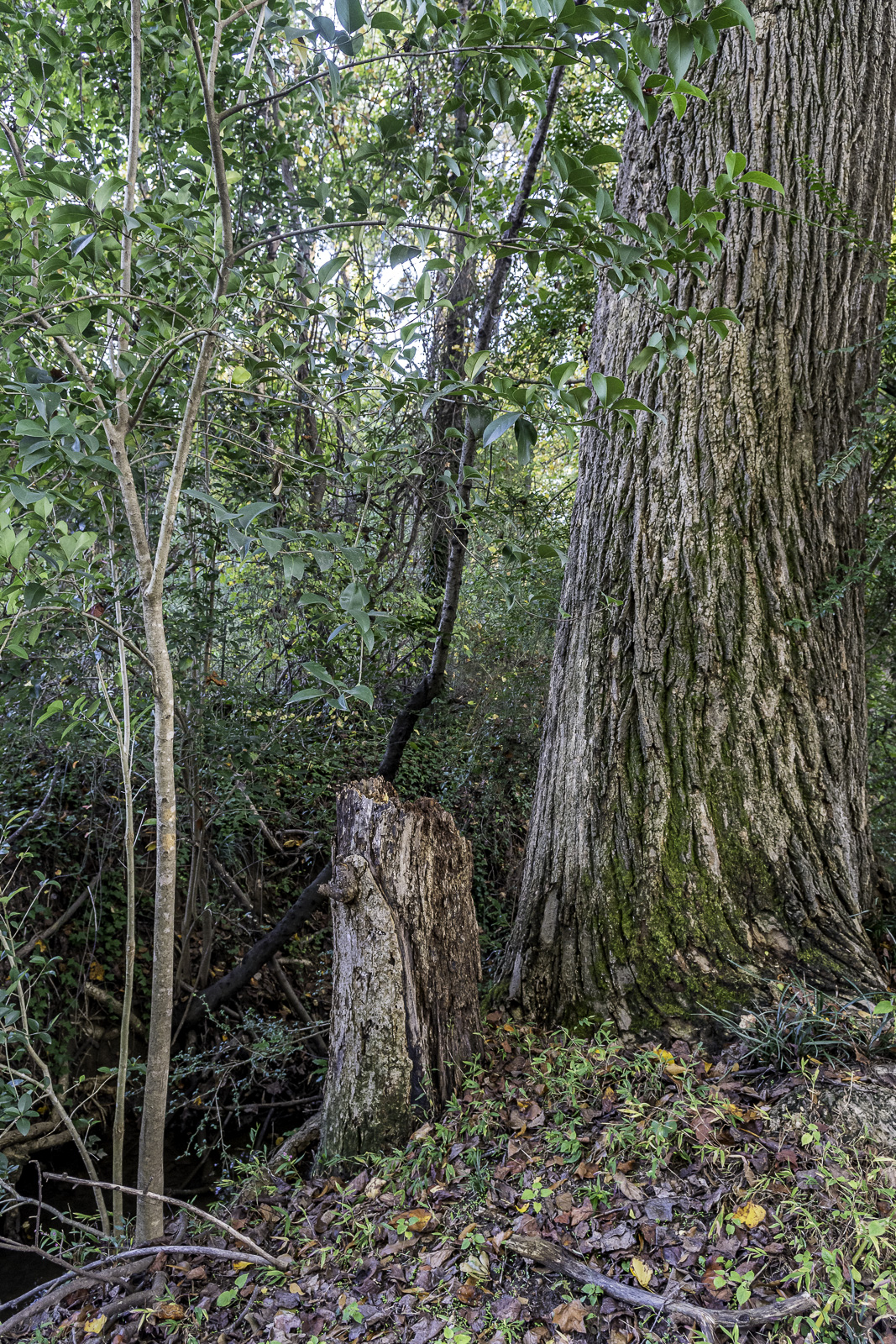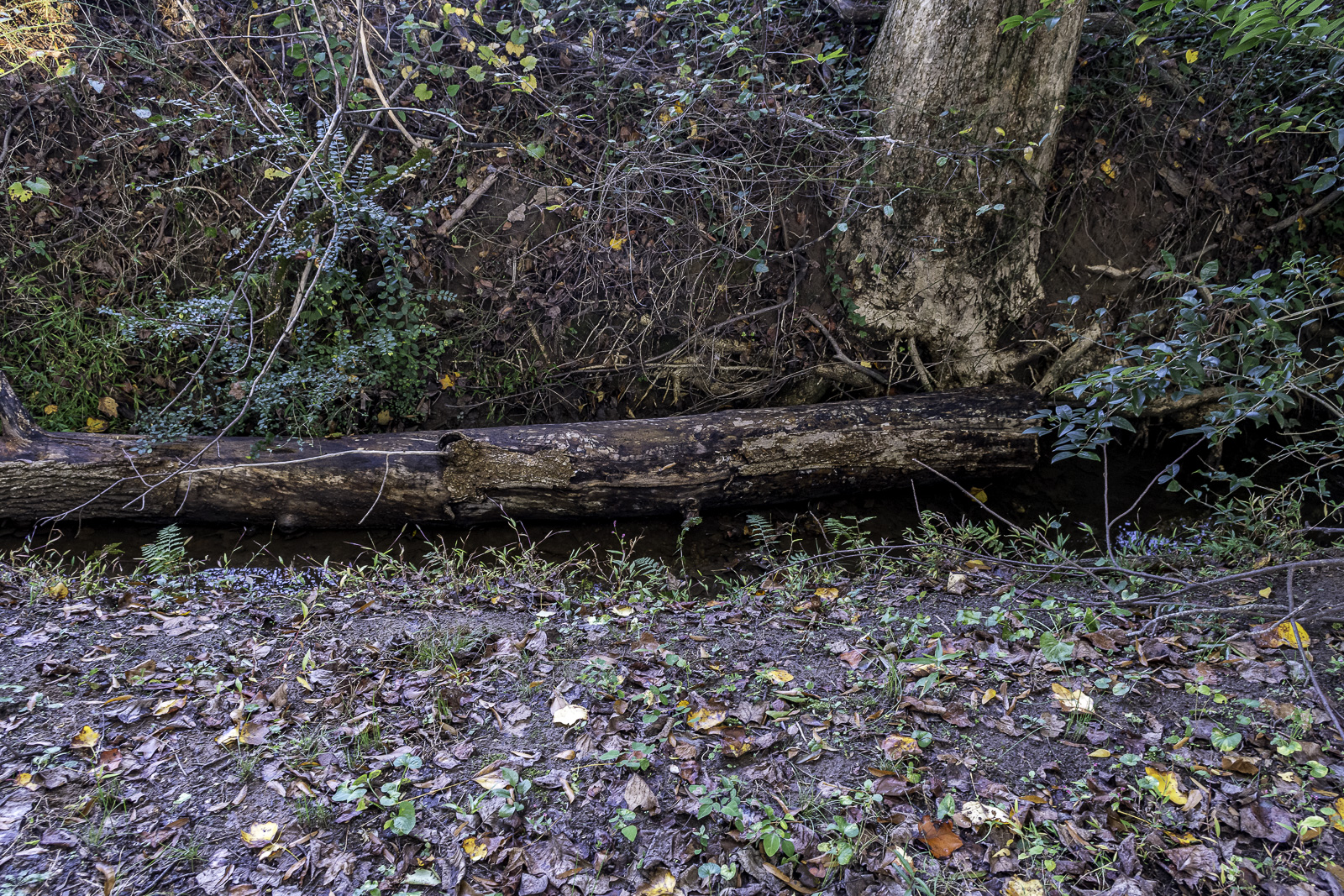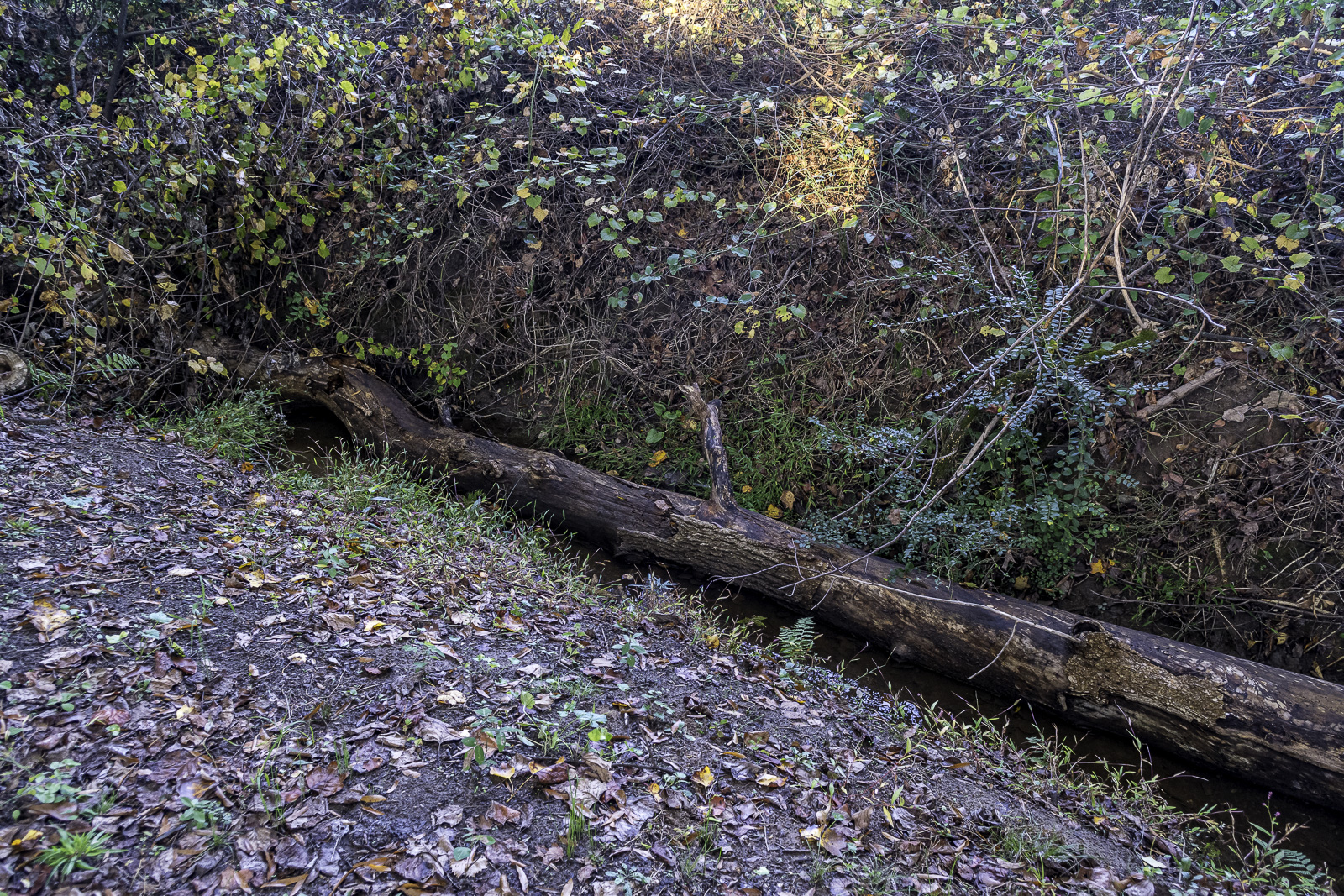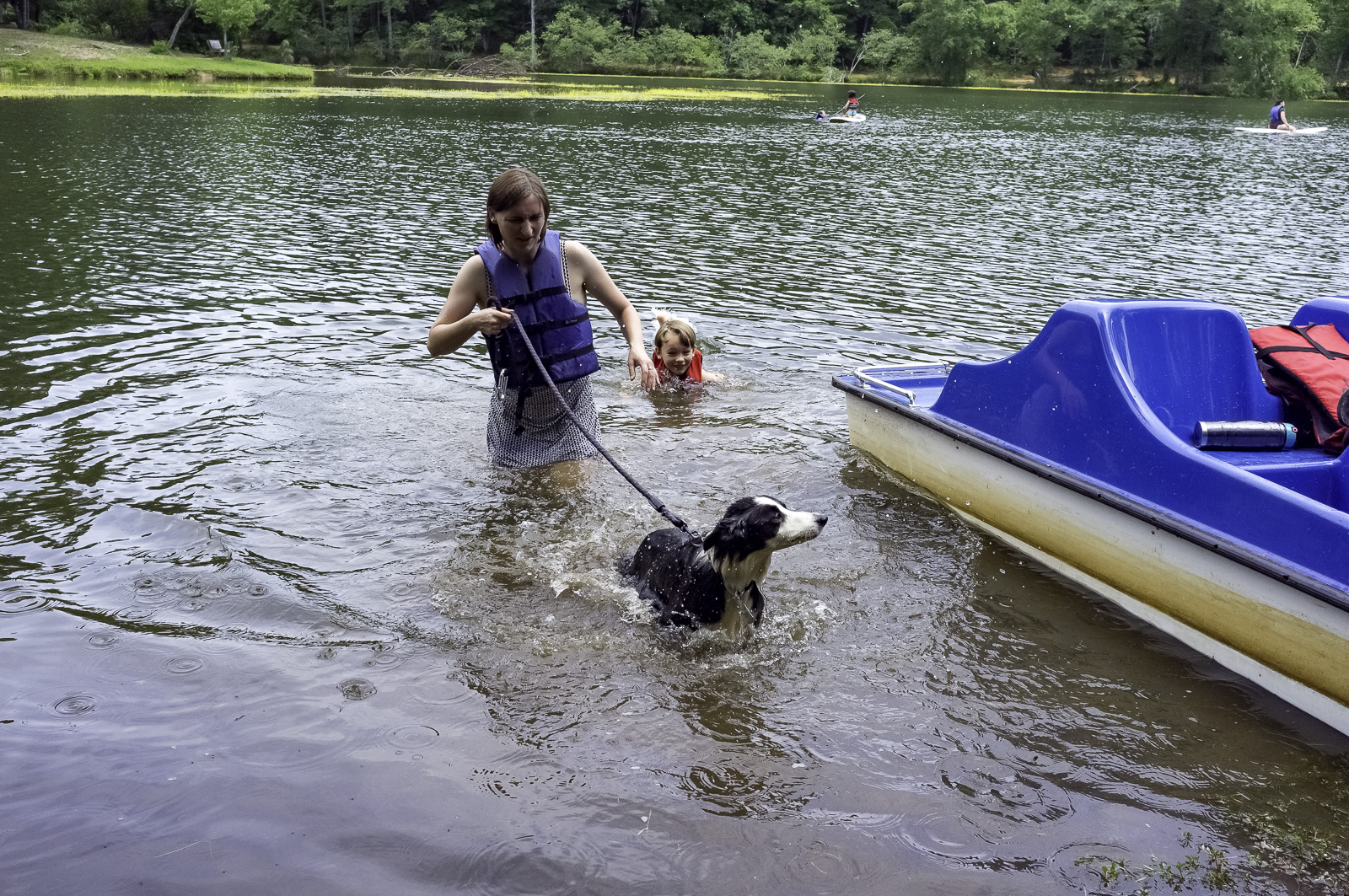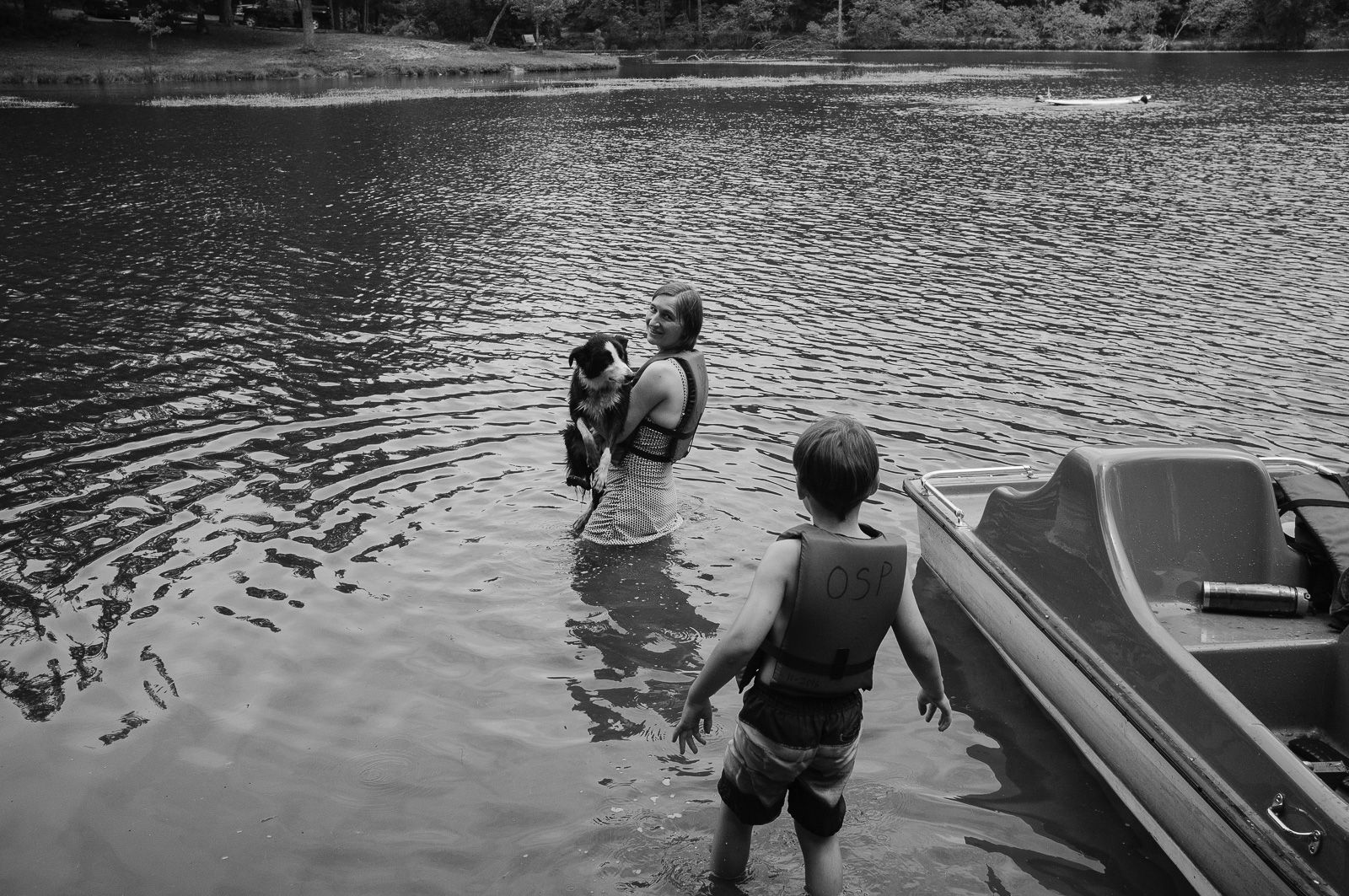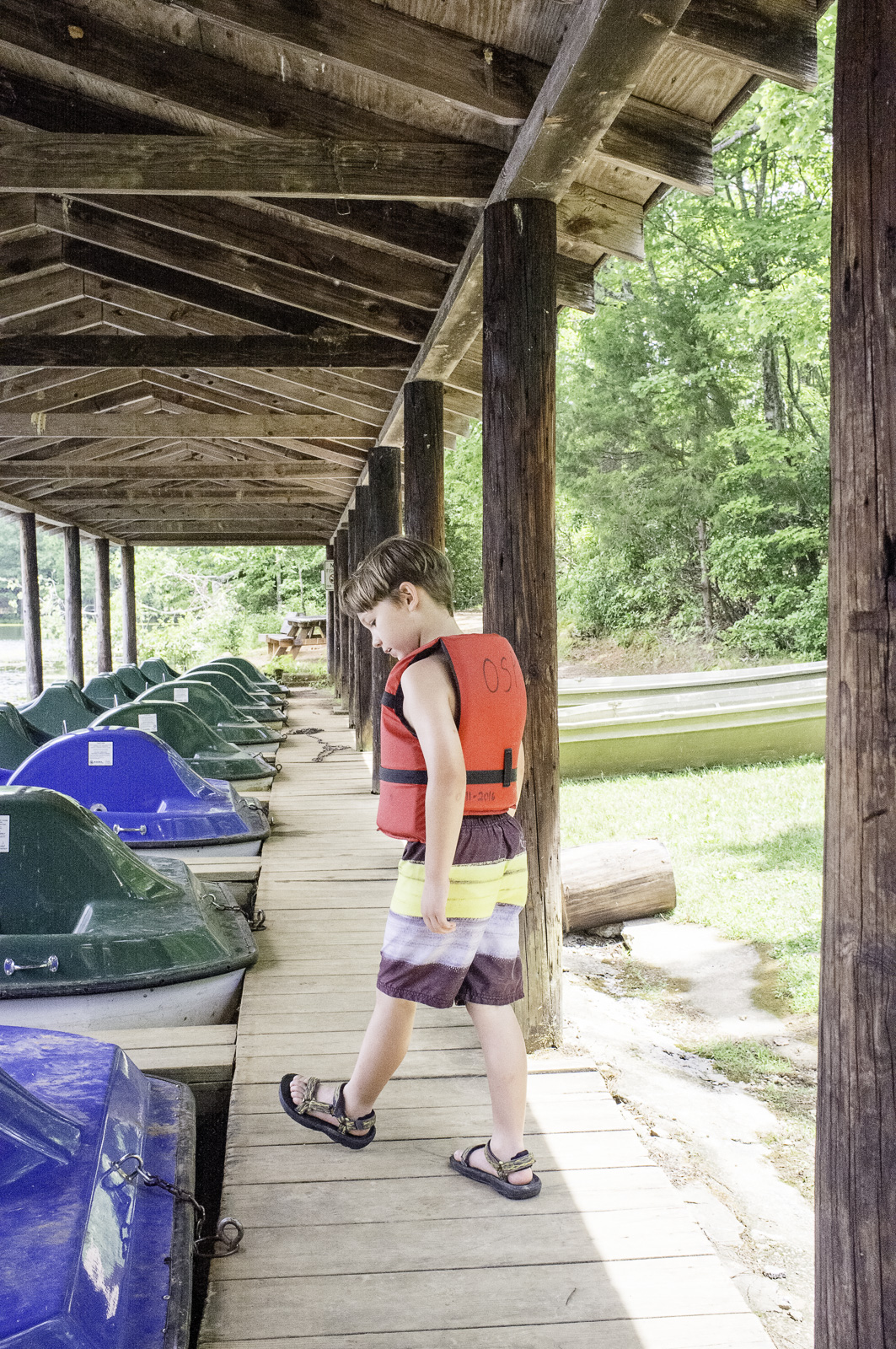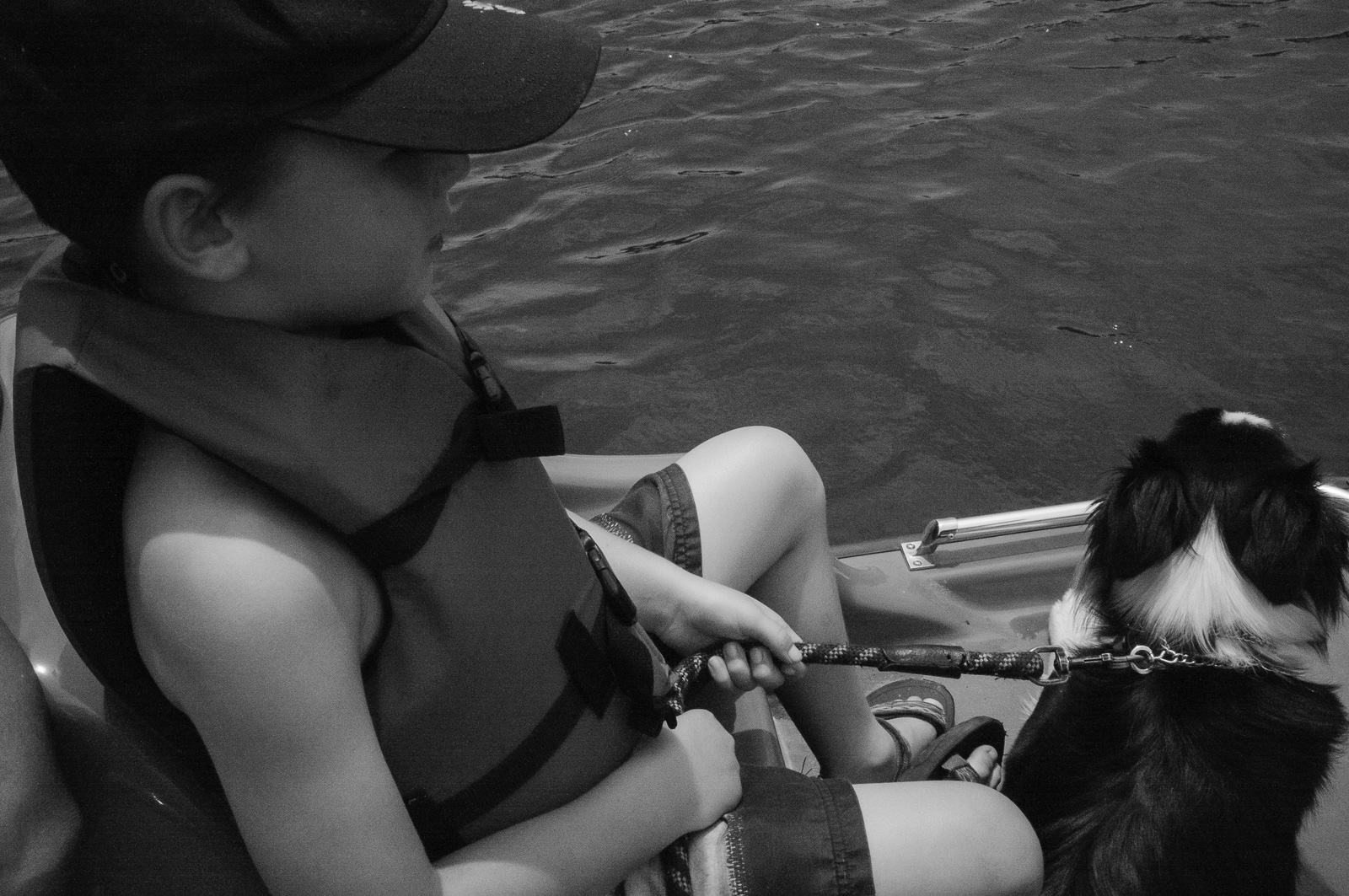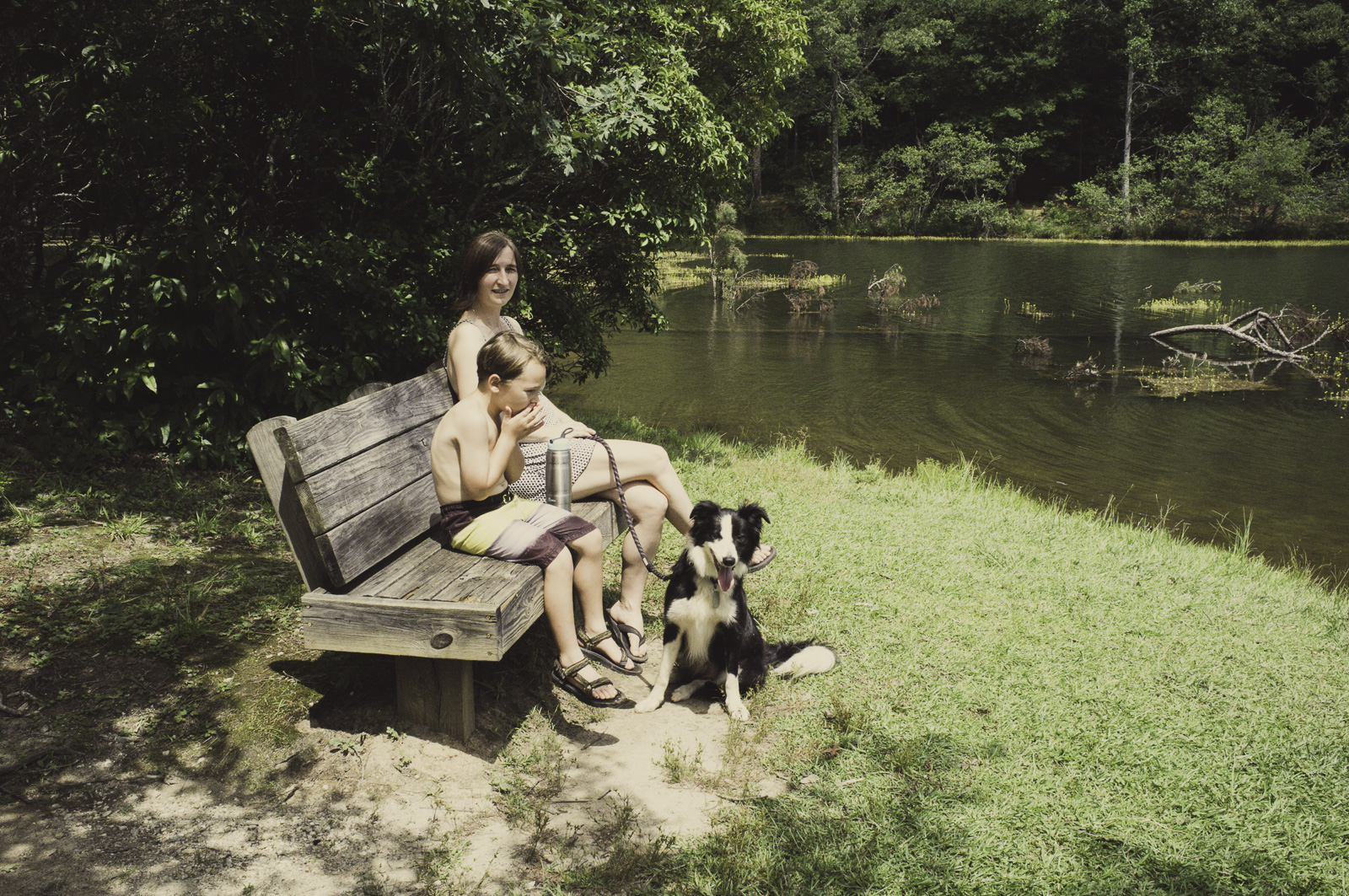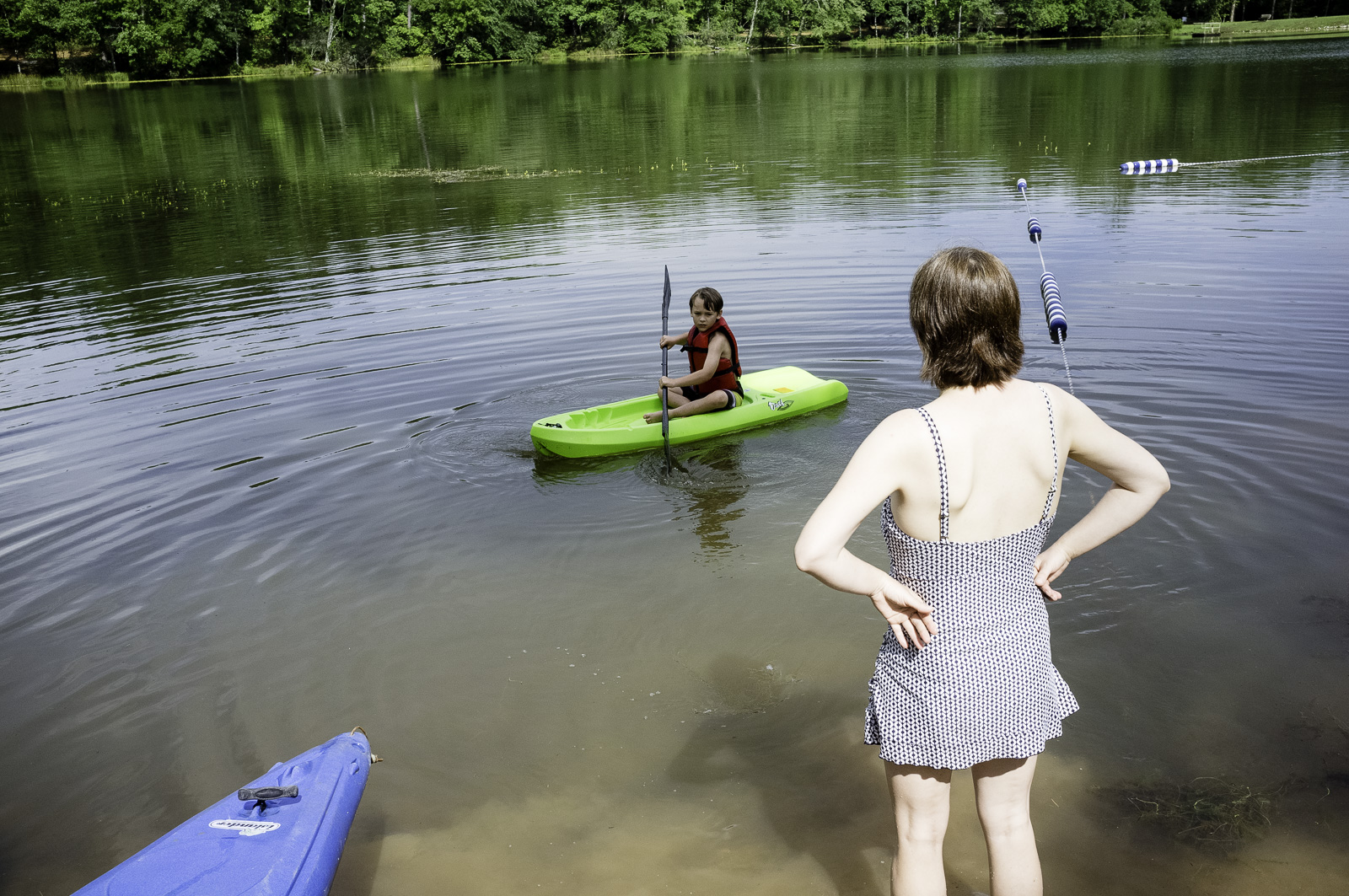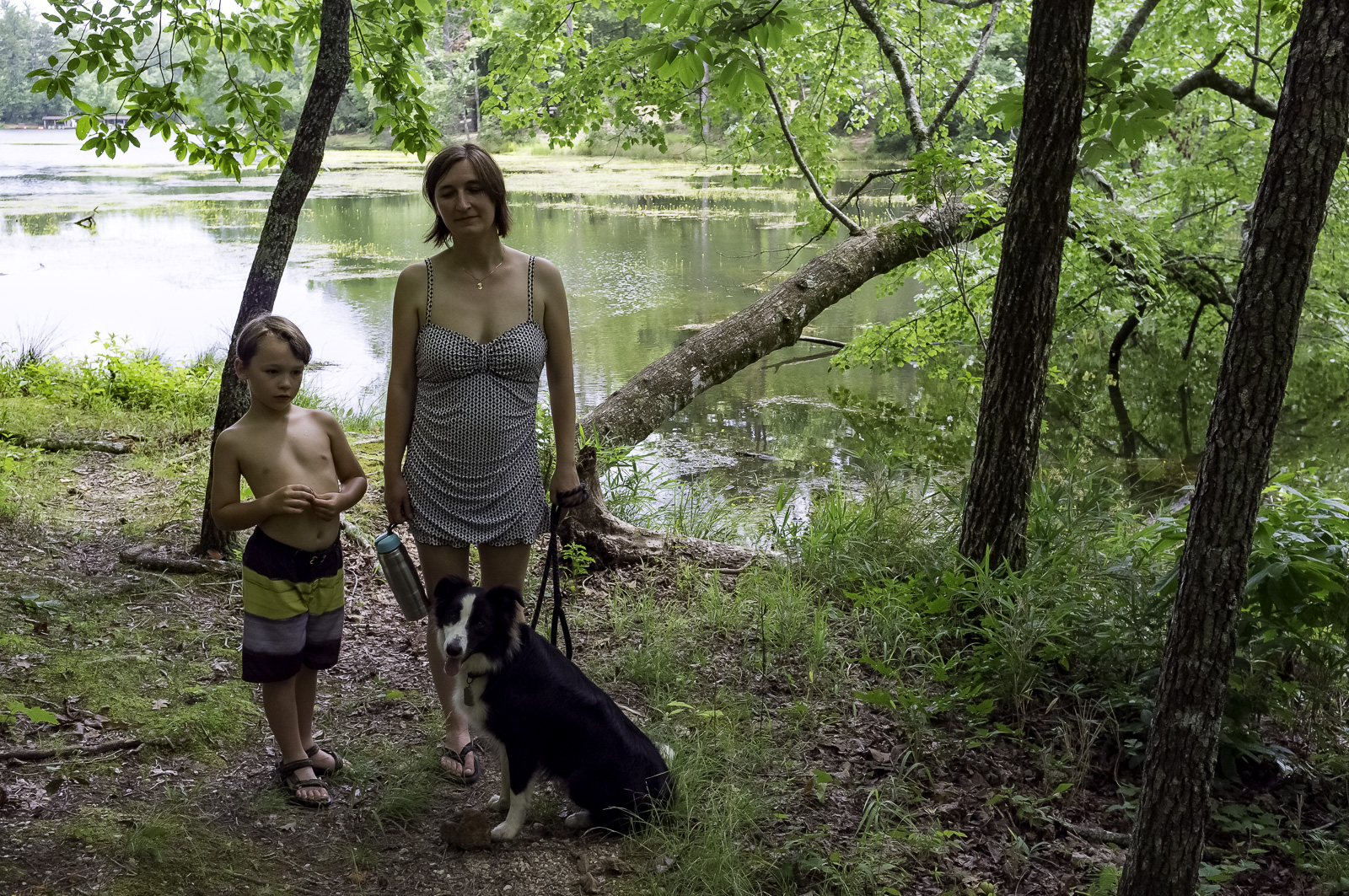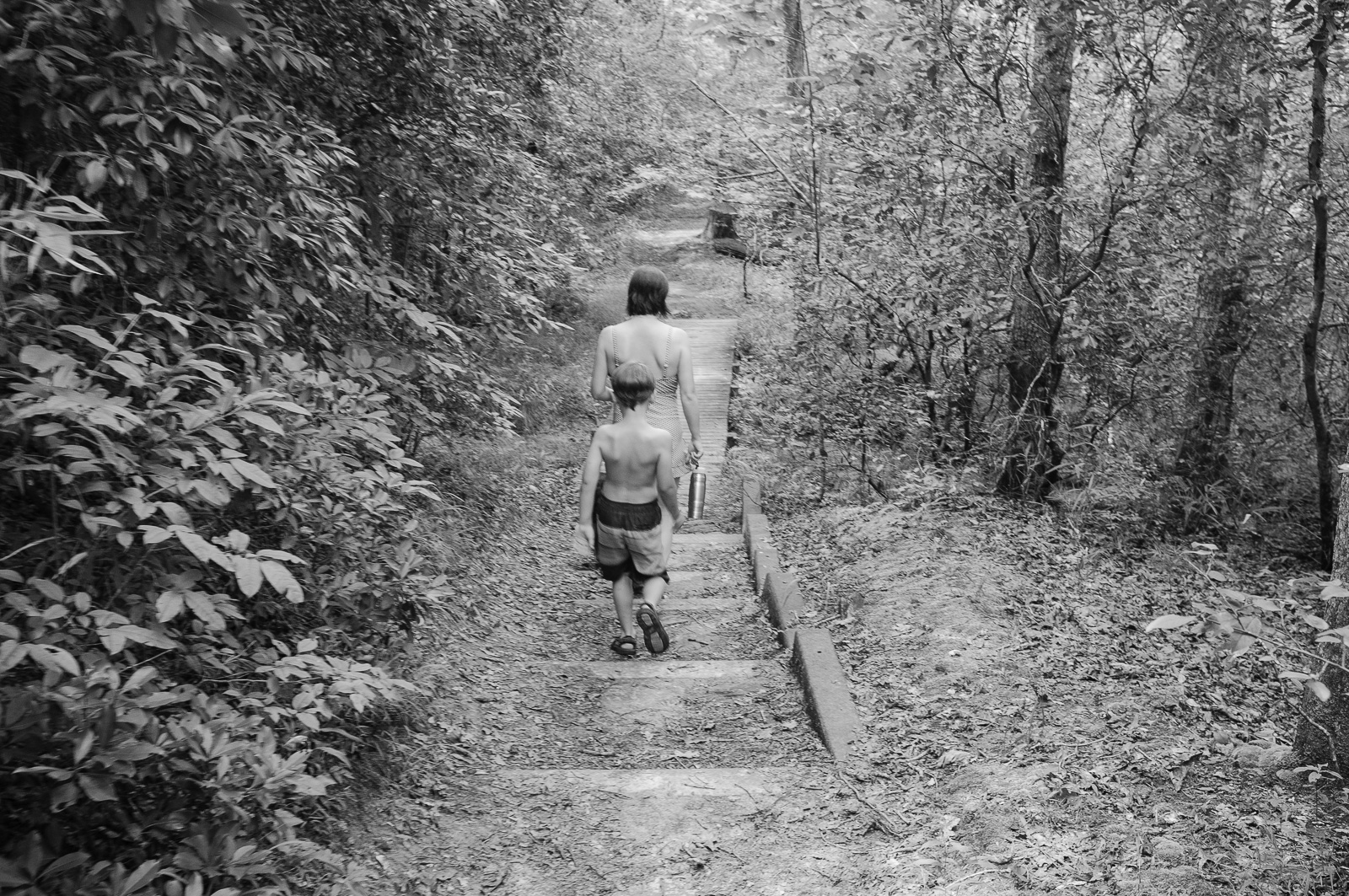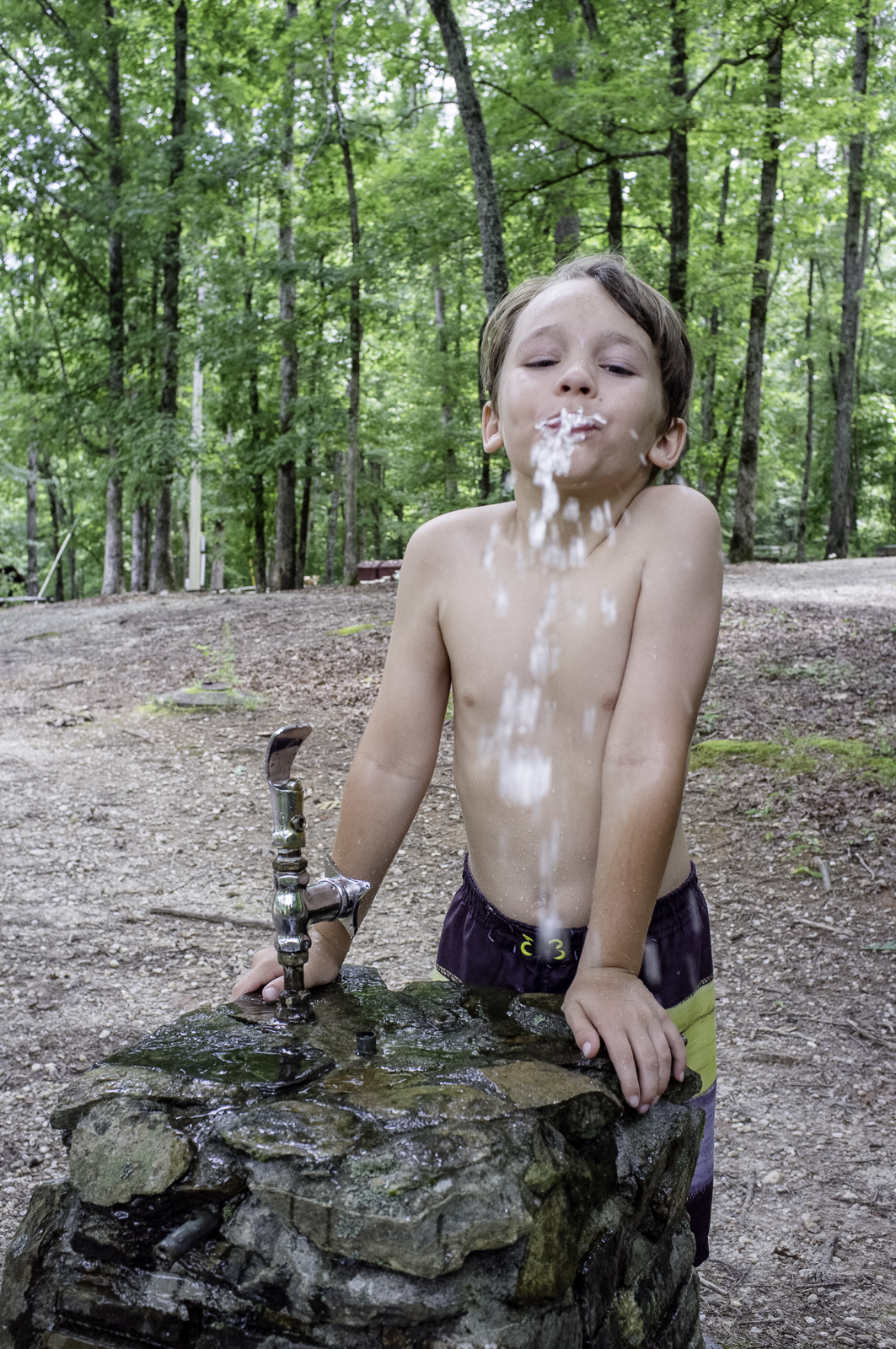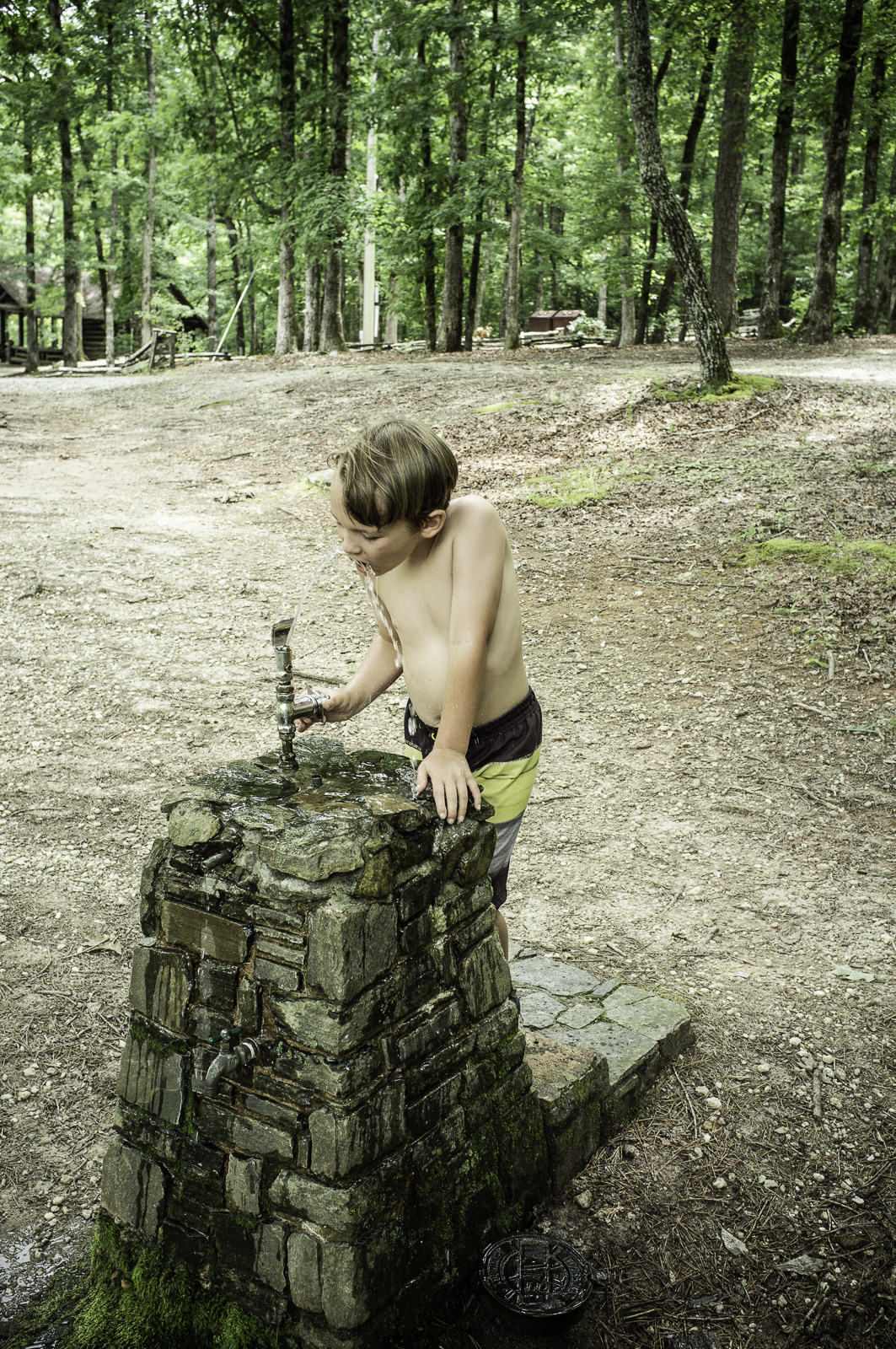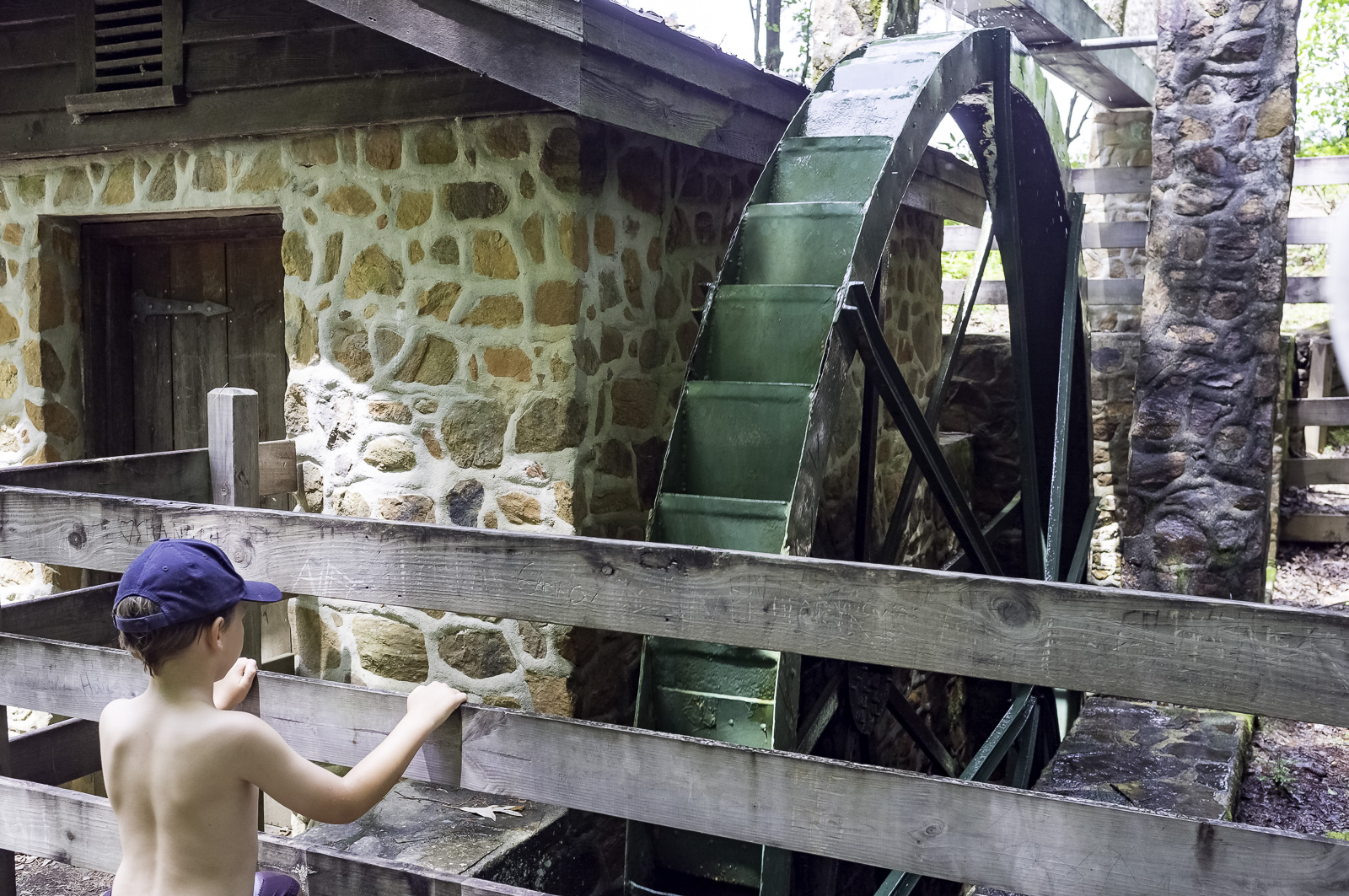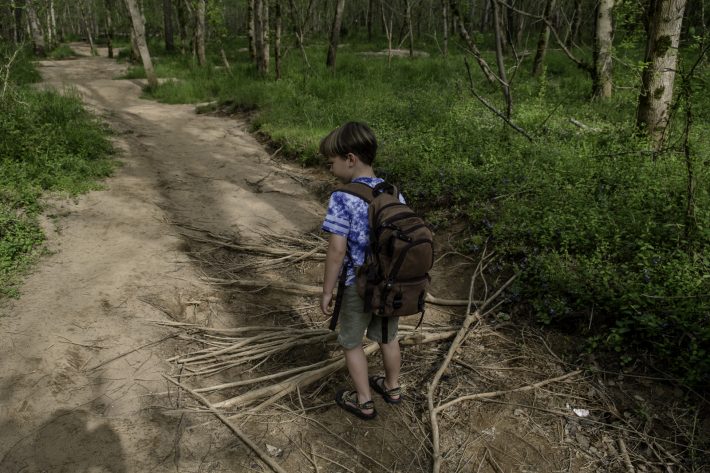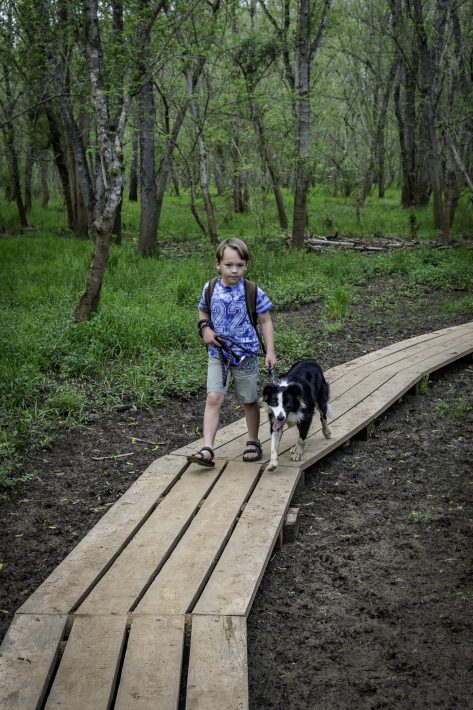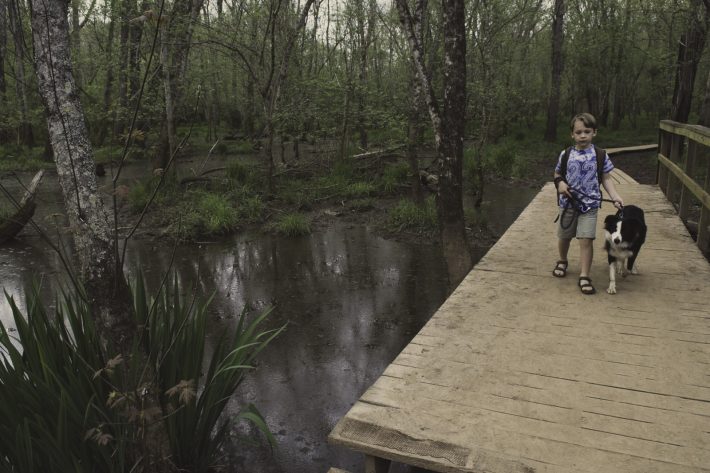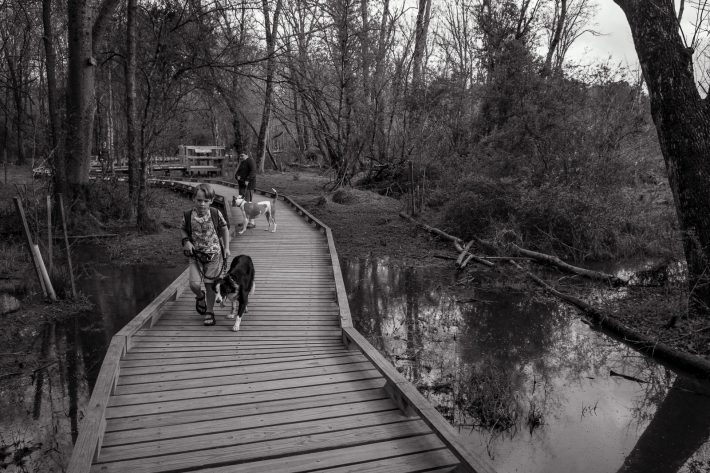Clover
Saturday Morning
Neighbors’ Signs and Our Swings

We went for our typical walk this evening — a route that wanders primarily through the neighborhood on the other side of the main-ish street off of which several neighborhoods spiral. As we walked by a house, a man came up to us saying that he’d been meaning to meet us several times he’s seen us go by. It seems he’s quite the border collie fan and has noticed our cute pup as we walk by. We got to talking and talk turned to corona. He pointed to a sign in his yard — not quite like the sign at right but the same general idea — and said, “I guess it’s obvious where I stand.”

I glanced over at the sign in his neighbor’s yard. I found myself wondering how they get along. I know for a fact that my views are more liberal than our neighbors’ views, but I tend not to talk about politics with them. When the topic does come up, I might make a non-committal comment every now and then, but by and large, I keep my views to myself.
It’s not that I think they’ll be angered that I have different views than they hold. It’s not that I fear damaging the relationship we have (though I wonder if they might not think less of me were they to know what I think of our president). I just don’t see the point in adding politics into a relationship like that.
It reminds me of Frost’s line, “Good fences make good neighbors,” and while I don’t necessarily agree with the sentiment, I would say good fences make great backyards. As do swings, hammocks, trampolines, dogs, and tennis balls.
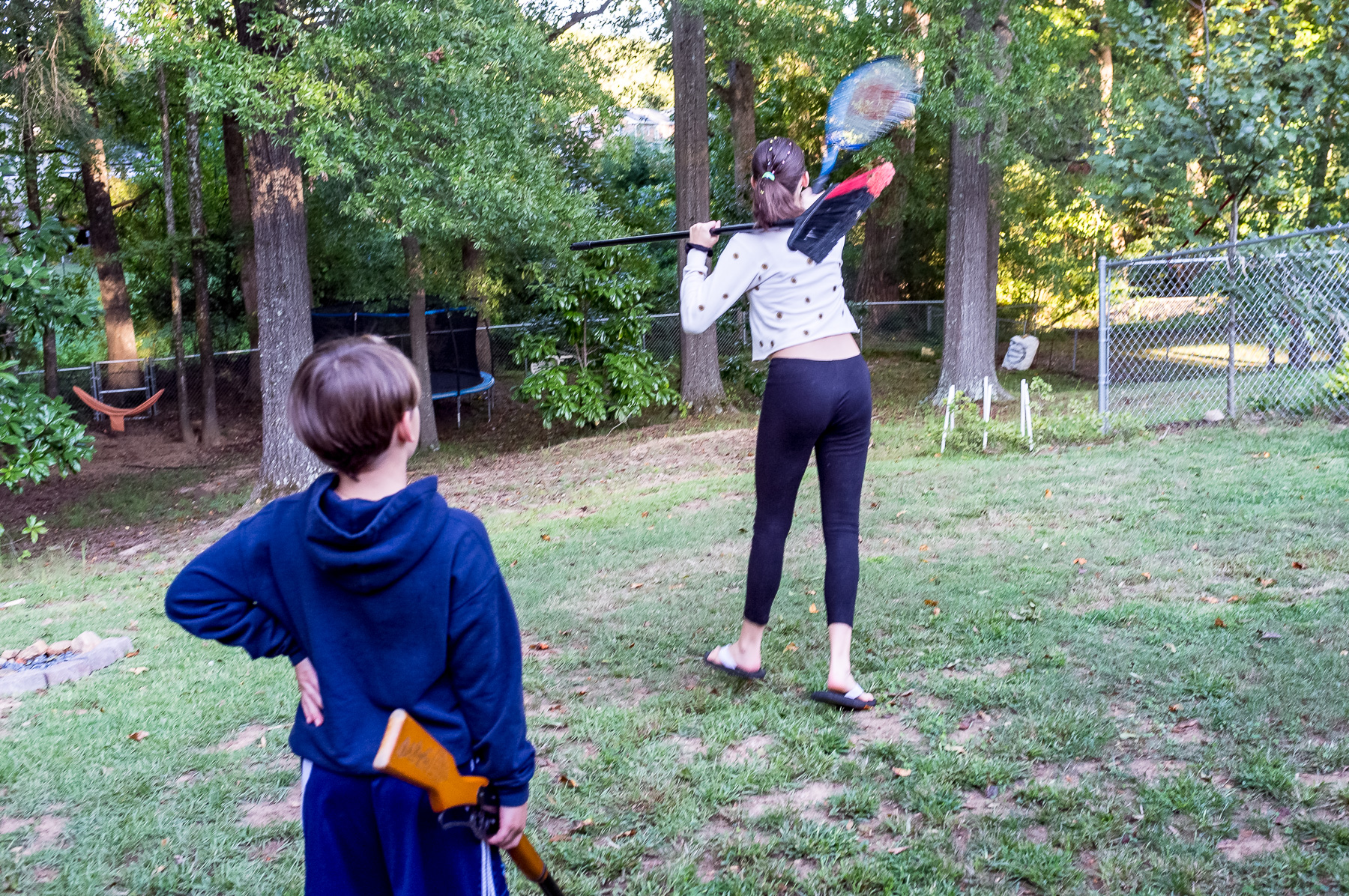
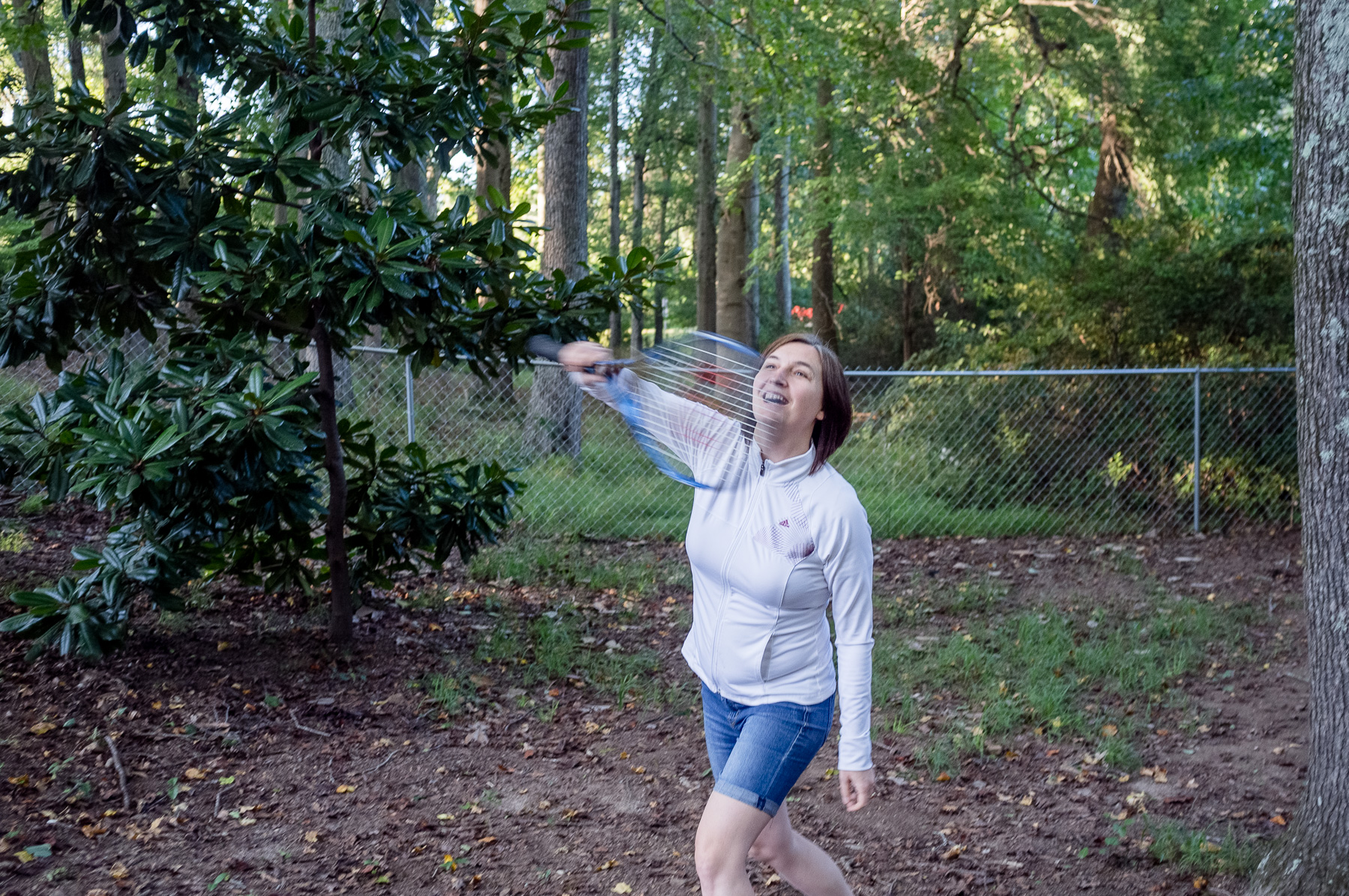
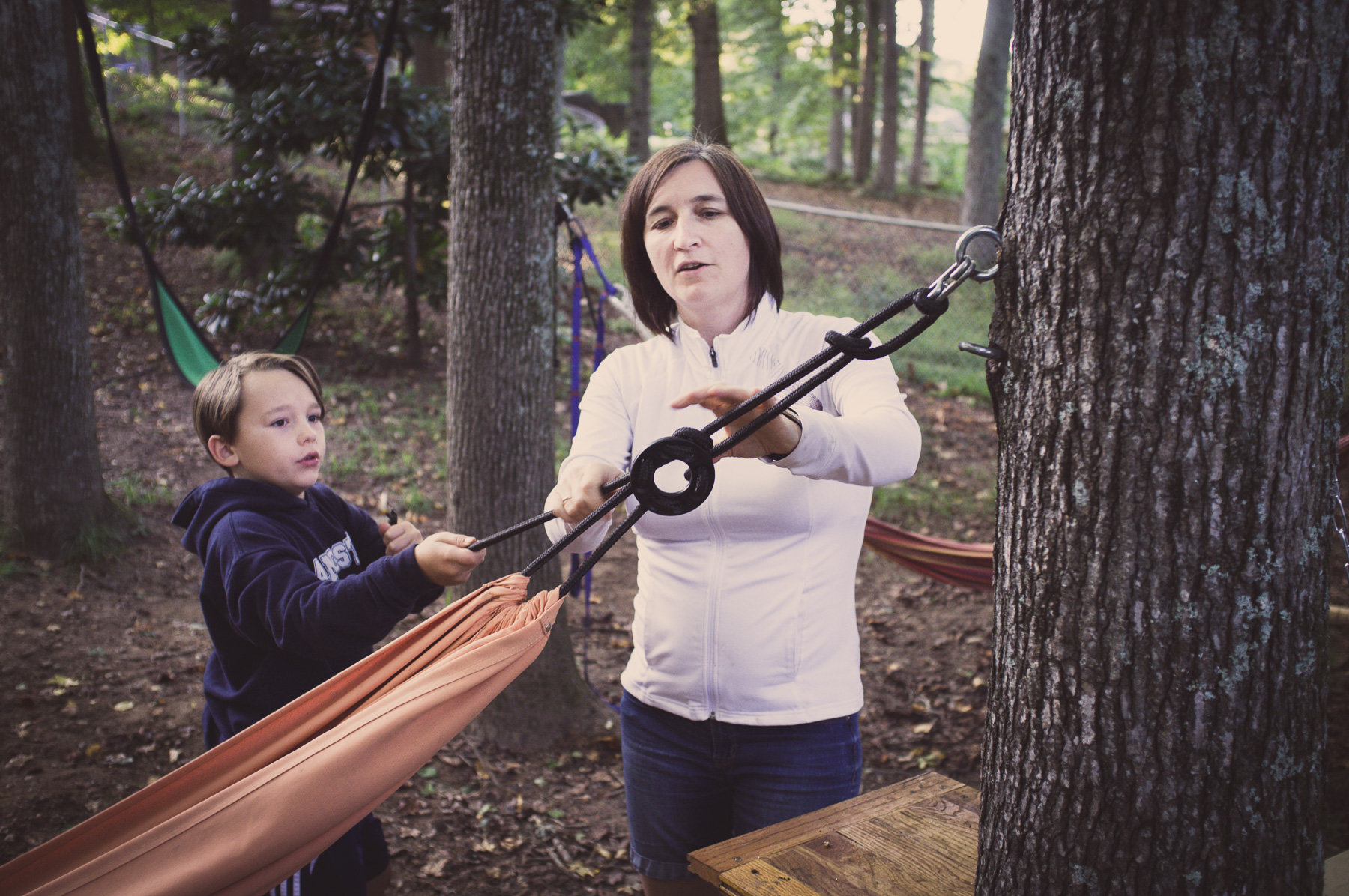
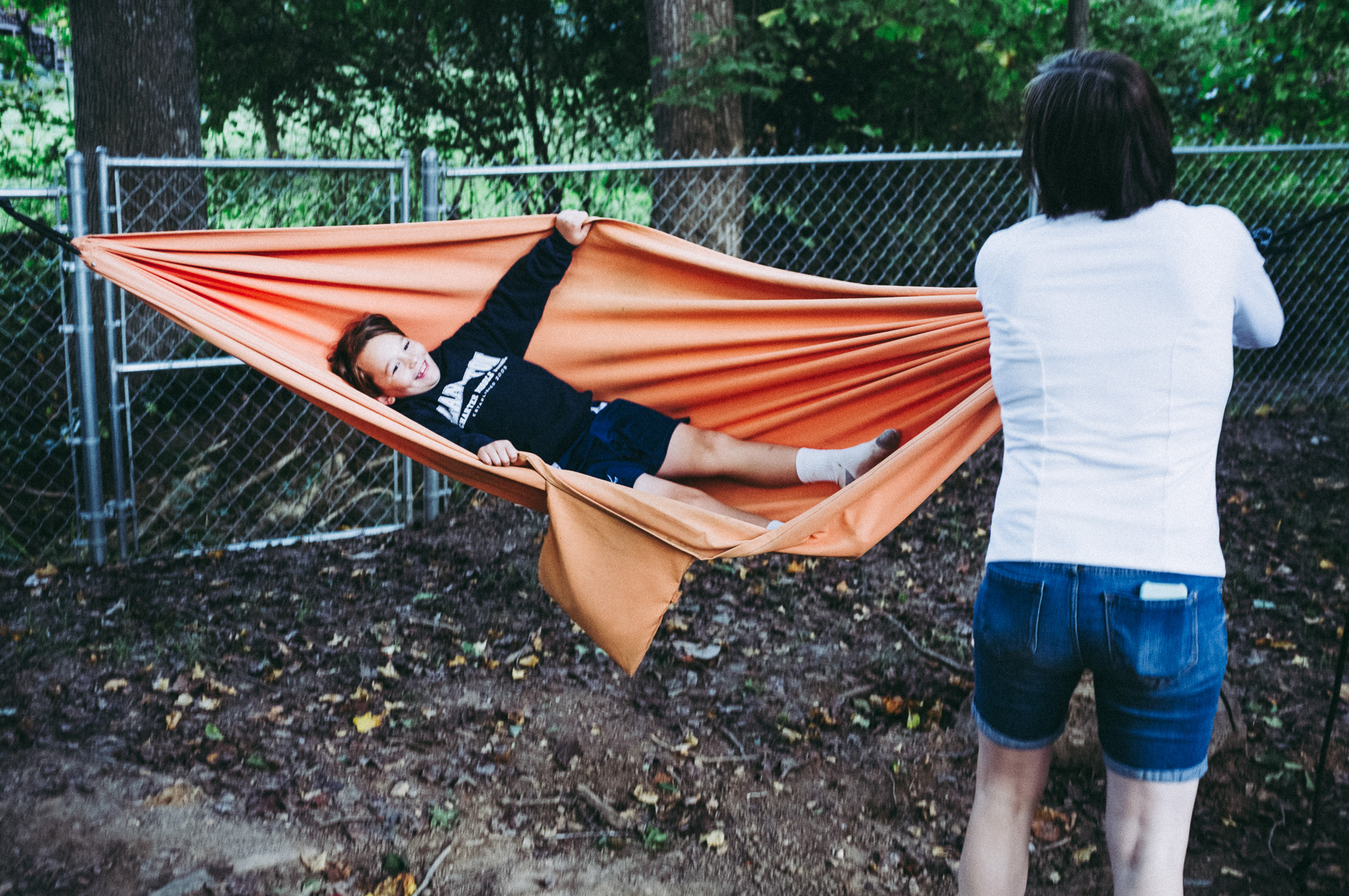
Working with the Dog
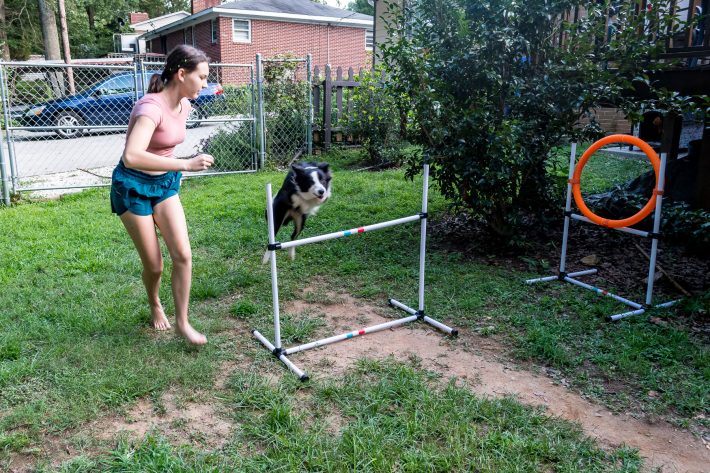
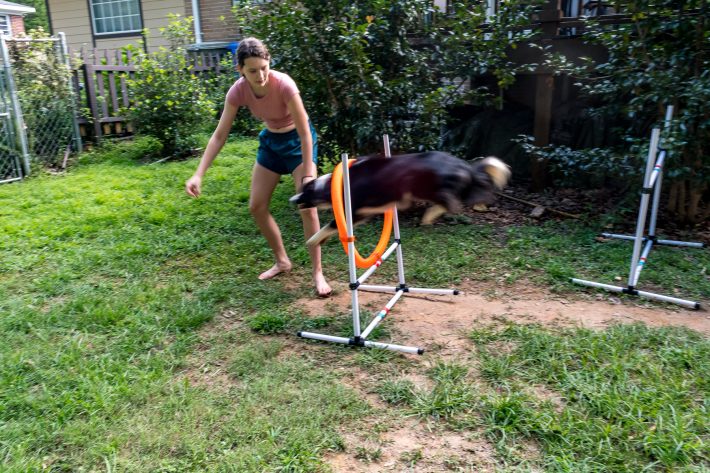
Aggressive Visitor
We had a raccoon visiting our property this afternoon. It was on the other side of the fence, but still technically on our property, and though Clover had no idea that that was the case, and though she is as much a guard dog as I am a potted plant, she raced down to the fence and confronted the raccoon.
The dog barked; the raccoon backed away, turning eventually and trotting along the creek upstream, toward the area where the Boy and I always explore. Suddenly, though, it turned back and came charging. It ran right up to the fence and began pushing against the fence, snarling and growling. Clover ran back to the raccoon, and soon they were running back and forth, the fence between them, Clover thinking it was a game, the raccoon furiously expressing its lack of amusement.
The raccoon became more and more aggressive, and I began wondering if there wasn’t something more going on. I decided it was time to un-welcome the little beast, so I took a great rock and heaved it toward the raccoon’s general vicinity. I didn’t want to hit it; just come close enough to frighten it.
It seemed to work: the raccoon darted into the stream and trotted away, but I know it will come back, and I worry about what might happen if it climbs the fence.
A Fire
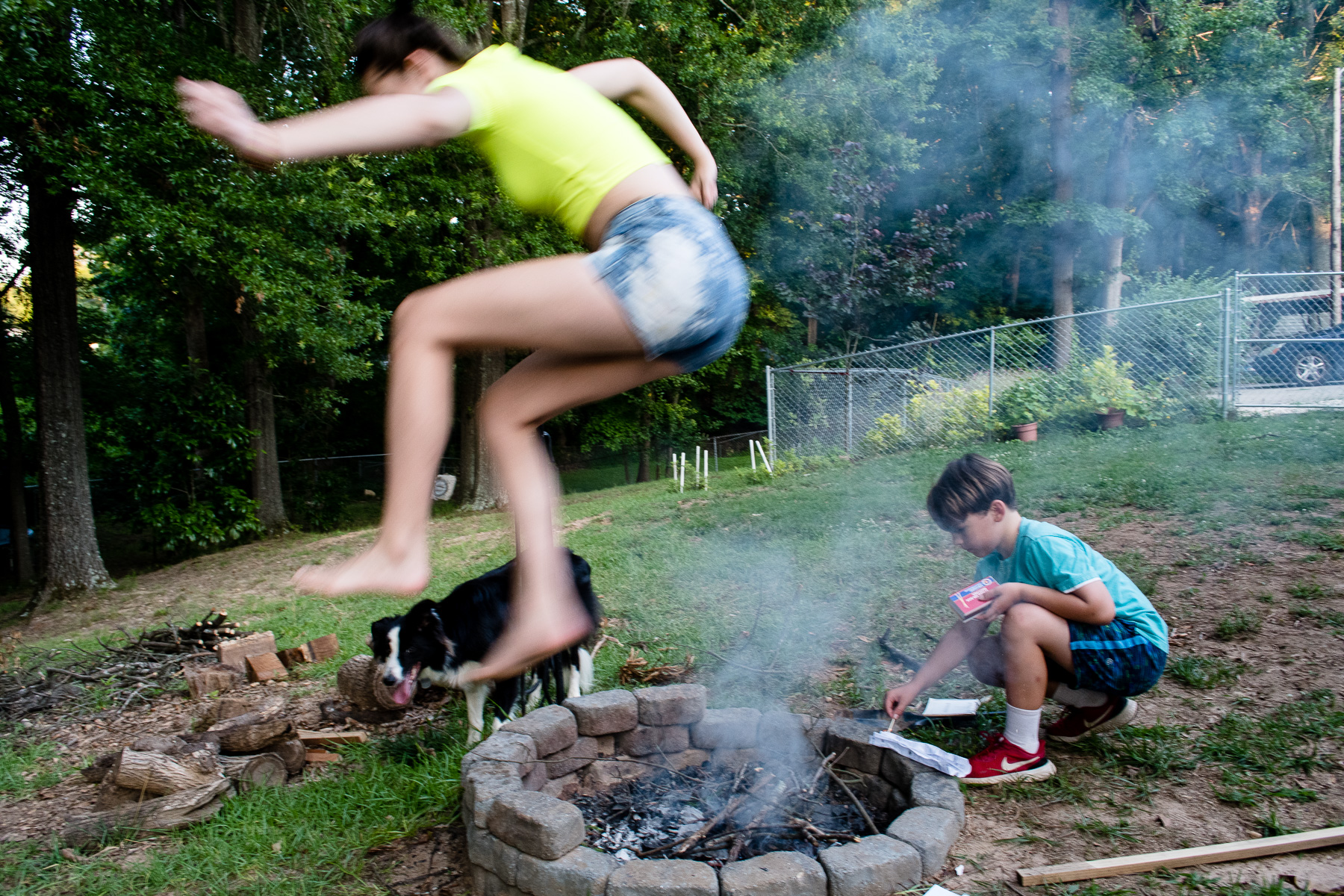
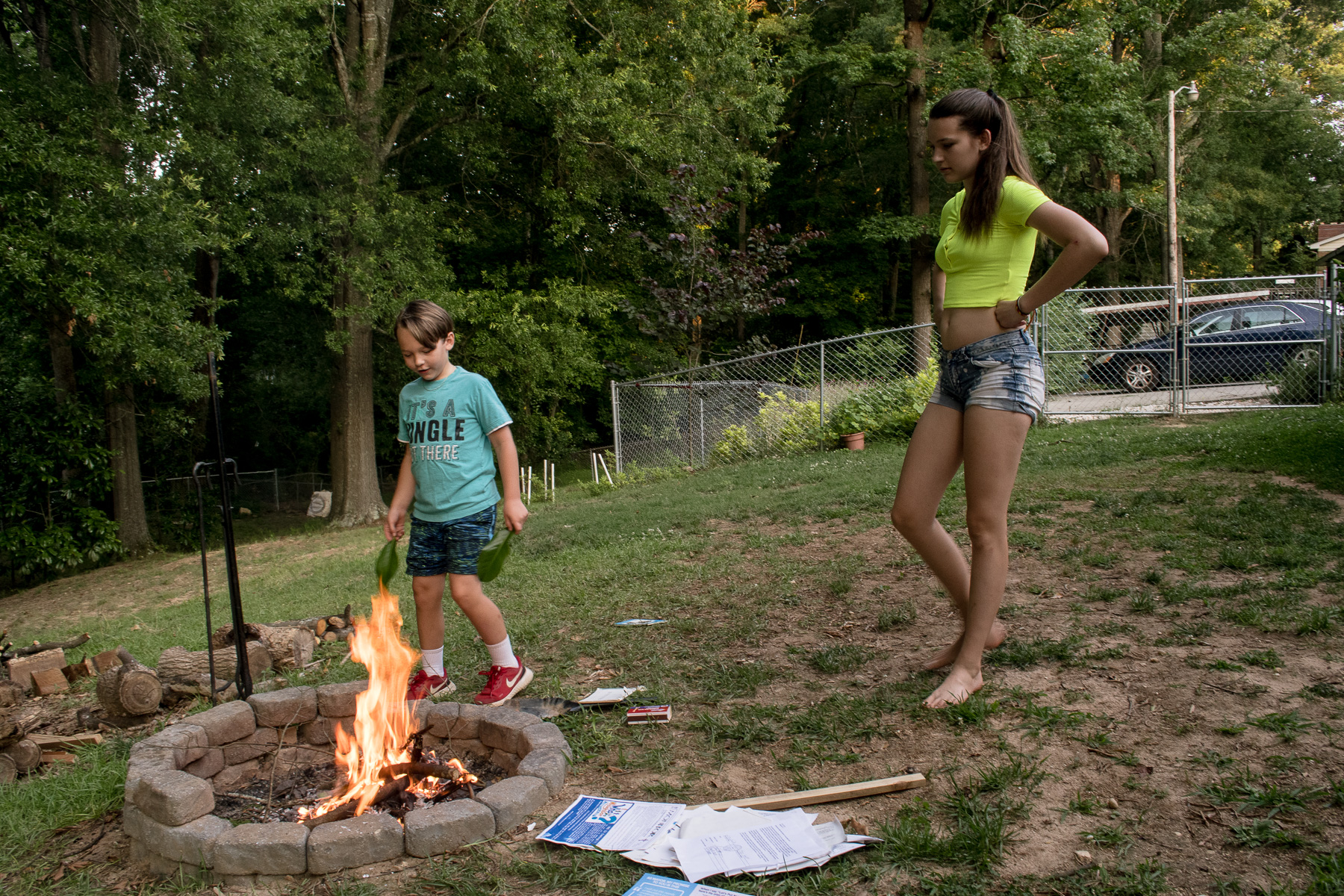
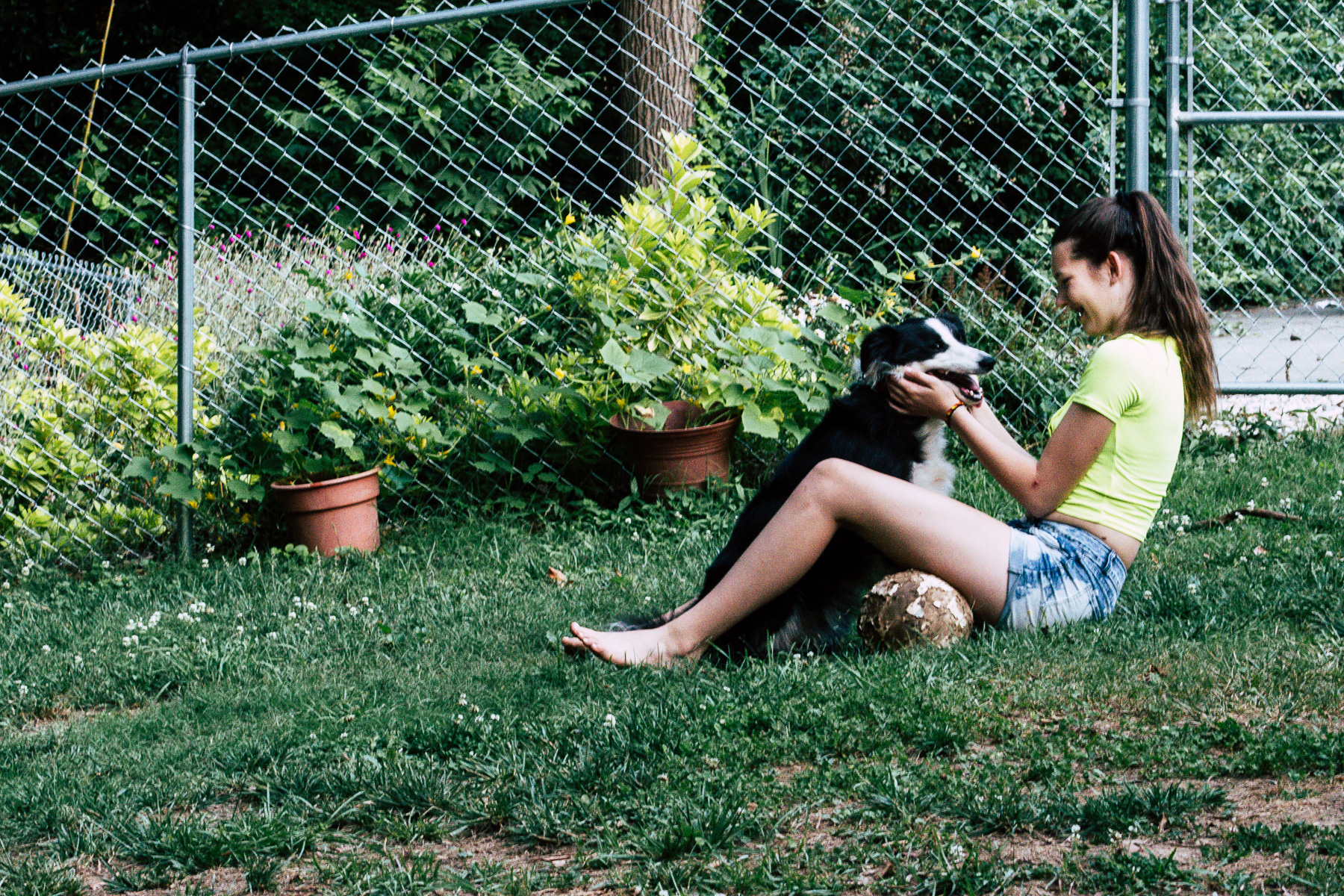
Day 70: Flood
It started raining around two this afternoon, first sporadic rain with fat, lazy drops, then steady rain, then torrential rain.
In the past, such rain worried me because of flooding in our basement. With the leak in our roof, I now have different concerns. As the storm grew and the wind blew harder, I wonder whether or not I’d secured the two tarps protecting our roof well enough to keep them in place with such a storm. There was really nothing I could do about it at the time, of course: it would not have been remotely safe to head onto the roof in a storm to put down additional weight to keep the tarps from flying off.
In the end, my worries were for nothing: the tarps stayed in place; the sump basin didn’t even have much water in it, so the basement wasn’t even close to being threatened.
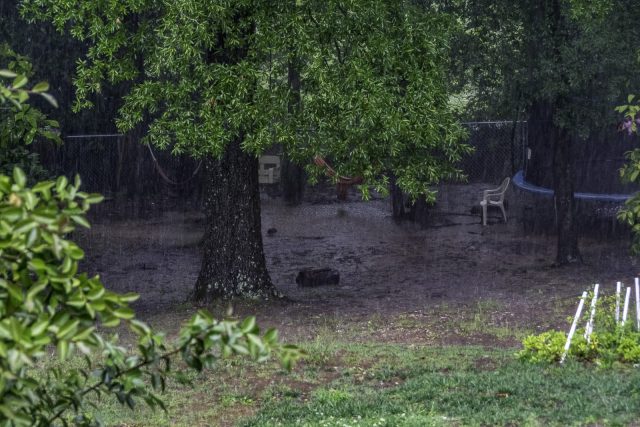
Yet we still had a lake in our backyard: the creek didn’t crest but we had essentially one big puddle in the lowest part of our yard, so after we finished playing a game (“Ticket to Ride” — I never play to win; I play to block other players — you can’t lose if you’re not trying to win!), E and I struck out to see what was going on in the neighborhood.
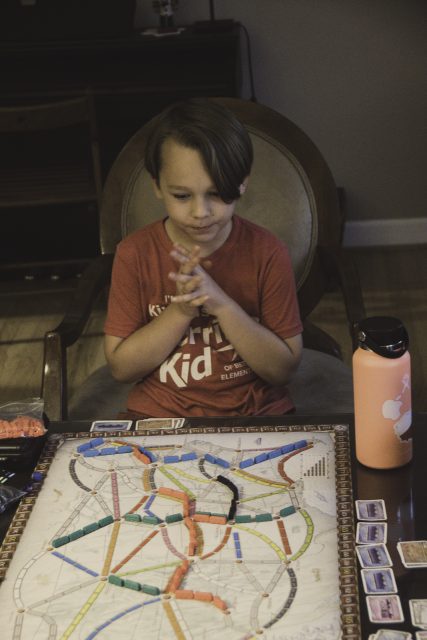
We weren’t prepared for what we found:
To begin with, there is a house basically in a hole that has an enormous backyard — I thought it was a park when we first moved here.

The road that goes by it was closed because their yard, which is in reality just a drainage basin for the surrounding community, was completely flooded.

Completely.

So much so that the culvert under the road was completely submerged, creating a whirlpool as the water tried to drain.

We stood in the road looking at the whirlpool, right at the edge of the water. We’re past the time of E asking questions like, “Daddy, what would happen if I fell in that water?” He knows. He likes to show he knows. “Boy, Daddy, if I fell in that…” and his voice trailed off for effect.
It gave me a little shudder, the shudder of a parent having nightmarish visions of the worst possible outcome. Once such thoughts enter my mind, it’s hard to shake them. The Boy seemed to realize that. “Come on, Daddy, let’s go back to the other side.
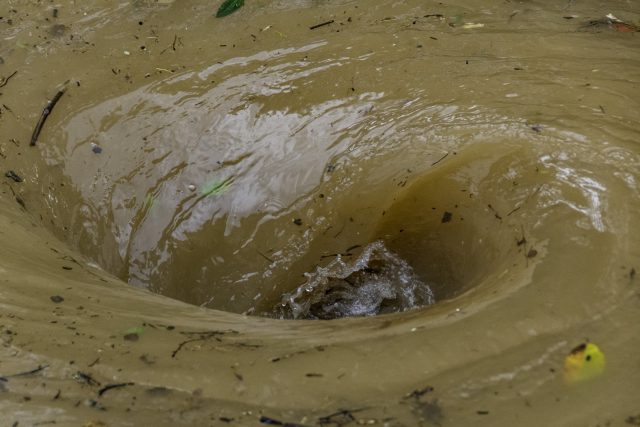
All that water — undoubtedly the worst flooding we’ve seen there. It was still nothing compared to what we saw later, downstream. We walk by here almost every night — it’s K’s favorite walk.

The creek that was forming the whirlpool earlier joins with another creek at this point, and the two completely covered the flat land around it.
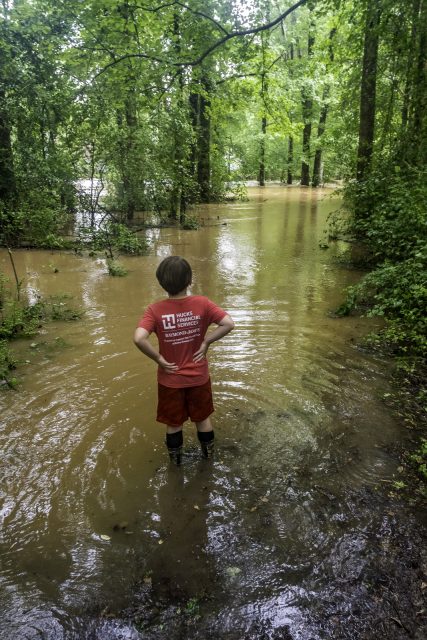
We headed back home, still having fun on the way.
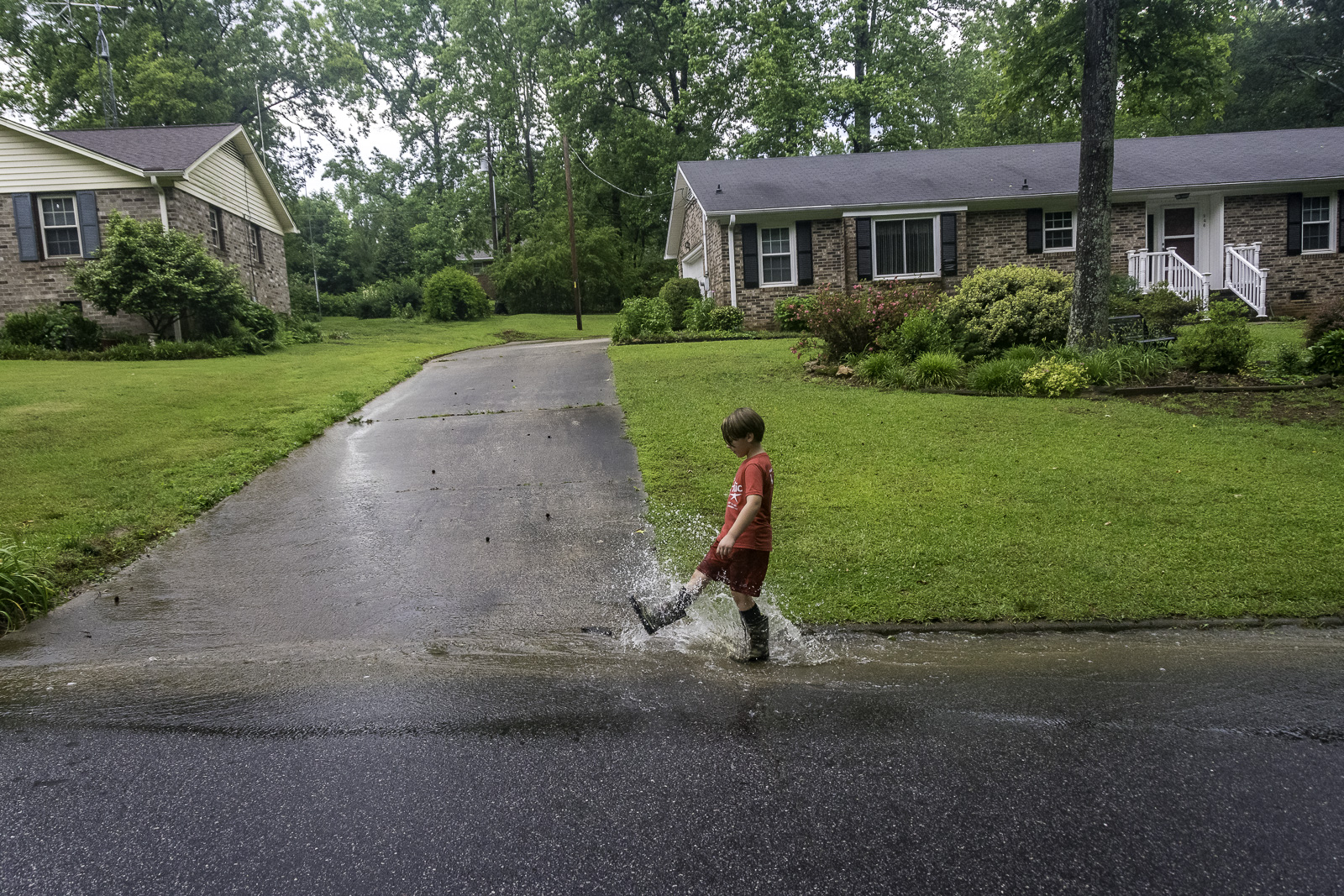
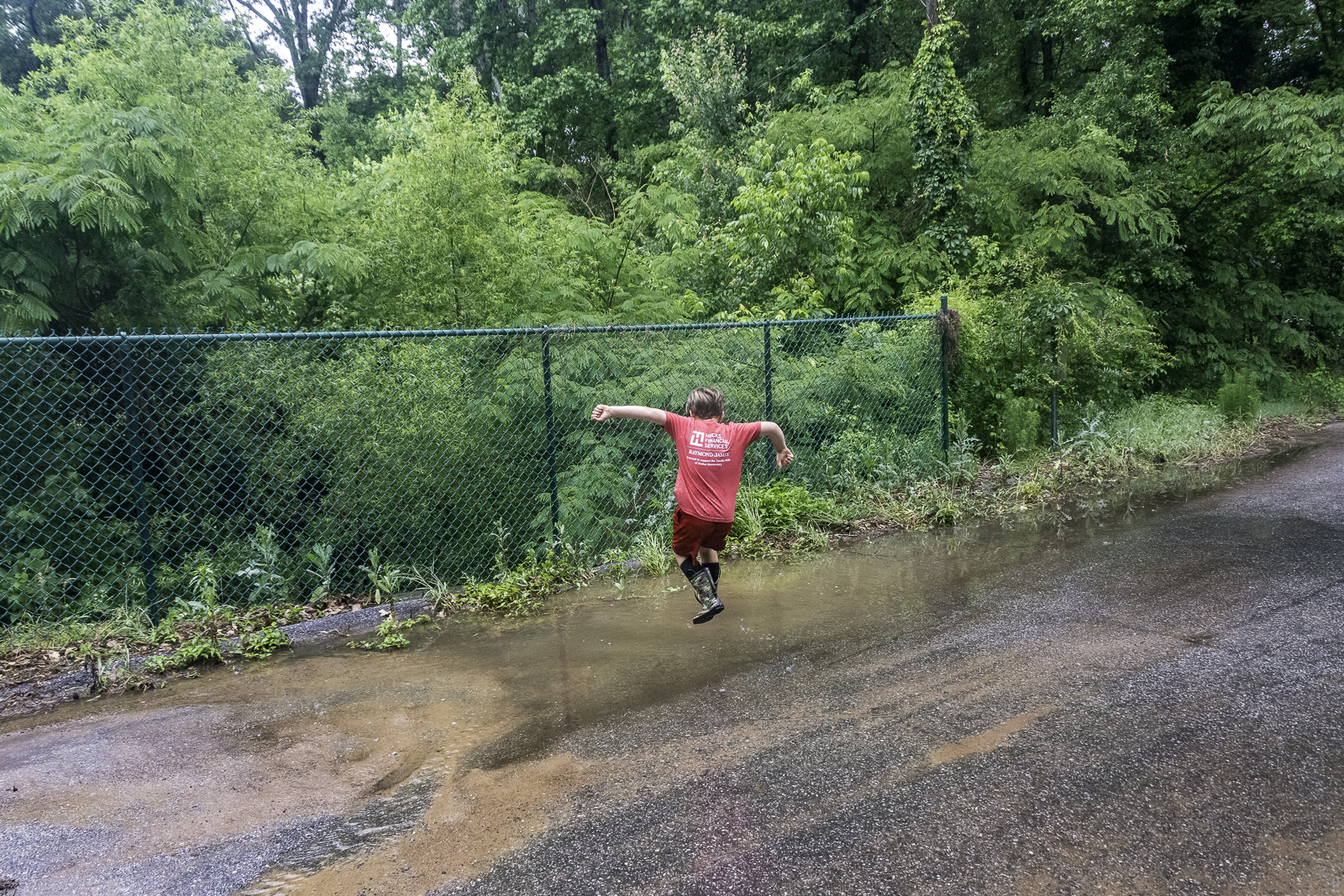
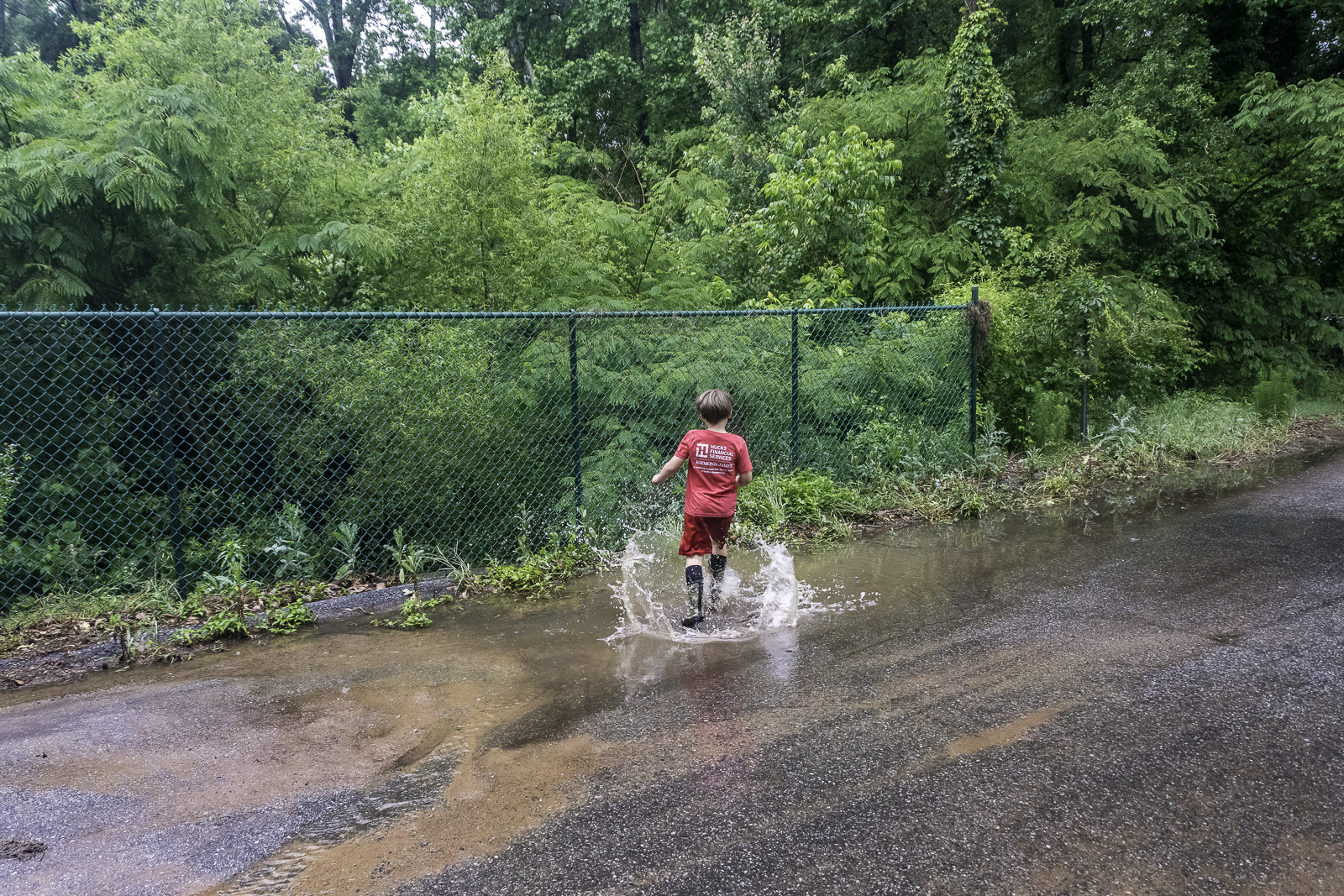
In the evening, we went for a walk to show the girls what it looked like. Of course, most of the water had subsided, but there was still enough to be impressive, and just enough to enjoy safely.
Day 69: Training, Cleaning, and Reading
Our pup has come a very long way. I thought, when we got her, that since she’s a border collie (smartest breed on the planet, right?), things would be easy. She’d be easy to train, easy to control (after all, you can get those dogs to do the most amazing tricks herding sheep), easy to house-break — just easy. But it turns out that BCs are too smart for their own good: it makes them a little stubborn at times. And that describes our Clover perfectly: stubborn, stubborn, stubborn. But we didn’t give up on her: we took her for some obedience training, we left her a couple of times for one-on-one days with a trainer, and for the last year, things have been going great.
Now, we have a few tricks with her.
- You can, for instance, drop a piece of the most tempting meat in front of her and she’ll just sit down at it, shifting her gaze from the meat to you and back to the meat, a pleading look in her eye, and she won’t touch it until you tell her, “Eat.”
- In the morning, you can open the door and tell her, “Siusiu,” and she’ll go out and immediately relieve her self and come back inside.
- You can call her and she comes and sits beside you.
- If you want her on the other side, just say “Other side” and she’ll switch sides.
- You can tell her to stay and then kick ever her most beloved ball and she won’t go darting after it until you tell her “free” or “go get it” or “release.”
- “Heel” means “heel.”
- When you’re taking her for a walk and stop moving, she sits — sometimes immediately, but usually after a bit of hesitation. (There’s that stubbornness.)
For her birthday, though, we got her an agility course. The Girl began training her yesterday. It was fairly simple: she figured out that she had to jump over the bar, had to jump through the hoop. Easy-peasy. She looked up at L like she looks up at me when we go for a run: “Was that supposed to be a challenge or something?”
Today, the Boy got in on the fun. He had a little difficulty getting her to jump without a leash on her to guide her, but soon enough, he’d worked out his own way of bribing her with a little treat.
My Ántonia
I finished reading My Ántonia today — or rather, listening to it on Spotify. I first read that book in college, and it astounded me, particularly one quote: “Some memories are realities, and are better than anything that can ever happen to one again.” More than O, Pioneers! (the only other Cather book I’ve read), I really connected with the sense of nostalgia that pervades My Ántonia. That’s why I remember that quote almost a quarter of a century later: I read it shortly after some emotionally traumatic losses (not deaths, just losses) in my life, and I was wallowing in nostalgia about those lost relationships.

I had forgotten, though, about the ending:
This was the road over which Ántonia and I came on that night when we got off the train at Black Hawk and were bedded down in the straw, wondering children, being taken we knew not whither. I had only to close my eyes to hear the rumbling of the wagons in the dark, and to be again overcome by that obliterating strangeness. The feelings of that night were so near that I could reach out and touch them with my hand. I had the sense of coming home to myself, and of having found out what a little circle man’s experience is. For Ántonia and for me, this had been the road of Destiny; had taken us to those early accidents of fortune which predetermined for us all that we can ever be. Now I understood that the same road was to bring us together again. Whatever we had missed, we possessed together the precious, the incommunicable past.
“What a little circle man’s experience is.” What a lovely notion, what a great truth.
Returning to Dickens
“What to listen to now?” I thought, as I finished the Cather novel early in the day and still had plenty of outside work to keep me occupied. Much of the morning I spent cleaning rocks. Yes, cleaning rocks. The drainage trough (for lack of a better term) I made at the base of our driveway has, over the years, become more and more clogged with dirt. Now instead of wicking water away from the drive, it just serves as a barrier and makes it puddle water. What’s more, with all that dirt, weeds had a great place to grow. So I pulled out all the rocks down to the landscaping fabric, washed the dirt off the rocks, and put them back. (Coronavirus quarantine has lent itself to long-ignored, not-necessarily-critical projects.) Anyway, I was still working on the rocks and the book finished.
Spotify is sort of hit-or-miss with audiobooks: there’s very little (that I’ve found) that’s relatively recent, and a lot of the older books are actually in translation — lots and lots of German audiobooks I’ve found.
When I lived in Poland, I had some difficulty finding affordable English-language books. Penguin Classis, though, were plentiful and relatively cheap. That’s how I read almost every Dickens book in the space of three years. There are a few that I never found, though, and I thought today might be a good day to return to Dickens.
I hadn’t really read him in almost twenty years. I teach Great Expectations some years to my English I Honors students, but that doesn’t really count: the last year I taught it (two years ago, I think), I didn’t even read it with the students.
So today I began Dombey and Son. I’d forgotten how clever and witty Dickens can be, and how gifted he can be at beginning a novel. Think of his most famous, A Tale of Two Cities:
It was the best of times, it was the worst of times, it was the age of wisdom, it was the age of foolishness, it was the epoch of belief, it was the epoch of incredulity, it was the season of Light, it was the season of Darkness, it was the spring of hope, it was the winter of despair, we had everything before us, we had nothing before us, we were all going direct to Heaven, we were all going direct the other way— in short, the period was so far like the present period, that some of its noisiest authorities insisted on its being received, for good or for evil, in the superlative degree of comparison only.
Or my personal favorite Dickens beginning, which I’ve mentioned here before, Bleak House:
London. Michaelmas term lately over, and the Lord Chancellor sitting in Lincoln’s Inn Hall. Implacable November weather. As much mud in the streets as if the waters had but newly retired from the face of the earth, and it would not be wonderful to meet a Megalosaurus, forty feet long or so, waddling like an elephantine lizard up Holborn Hill. Smoke lowering down from chimney-pots, making a soft black drizzle, with flakes of soot in it as big as full-grown snowflakes—gone into mourning, one might imagine, for the death of the sun. Dogs, undistinguishable in mire. Horses, scarcely better; splashed to their very blinkers. Foot passengers, jostling one another’s umbrellas in a general infection of ill temper, and losing their foot-hold at street-corners, where tens of thousands of other foot passengers have been slipping and sliding since the day broke (if this day ever broke), adding new deposits to the crust upon crust of mud, sticking at those points tenaciously to the pavement, and accumulating at compound interest.
Fog everywhere. Fog up the river, where it flows among green aits and meadows; fog down the river, where it rolls defiled among the tiers of shipping and the waterside pollutions of a great (and dirty) city. Fog on the Essex marshes, fog on the Kentish heights. Fog creeping into the cabooses of collier-brigs; fog lying out on the yards and hovering in the rigging of great ships; fog drooping on the gunwales of barges and small boats. Fog in the eyes and throats of ancient Greenwich pensioners, wheezing by the firesides of their wards; fog in the stem and bowl of the afternoon pipe of the wrathful skipper, down in his close cabin; fog cruelly pinching the toes and fingers of his shivering little ‘prentice boy on deck. Chance people on the bridges peeping over the parapets into a nether sky of fog, with fog all round them, as if they were up in a balloon and hanging in the misty clouds.
Dombey, though, has a clever opening:
Dombey sat in the corner of the darkened room in the great arm-chair by the bedside, and Son lay tucked up warm in a little basket bedstead, carefully disposed on a low settee immediately in front of the fire and close to it, as if his constitution were analogous to that of a muffin, and it was essential to toast him brown while he was very new.
Dombey was about eight-and-forty years of age. Son about eight-and-forty minutes. Dombey was rather bald, rather red, and though a handsome well-made man, too stern and pompous in appearance, to be prepossessing. Son was very bald, and very red, and though (of course) an undeniably fine infant, somewhat crushed and spotty in his general effect, as yet. On the brow of Dombey, Time and his brother Care had set some marks, as on a tree that was to come down in good time—remorseless twins they are for striding through their human forests, notching as they go—while the countenance of Son was crossed with a thousand little creases, which the same deceitful Time would take delight in smoothing out and wearing away with the flat part of his scythe, as a preparation of the surface for his deeper operations.
Of course, Dickens can be tiring with all his subplots and sub-subplots (after all, the longer he stretched novels, which were always published in syndication in magazines, the more money he could make from a given book), but I’m thinking he’ll be a lot easier to listen to than read.
Day 65: Inferring in the Rain
Inferring
Authors often say a lot without saying much. A good author leaves a lot for the reader to piece together for herself, and that’s one of the things that can make a book engaging. But filling in those gaps is a skill that readers must learn. It doesn’t come naturally.
This is one of the things I spend a lot of time and energy teaching my eighth graders how to do. The honors kids are usually fairly adept at it, but the on-level students often struggle. I have to model it for them, doing think-alouds in which I say aloud all the inferences that are running through my head when I read. I infer; I predict; I connect to previous knowledge; I comment on what I read. I model, model, model, then turn it over to them to try as a class before they try it in groups and finally as individuals. Scaffolding, that’s called: model it, practice as a whole class, practice in groups, practice individually — the bread and butter of my teaching.
Tom Sawyer is providing ample chance for me to begin exposing the Boy to this kind of critical thinking.
Presently [Aunt Polly] stepped into the kitchen, and Sid, happy in his immunity, reached for the sugar-bowl — a sort of glorying over Tom which was wellnigh unbearable. But Sid’s fingers slipped and the bowl dropped and broke. Tom was in ecstasies.
I pause: “What do you think will happen?” I ask the Boy.
“Aunt Polly will think that Tom broke the sugar bowl,” he said after a moment’s thought.
“Right. That’s called predicting…” I begin.
“I know, Daddy. You tell me that every time we read something.” Perhaps not every time, but often enough.
We continue:
In such ecstasies that he even controlled his tongue and was silent. He said to himself that he would not speak a word, even when his aunt came in, but would sit perfectly still till she asked who did the mischief; and then he would tell, and there would be nothing so good in the world as to see that pet model “catch it.” He was so brimful of exultation that he could hardly hold himself when the old lady came back and stood above the wreck discharging lightnings of wrath from over her spectacles. He said to himself, “Now it’s coming!” And the next instant he was sprawling on the floor!
“What does ‘sprawling’ mean?” the Boy asks.
I explain, then ask, “Do you understand what happened?”
There is a lot going on in that passage, particularly in the final two sentences: “He said to himself, ‘Now it’s comin!’ And the next instant he was sprawling on the floor!” Missing from this is the fact that Aunt Polly slaps Tom so hard that it knocks him off his chair.
I explained it to the Boy. He thought it was horrible that someone would slap a child so hard that it knocks him out of his chair. I think that’s a fairly reasonable concern, to say the least. Why do we adults find that passage funny, though? I think it’s because of all the work Twain makes us do, all the thinking, all the blanks we fill in. Twain is a master of implication.
In the Rain
It rained all day today. K and I were concerned that it might turn out to be enough to threaten our basement again. Granted, I have filled all the termite treatment holes with hydraulic cement: those holes shouldn’t let any more water into our basement, let alone the geysers and fountains that were gushing in during our last storm. And the crack by the fireplace? I drilled it out completely and patched it with more hydraulic cement.
So part of me was thinking, “Okay — bring it on. Let’s see if I’ve got you licked” (to employ a usage from Tom Sawyer that still tickles the Boy).
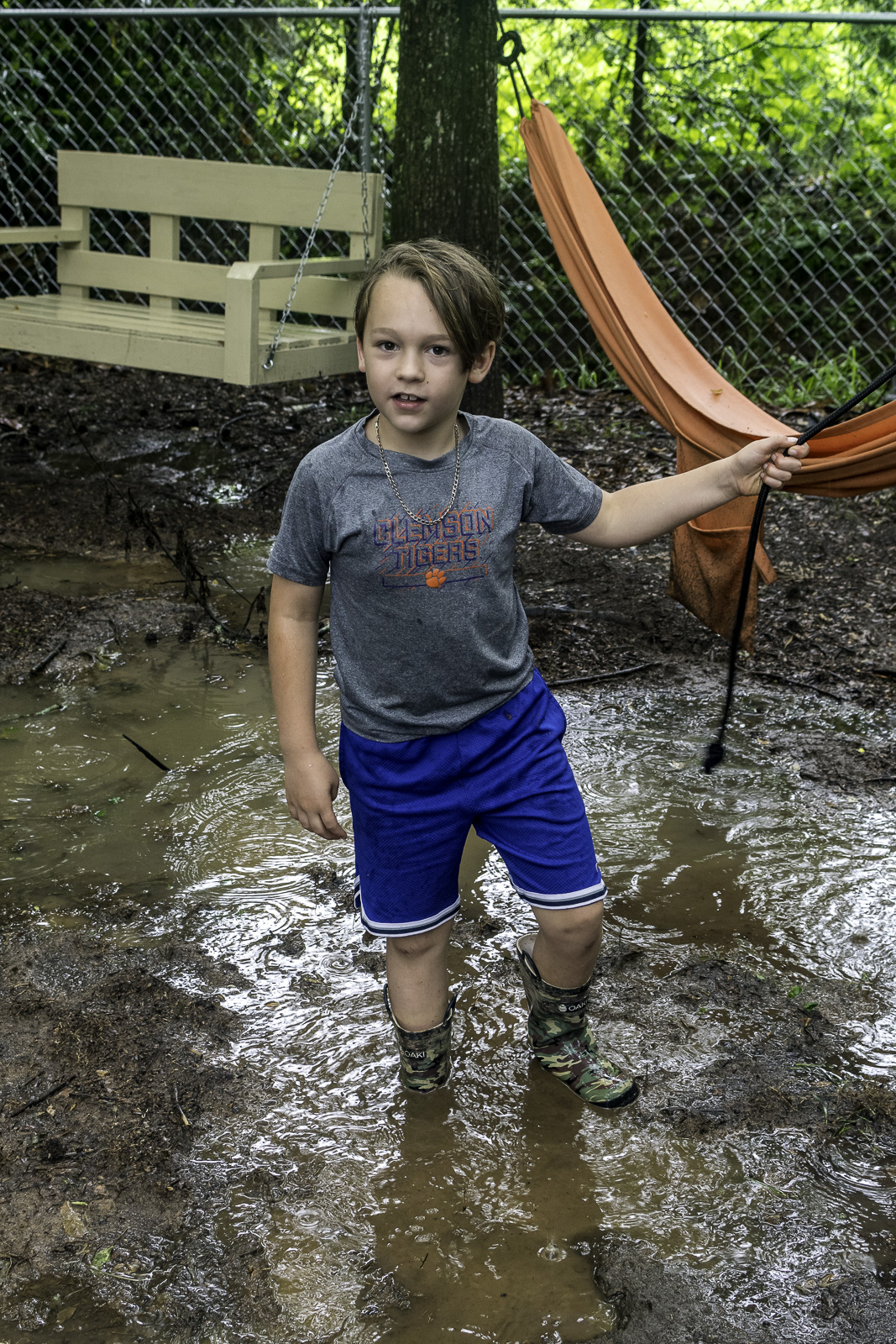
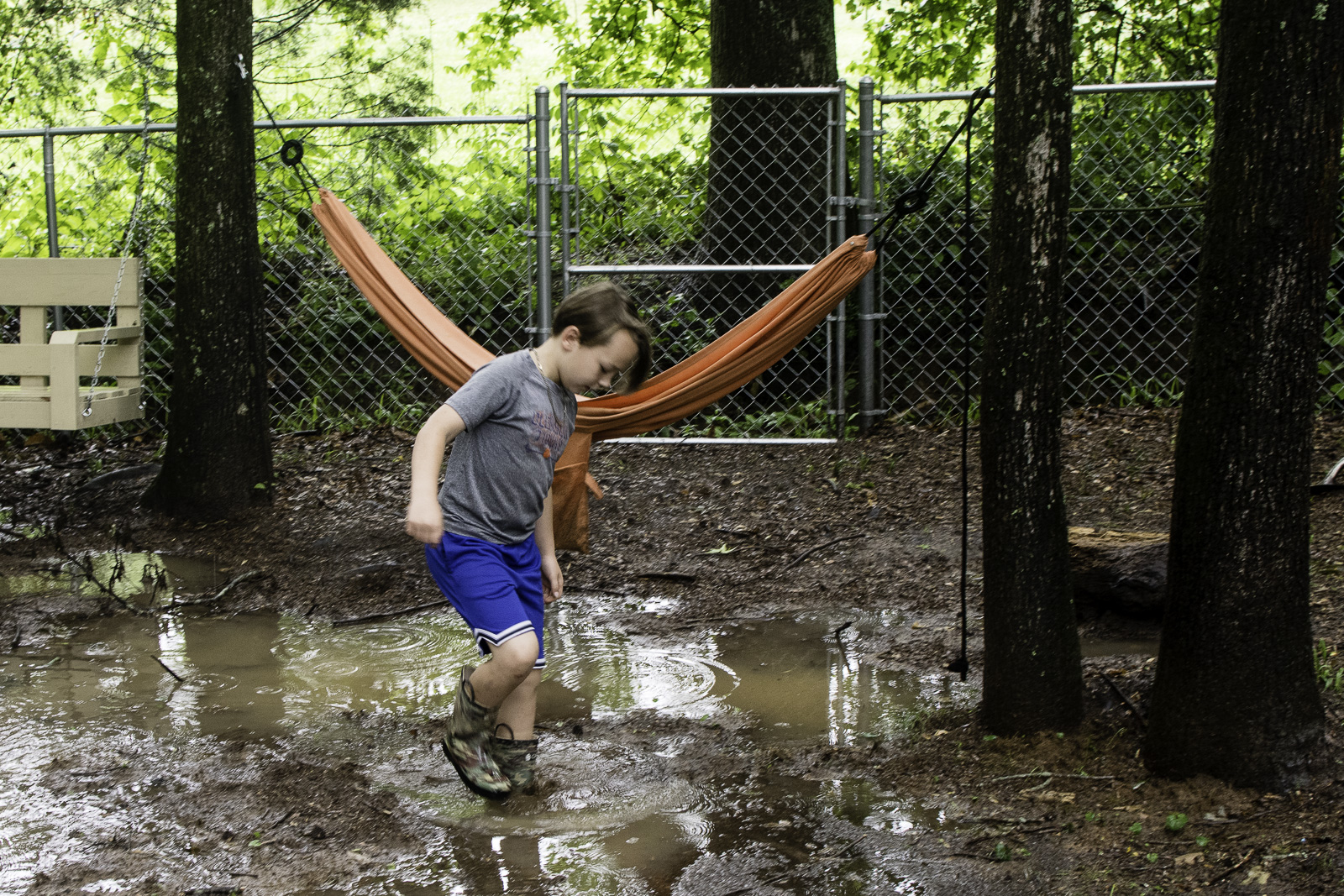
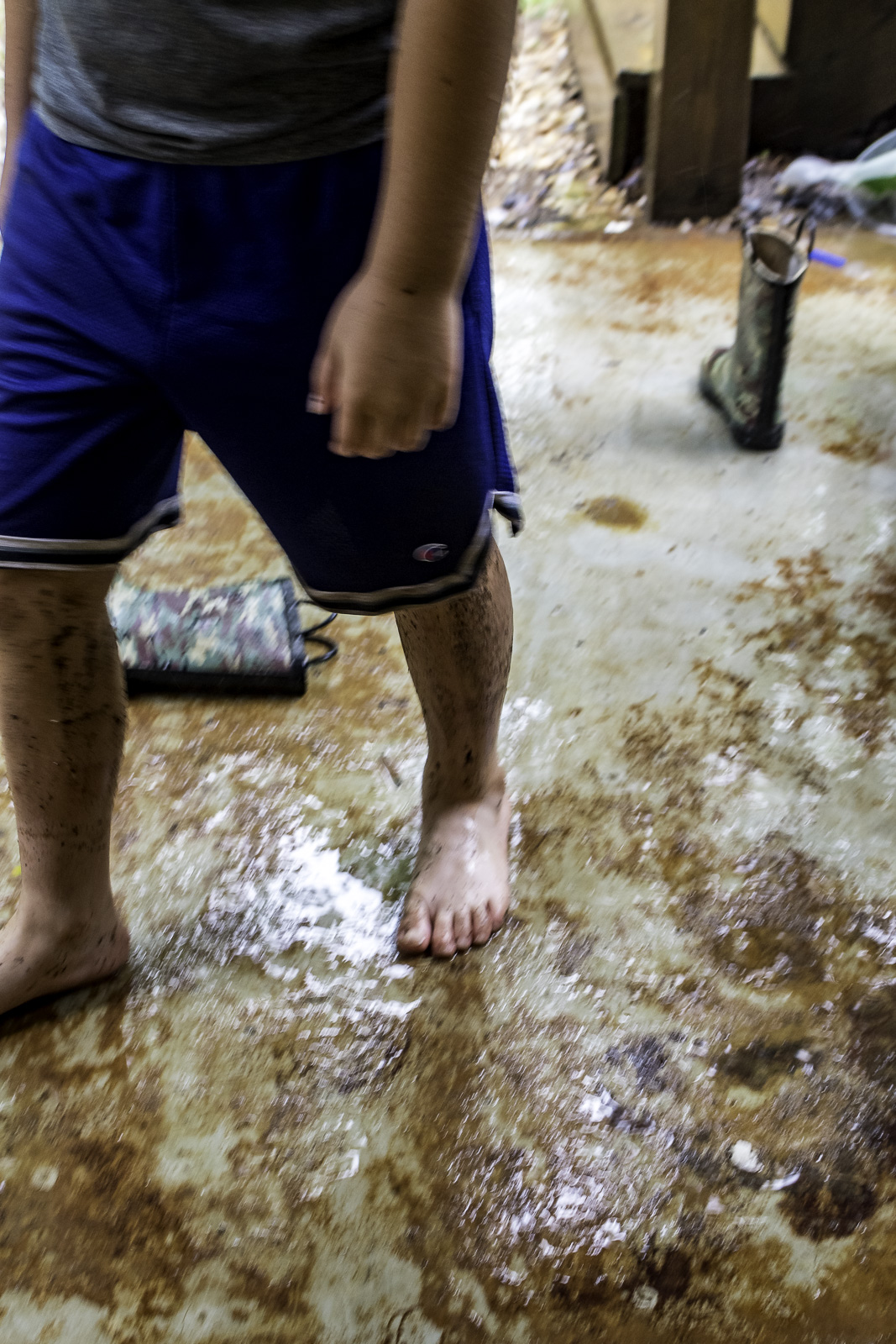
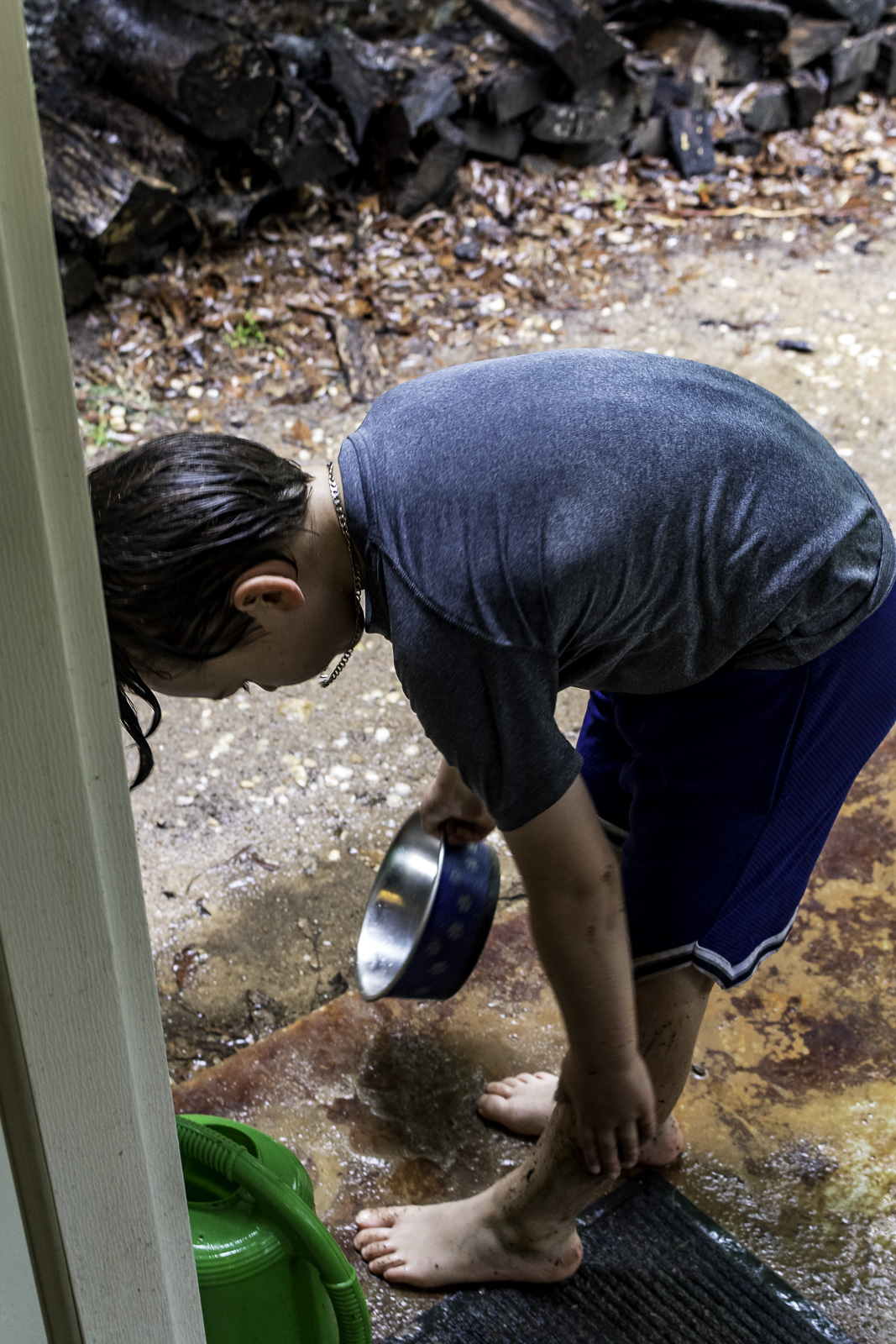
But most of me was just hoping that it didn’t come to that. When the Boy and I headed out in the morning to see how much rain had fallen, things were looking bad but not dreadful.

We went back out in the afternoon after more rain. We went ahead and crossed the creek at this point like usual: the water was only a few inches above our feet. I held the Boy’s hand, and we ventured up a bit further. The rain continued, and by the time we made it back to this point, the water was waist-deep for the Boy. I held his hand firmly, and we made it across easily, but it was a lesson: “See how quickly the water can rise?” That’s the epitome of flash-flooding.
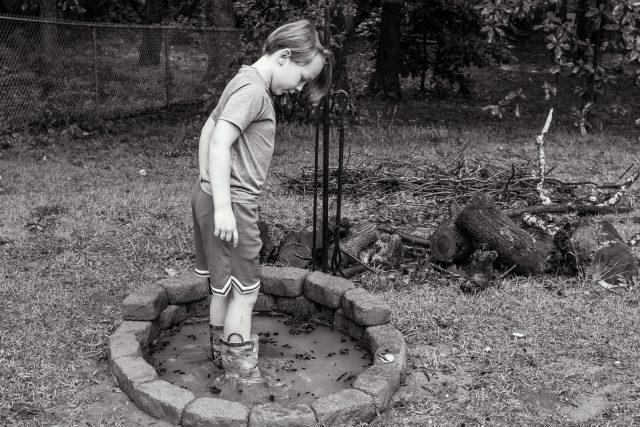
Scare Politics
I noticed this particular meme this evening on social media:

I find it hard to imagine what kind of simplistic thinking could lead to something like this. Surely no one so naive as to believe that it’s as simple as this meme suggests. To think that we could go from Trump-istan to this worst-case-scenario, utterly exaggerated vision of progressive ideas run amuck in one election cycle — I just don’t get it.
What I do get is the fear buttons this kind of meme pushes. The left has their own versions of these memes, of course. I could probably browse the tweets of friends who lean much further to the left that an avowed centrist (don’t we all see ourselves as centrists? no — we certainly don’t) like me and find the equivalent: we’re one step away from living in a real-life Handmaid’s Tale. (Come to think of it, I believe there was a protest with women dressed as handmaids from the novel/movie/series.) Making decisions from fear is bad enough, but making them from a sense of fear that might very well have been intentionally manipulated — that in itself is terrifying.
The Dog
Two things: how can a dog get that dirty in a matter of seconds? And how can it seem to disappear as soon as she’s dry?
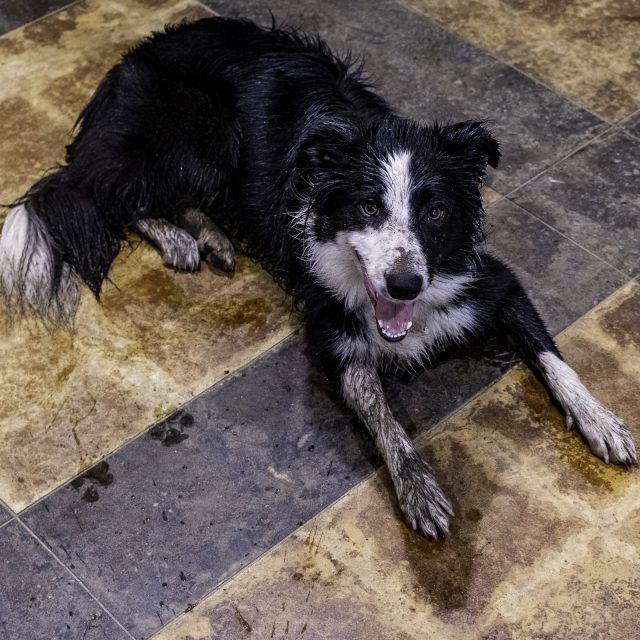
Day 62: Camping in the Backyard
We’ve gone camping as a family quite a few times: Stone Mountain, Deep Creek, Lake Jocassee, and Huntington Beach come immediately to mind. Memorial Day was always a great weekend to go camping, and we went most often to the beach. But then life got complicated, family got sick, schedules changed, and responsibilities grew so that now, even if there weren’t a pandemic to worry about, we would not be able to go camping as a family for quite some time. For how long? We really don’t know.
The Boy, though, wanted to go camping. So we did the obvious thing last night: we pitched a tent in our backyard and spent the night in it. There — camping.
Well, not quite. We took our pillows down with us. Somehow, we never remember to bring our pillows — or any pillows really — when we go camping.
Also, I went in to get E’s blanket in the middle of the night when I woke to find him only barely covered with the sleeping bag because he was sleeping under it instead of in it.
And we didn’t have to strike camp this morning. We just left it up, thinking we might go camping again.
Finally, and most significantly for me, I took a shower without flipflops this morning.
Yesterday afternoon, we also put up K’s new swing. It’s hanging a little wonky now, and I didn’t have a chance to figure out today why, but it’s there. And the dog even likes it.
As for today, other than the single picture from this morning, I never had occasion to take out the camera. Who wants to see pictures of bathrooms in the midst of weekly cleaning or the crawl space as I examine the water pipes to try to figure out why they’re banging and knocking?
Day 58: The Ball, the Berry, the Photo, and the Border
Kicking the Ball
Clover loves to play fetch with balls: tennis balls, volleyballs, basketballs — whatever. She prefers anything over a basketball because she cannot grasp it in her teeth and has to herd it up the hill of our backyard with her nose. This is why I personally prefer a basketball with her because it is much more amusing to watch her bring the ball back.
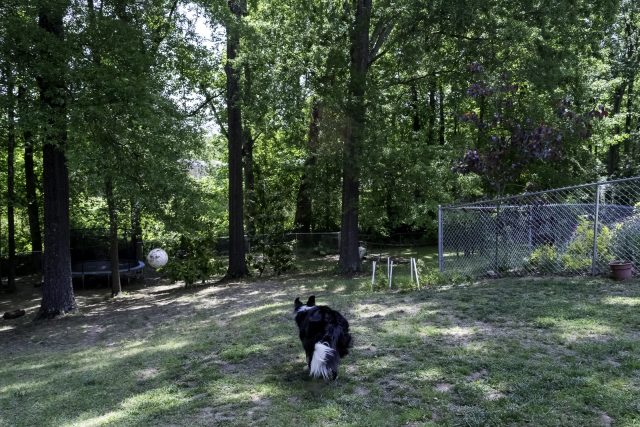
However, as enjoyable as playing ball with Clover is, she can really turn it into an annoyance. Any time anyone comes into the backyard, she thinks they’ve done so expressly to play with her. No other options are conceivable. So she runs to get the ball and drops it near your feet and backs off expectantly. She looks at the ball, looks at you, looks back at the ball. If you don’t kick it, she’ll run up, give it a little nudge with her nose, then back off again, ready to streak down the hill after the ball.
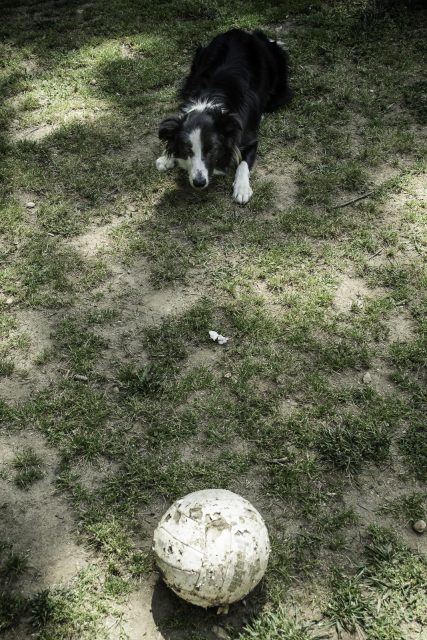
This is cute if you’re just out with your son, doing this or that. It’s less cute when you’re trying to do something, like build a fire or finish a swing. I try to accommodate her even then, occasionally kicking the ball for her or simply shove it away from me with the vague hope that it will roll down the hill that is our backyard and distract the dog for at least fifteen seconds.
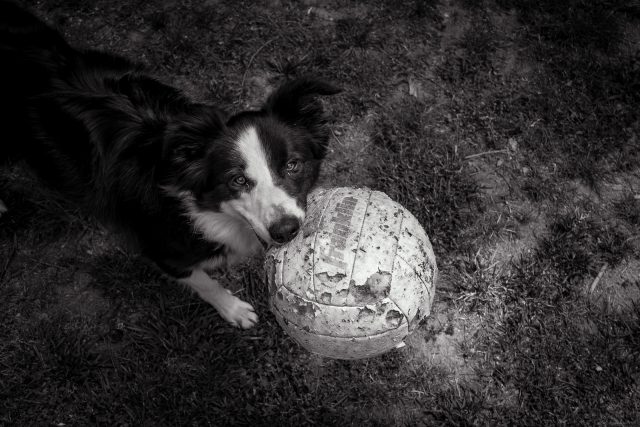
I shouldn’t complain, though: I love our dog, even though I joke that I don’t. She’s stubborn and overly hyper; she gets jealous of any dog which is receiving giving attention; she plays rough and tries to boss smaller or large and more docile dogs about. Despite these minor shortcomings, it’s hard not to adore her: her jealousy just comes from her love. Her pestering just comes from a desire to play, which she rightly realizes we often enjoy as much as she.
Shooting and Berries
During our morning break, the Boy and I went shooting in the backyard. He’s become quite the shot with his bb gun. While we were retrieving an errantly kicked ball (over the fence to the driveway, rolling down to the blueberry bushes), he decided to take a few shots at the archery target at the other end of the yard. From where we stood, though, he was shooting only at the side, a target of about 15-18 inches wide. He hit it the first time; he hit it the second.
“Man, I’m good,” he said.
Yes, he certainly is. Sometimes we have to work on that modesty a bit, though. Yet, on the other hand, he is so lacking in confidence about some things — especially academic tasks — that perhaps a bit of bragging is a good thing. I don’t know.
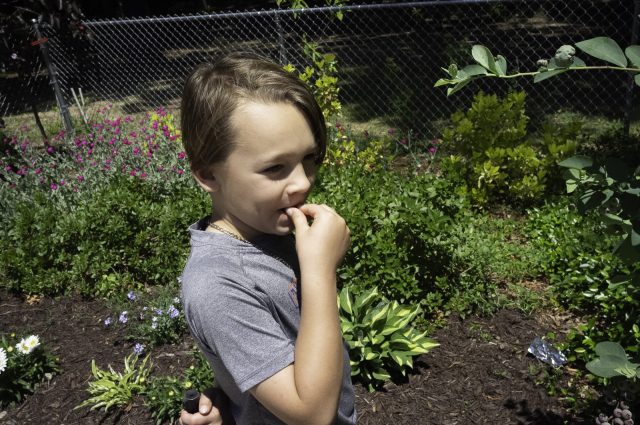
I do know that he was impressed with the number of berries on our bushes and wondered what would happen if we were to try them now, long before they’re ripe.
“Go ahead and try one — but you probably won’t like it,” I suggested.
He tried one.
“Oh, oh! Yuck! It’s so hard and sour!”





Photo Walk
After school was finished, the Boy was eager to go on a photo walk together. “I’m not so into photography anymore,” he explained, “but it’s still fun.” So I gave him the old D70 and took our little X100 for myself and off we went.
We passed the house where, for whatever reason, the owners are storing an old toilet on the back deck. The Boy loves the idea of a toilet on the back deck. “That way you can poop and be in nature!” That’s one way of looking at it — a very seven-year-old way at that. When we got to the house, he tromped boldly up to the fence, took a moment to compose his shot, and walked calmly back down. In the past, he didn’t really want to do that.
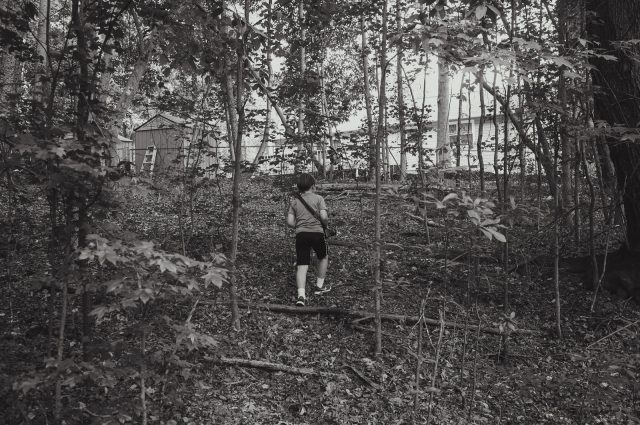
“What if they see me? What if they say something?”
I tried to explain: “The most they would do is to tell you not to take a picture of their house. In that case, you just smile, apologize, and say, ‘Sorry — I’ll delete it.’ Simple.”
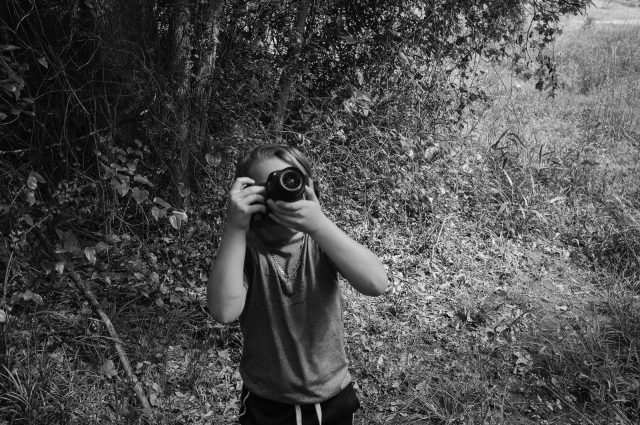
And where are the pictures he took? I haven’t taken them off the camera. I’ve been trying to teach him to use Lightroom and use his edits as well, but we didn’t have time today to complete the whole project.
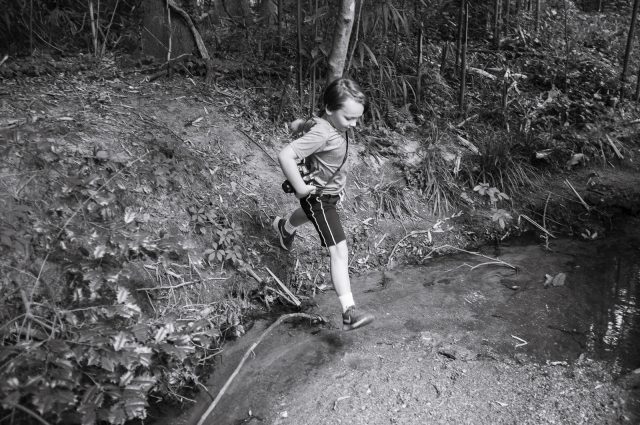
We had to hurry home for dinner.
My Hometown
I grew up in Bristol, which is a unique city as it sits on the Virginia/Tennessee border. The border runs right down the middle of the main street downtown, State Street. A divided city such as Bristol has unique features: for instance, sales tax in Virginia is much lower than that in Tennessee because Tennessee doesn’t have an income tax. Smart folks, then, live on the Tennessee side and shop on the Virginia side.
Back before Daylight Savings Time was an almost-nationwide phenomenon — I don’t know what else to call the arbitrary changing of the clock — one state used it and the other didn’t. That meant you could cross the street and gain or lose an hour.
When I first went to Poland in the Peace Corps, I stayed with a Polish host family in Radom for twelve weeks during training. The son was fascinated with State Street: “Does that mean if you commit a crime on one side of the city and the police chase you and you cross the border, they have to stop chasing you?”
The two-state status of the city is relevant now in the time of COVID-19 as Tennessee and Virginia are taking different courses through the pandemic. CNN had a story about it yesterday.
Day 49: Honking Adventure
Today was a somewhat low-key day. We went for a walk or two; we did a little work around the house; K led an in-house Mass substitute for the kids. But overall, it was a very lazy day.
In the morning, I took E on a walk with the dog. Well, I was planning on going alone, but he tagged along anyway. I was glad to have him.
“I want to hear the car honking!” he proclaimed, so we went back to the neighborhood where I’d heard it last week.
“Why do they do that?” he asked.
Why indeed. What’s the point of all those “amens” and “hallelujahs”? I think it has to do with social bonding. It’s like Catholics kneeling and standing and praying together, like Miloszcz said. I wanted to say, “It makes them feel good,” but I didn’t. And it probably isn’t all that simple, either.
After the walk, I took care of a couple of little tasks left over from yesterday. I use construction adhesive to connect the landscaping timbers on which I mounted the composter to solid concrete blocks to give it a bit more weight. I wanted to make sure that, if when another flood washes through the backyard, the composter will stay put. (I also set it behind two trees, which will help break the flow of the water.) I used the rest of the adhesives on the fire pit, gluing pairs of bricks together to make it a little more solid but not completely permanent. (To be sure, I have no idea how long the adhesive can handle the heat in the fire pit before failing, so it might have been a waste of time. Still, I didn’t have anything else to do with the remaining adhesive.
There was witchcraft in little Pearl’s eyes, and her face, as she glanced upward at the minister, wore that naughty smile which made its expression frequently so elvish. She withdrew her hand from Mr. Dimmesdale’s, and pointed across the street. But he clasped both his hands over his breast, and cast his eyes towards the zenith.
He looks up toward the heavens, and we know what will happen: he will see something; he will hear something; he will have some revelation. What’s startling is the narrator’s take on this:
Nothing was more common, in those days, than to interpret all meteoric appearances, and other natural phenomena, that occurred with less regularity than the rise and set of sun and moon, as so many revelations from a supernatural source. Thus, a blazing spear, a sword of flame, a bow, or a sheaf of arrows, seen in the midnight sky, prefigured Indian warfare. Pestilence was known to have been foreboded by a shower of crimson light. We doubt whether any marked event, for good or evil, ever befell New England, from its settlement down to Revolutionary times, of which the inhabitants had not been previously warned by some spectacle of this nature.
From a modern perspective, what’s most interesting is the little side comment in the opening lines: “in those days.” Were the people of Hawthorne’s day any different? Are we any different? After all, it was the appearance of the Hale-Bopp comet that led 39 people to take their own lives.
It’s really one of the many God-of-the-gaps situations: we don’t understand this, therefore God. At some point, earthquakes or comets were the antecedents, the “this” which we don’t understand. Science comes along, explains it, closes one gap, and believers searching for evidence of God’s existence move on to other gaps. The complexity of DNA and the seeming impossibility of cosmology are the biggest gaps now, and they will not likely be closed for some time. Will science ever unravel those mysteries? I don’t know. I’m not worried about it. As someone put it, I would rather have questions I can’t answer than answers I can’t question.
Not seldom, it had been seen by multitudes. Oftener, however, its credibility rested on the faith of some lonely eye-witness, who beheld the wonder through the colored, magnifying, and distorting medium of his imagination, and shaped it more distinctly in his after-thought. It was, indeed, a majestic idea, that the destiny of nations should be revealed, in these awful hieroglyphics, on the cope of heaven. A scroll so wide might not be deemed too expansive for Providence to write a people’s doom upon. The belief was a favorite one with our forefathers, as betokening that their infant commonwealth was under a celestial guardianship of peculiar intimacy and strictness.
This problem is at the heart of all religious revelation: Joseph Smith discovered the plates that he translated into the Book of Mormon all by himself; Muhammed received his revelation alone, in a cave; Moses saw the burning bush all by himself; Mary was all by herself when the angel appeared. These revelations that started large religions later developed ways to deal with the problem that Hawthorne mentions (there were individuals who signed affidavits that they had seen Smith’s golden plates in person, for example). The smaller revelations, which lead to smaller followings, don’t: David Koresh alone heard God’s voice. At that point, short of working miracles, how do such people convince followers?
But what shall we say, when an individual discovers a revelation addressed to himself alone, on the same vast sheet of record! In such a case, it could only be the symptom of a highly disordered mental state, when a man, rendered morbidly self-contemplative by long, intense, and secret pain, had extended his egotism over the whole expanse of nature, until the firmament itself should appear no more than a fitting page for his soul’s history and fate!
Some people go further than this: David Pack, leader of a little sect of a few hundred to a couple of thousand followers, literally sees himself prophesied in the Bible. As such, he says things like “I have to be the most hated man on the planet,” which he claims in one of his sermons.
We impute it, therefore, solely to the disease in his own eye and heart, that the minister, looking upward to the zenith, beheld there the appearance of an immense letter,—the letter A,—marked out in lines of dull red light. Not but the meteor may have shown itself at that point, burning duskily through a veil of cloud; but with no such shape as his guilty imagination gave it; or, at least, with so little definiteness, that another’s guilt might have seen another symbol in it.
So it’s remarkable to me that Nathaniel Hawthrone, writing The Scarlet Letter 170 years ago, created such commentary. And I wonder what he would have to say about contemporary Evangelical worship, with its rock-concert feels and amen-ing. And what he would have thought about nearly-sequestered worshippers replacing it with claxons.
Day 45: Checkers and Rain
Rainy, Sick, and Slow Saturday: Three Pictures
Picture One: The Medicine
The Girl has been fighting a sinus and ear infection for some time now; K has now come down with something as well. As such, they’ve amassed quite a little medicine collection: antibiotics, probiotics, decongestants, cough suppressants from the pharmacological side of things; oils, teas, syrups, and nose irrigators from the holistic side of things.
It’s all covered, literally and figuratively.
Picture Two: The Game
The Boy has grown crazy about Pokemon lately. He decided he wanted to buy a deck for himself and another for L using his final Christmas gift money.
“She’s going to teach me how to battle for real!” he declared. The way he’s been playing has been, shall we say, improvisational. The Girl knows how to play; she promised to teach him.
At $20 a deck, it’s quite the investment. I was hesitant to let him go through with it, but two things stopped me: first, it is, after all, his money. He needs to learn how to spend it wisely, so I gave advice, made suggestions, but in the end left it up to him. Second, I thought that if this gave them something to do together, just the two of them, it would be worth more than that $40 for the two decks. So we bought them while we were out today.
At first, he was terribly upset because we couldn’t find the decks. When we found them, there was only one. “But we checked on the computer and they said they had them!” he wailed, about to have a little panic attack there in the toy section. “They lied!” I tried to explain to him that just because they found them on the Walmart site doesn’t mean they have them in that particular store. I pulled up the site on my phone and showed him. In the end, though, he took the disappointment rather well.
As we were checking out, though, he decided to look in the checkout aisles. “They have them there, sometimes.” Sure enough, after we’d checked out, he found some, so we grabbed them and went to the nearest checkout, which was a self-checkout. Which I don’t like. Why should the store get free labor from me? Still, if the other checkouts all have long lines, I’ll go ahead to the self-checkout.
The gentleman in front of us was a prime illustration of the slow South. He picked up each item, turned it about in his hand to confirm where the bar code was, scanned it, placed it in a bag, took the individual bag with one item to his buggy, placed it carefully in the buggy, moving other bags as necessary to get everything just so, then repeated it. He looked to be in his mid-fifties so I couldn’t salve my impatience thinking, “Well, here’s this sweet old man, still clinging to his independence…” Of course, I really don’t know the guy’s story — there are any number of reasons why he moved so very slowly and deliberately. But it’s symptomatic of what I see as a slow Southern mentality. Don’t rush. For anything.
When the light turns green at an intersection, for example, most drivers don’t respond immediately. They wait, even to take their foot off the brake. Sometimes two or three seconds. Sometimes five. Sometimes ten. They creep into the intersection and take what seems like an eternity to get up to the speed limit, and there’s no guarantee they’ll even get to the speed limit: they often drive five, even ten miles an hour below it.
Anyway…
After dinner, the instruction began. And the first game didn’t go so well.
“Go easy on him!” I mouthed to L when she wasn’t looking.
“I did!” she mouthed in reply.
Picture Three: Rain
I spent about four hours working on end-of-the-quarter grades today. When lunch rolled around, I didn’t even have 1,000 steps. By the time shopping and dinner was over, I had just over 5,000.
“After I put the Boy to bed,” I said to Clover, “we’re going on a long walk.”
And then the rain started again.
Sunday
Afternoon at Conestee
The Boy has been begging us for family time. I must admit: he’s sometimes the driving force that finally pushes K and me to plan some time for the four of us together. He really wants us to take a bike ride together, but right now, my back wheel has a broken spoke, and the Girl is not the easiest person in the world to convince to go on a ride. So we settled for a walk in our favorite local park.
We took a long line for the dog and let her play in the river. She’s gone from being terrified by the water to loving it. Well, maybe not quite loving it: She doesn’t really like actually swimming, but she does enjoy splashing about.
The Girl managed to get Clover to realize, at least for today, that when she tangles her leash around a tree, she just has to go the opposite way to unwrap the leash. A simple thing, and yet not so simple.



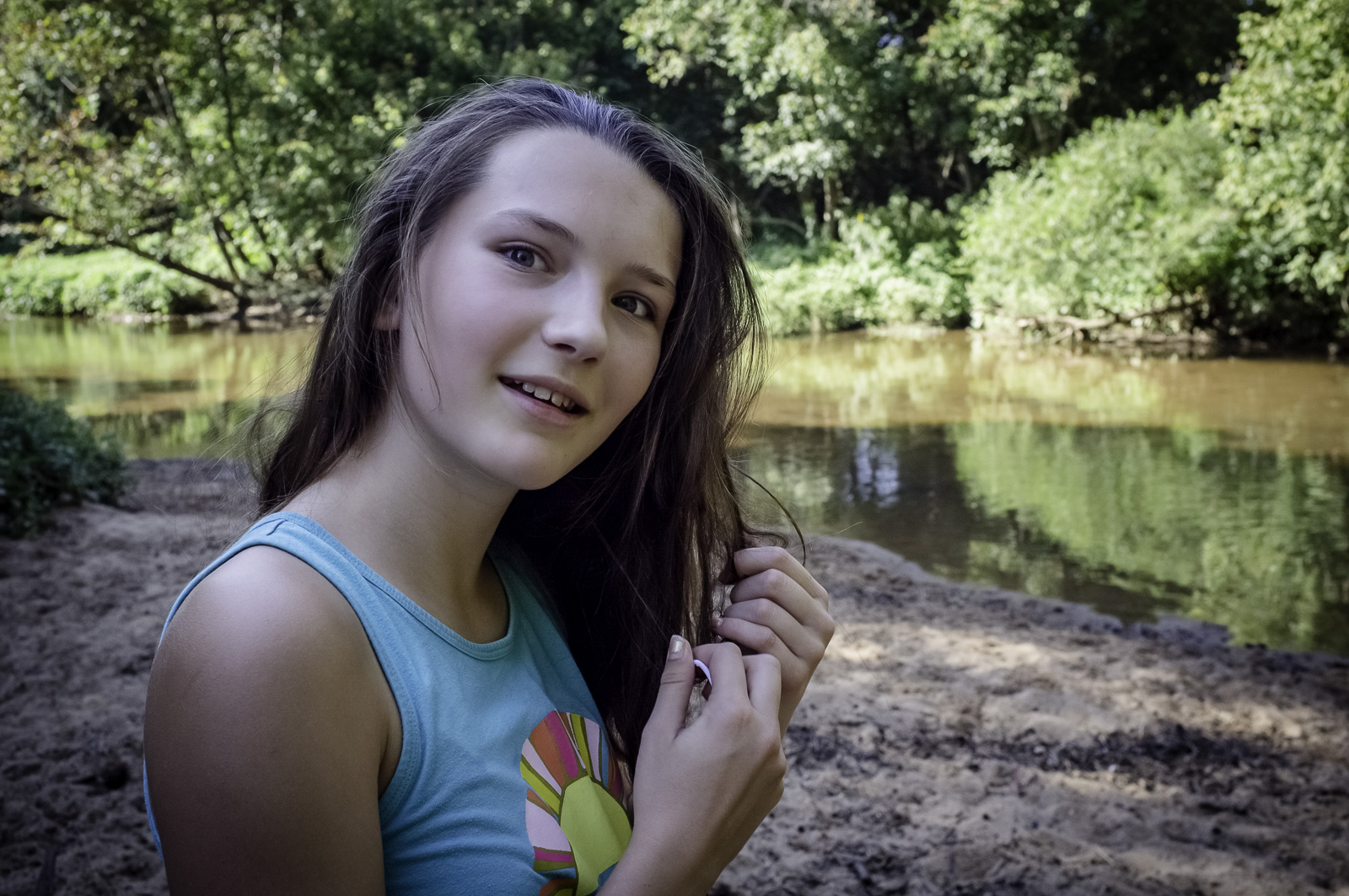
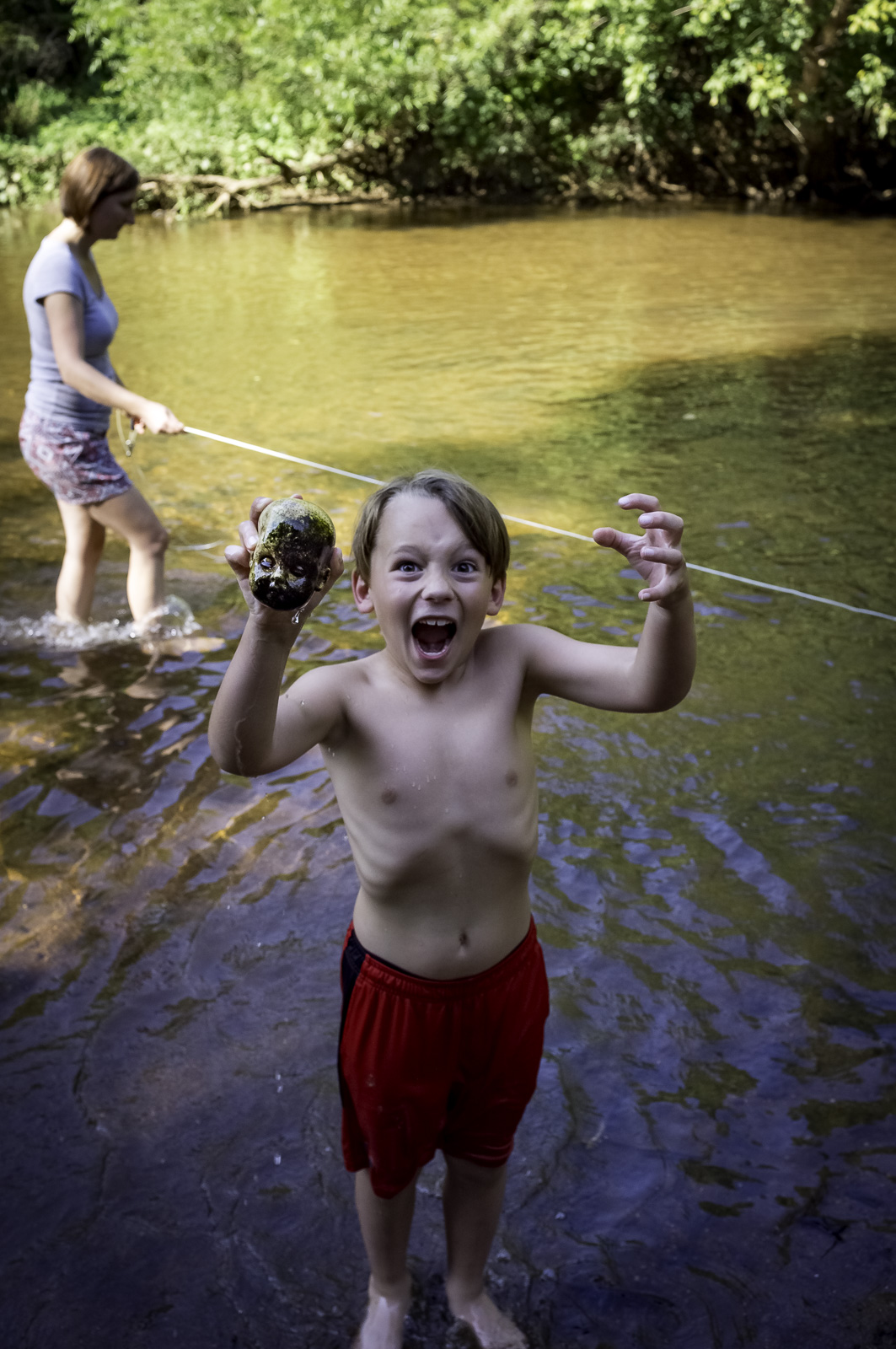
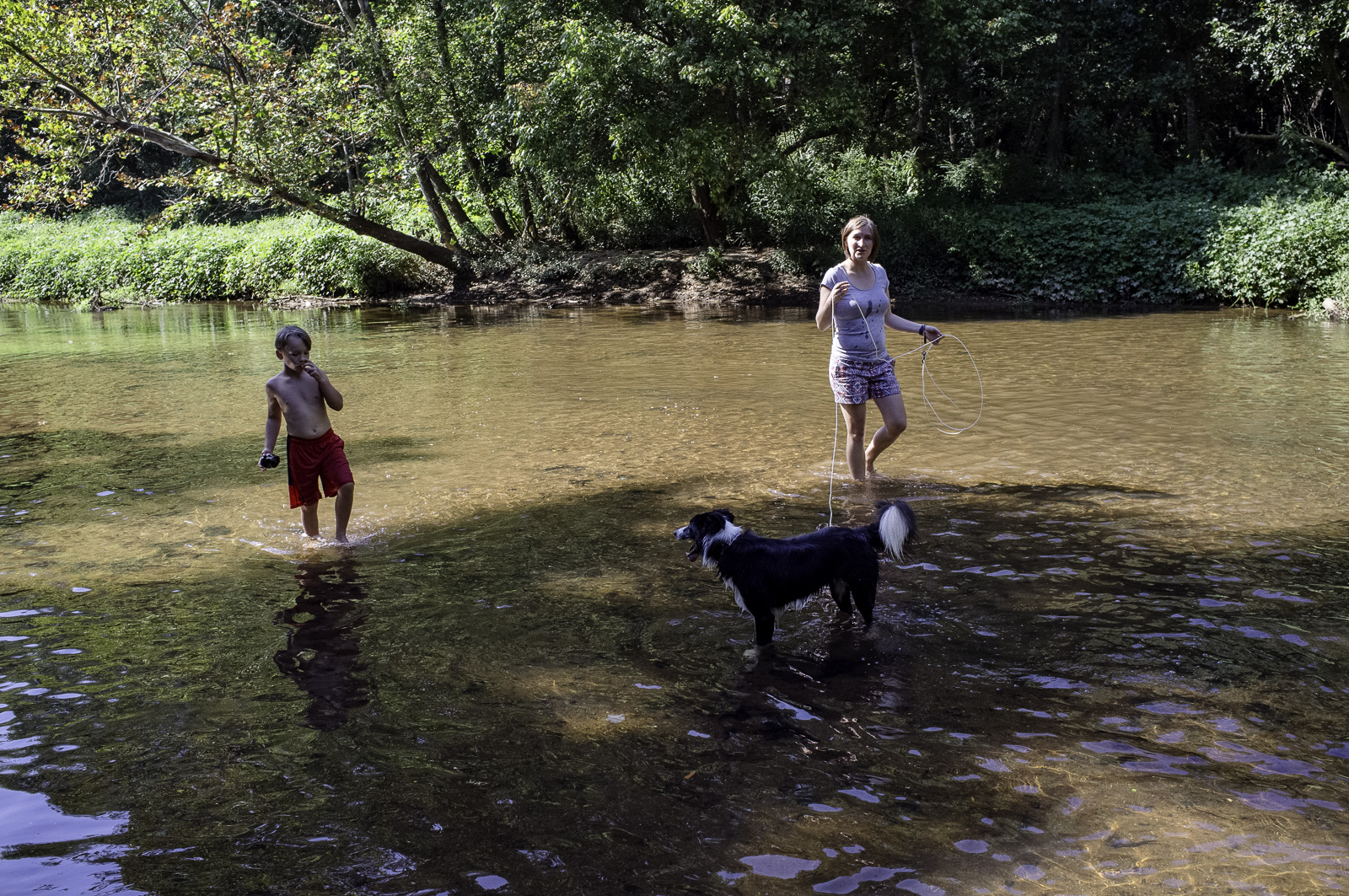

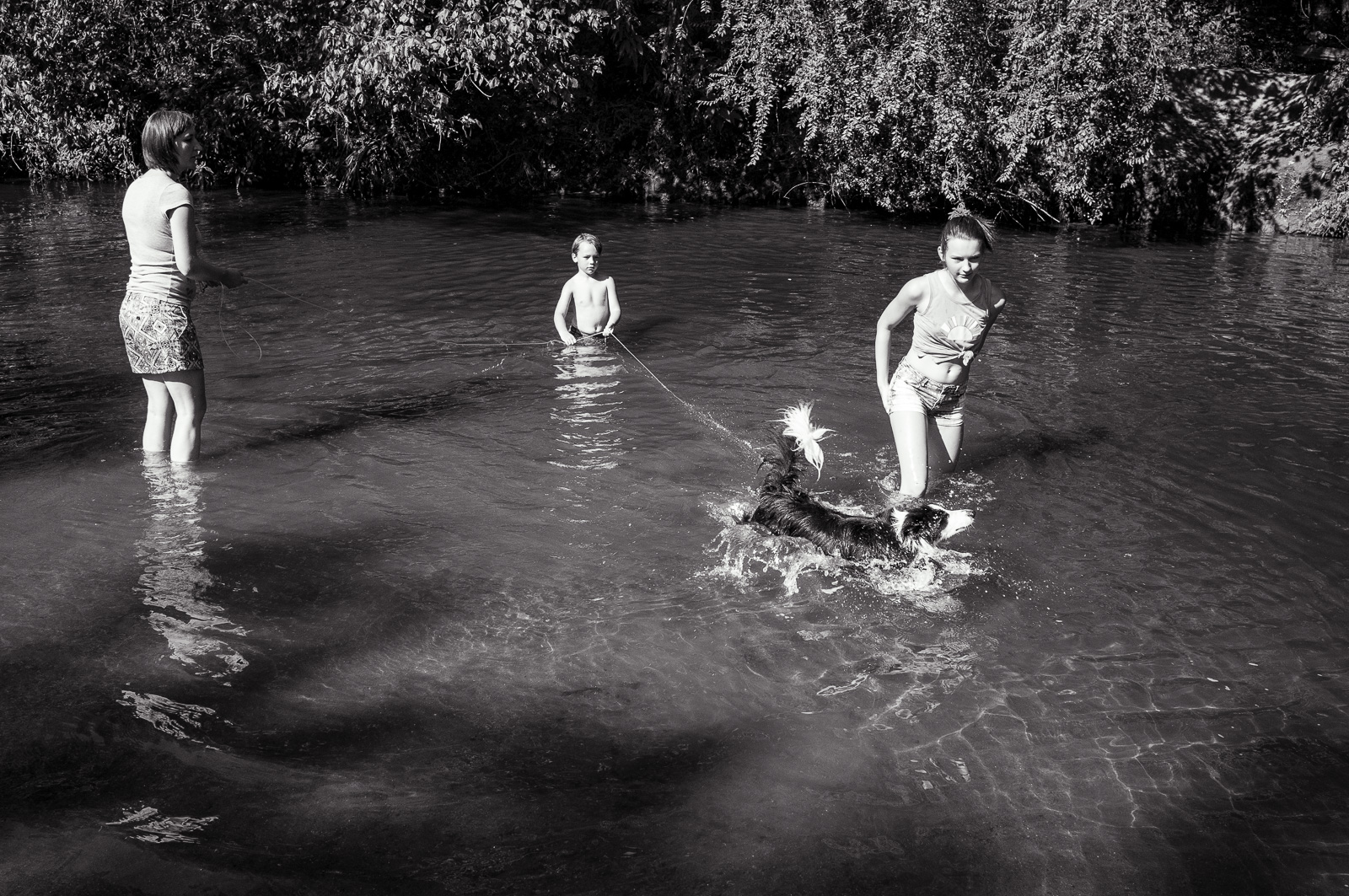
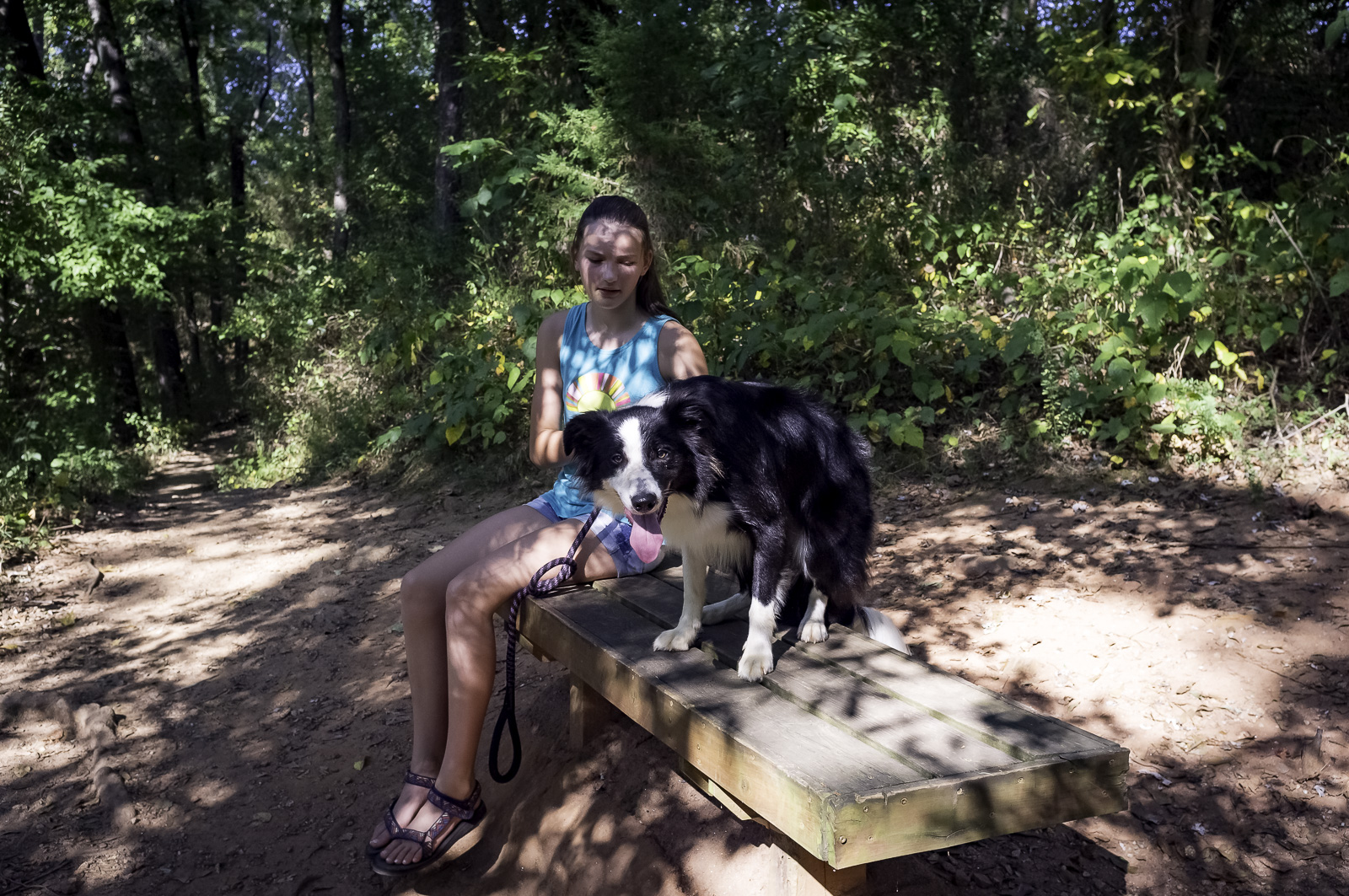
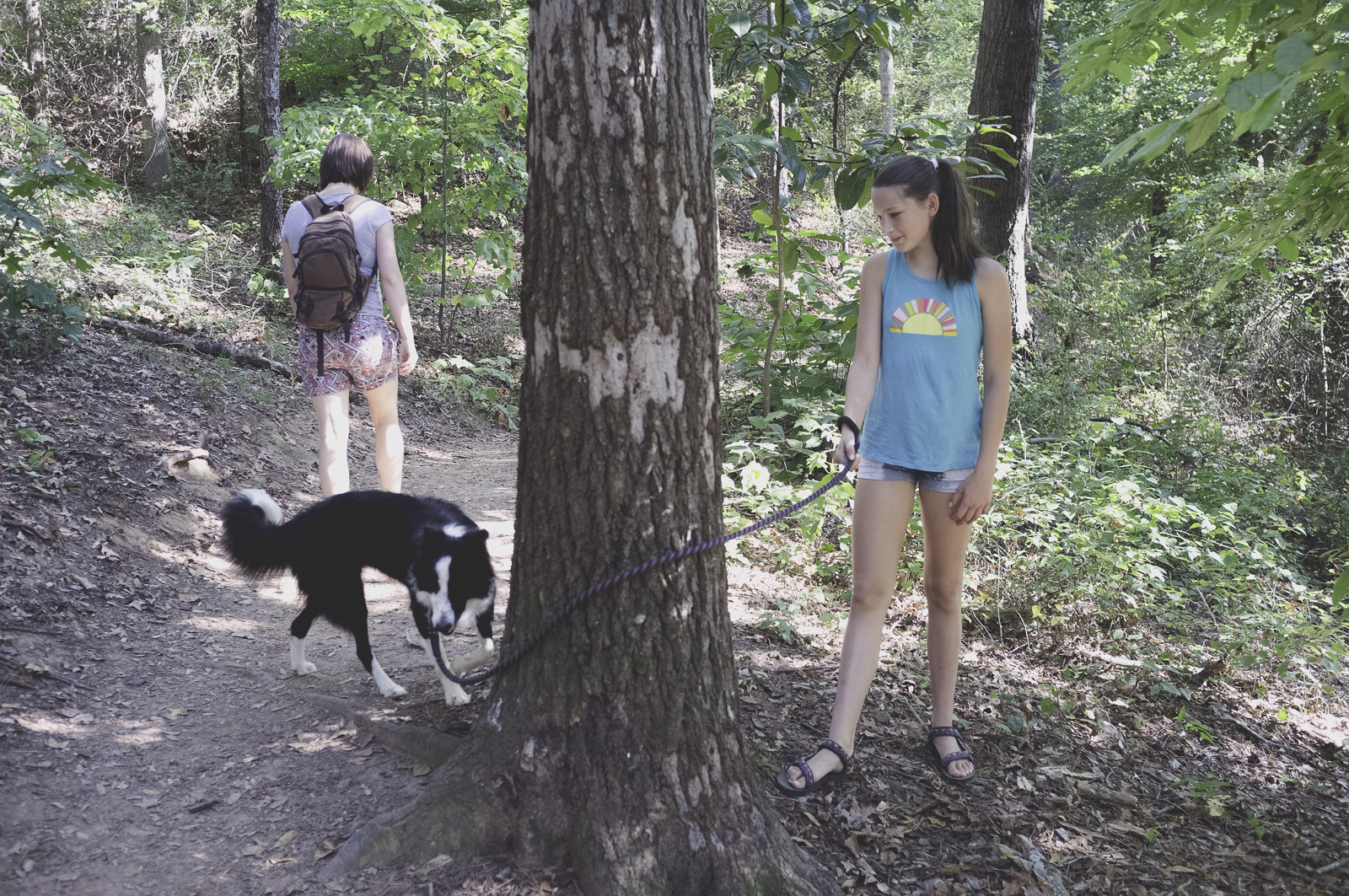

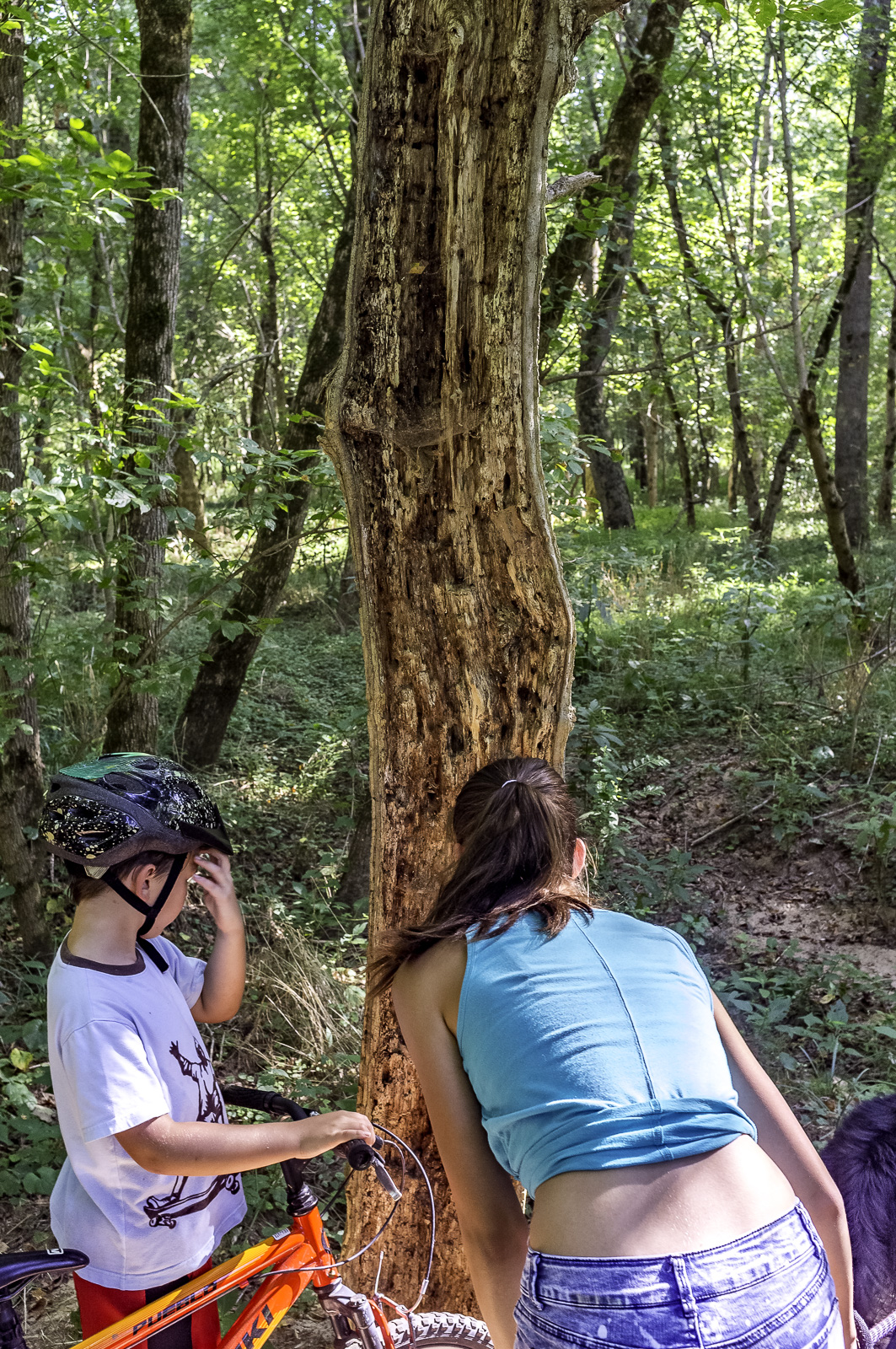
Oconee Afternoon
Palm Sunday 2019
The day started with Mass — sort of. I went to Mass at our usual church in order to photograph the Palm Sunday liturgy, the procession and all that. It’s a lovely liturgy, and to be honest, I just enjoy photographing the Mass more than simply sitting through it.












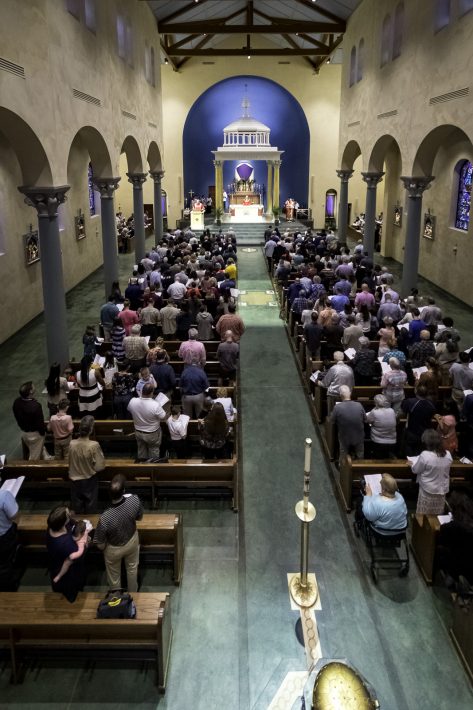


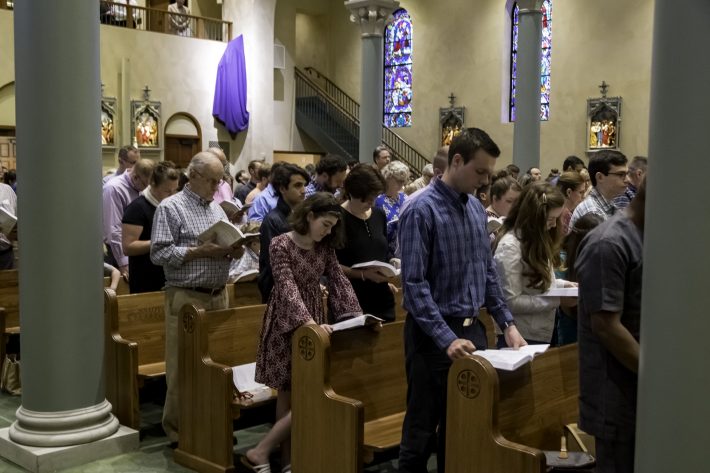

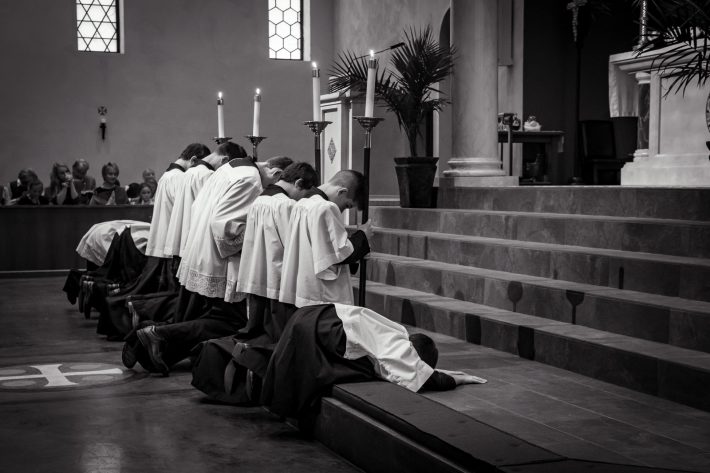




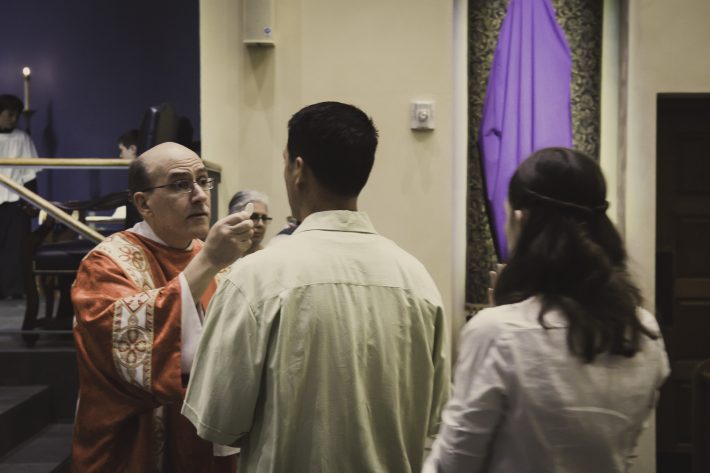

I was alone because the rest of the family was planning on going to Polish Mass in the afternoon. Palm Sunday is always a Polish Mass day, and there’s always a potluck and small get-together afterward. There’s always a contests for the best babka, a contest for the most beautifully-decorated palm, and some performance or another.
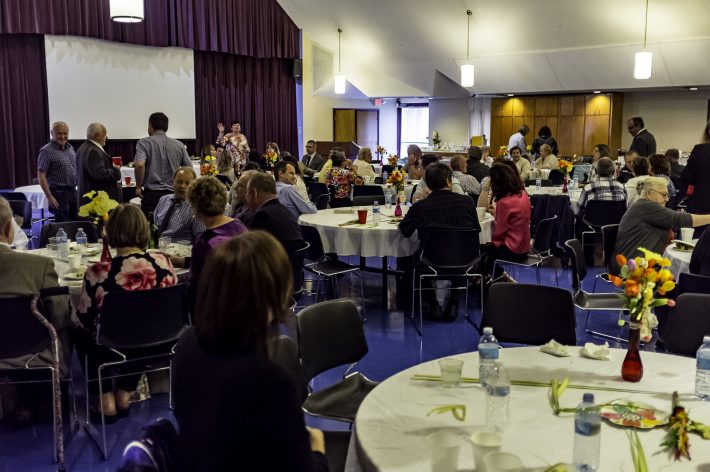
Then again, get more than a couple of Poles together and you’ll end up having one of two things: speeches or songs. Or perhaps you’ll have both.
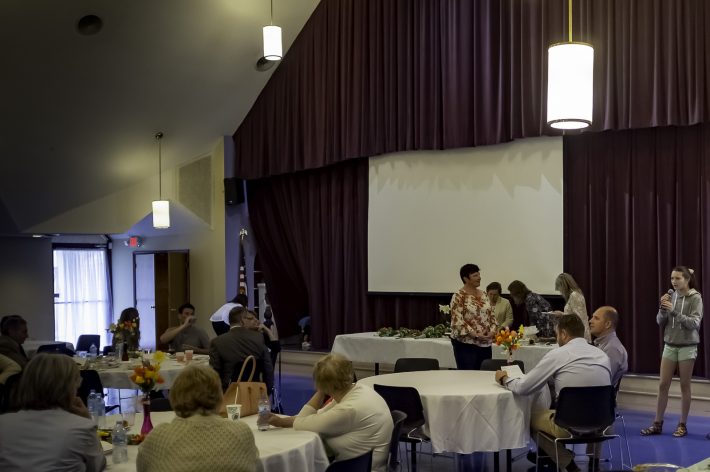
When the call went out for anyone who wanted to perform, it didn’t take too much asking to get the Girl up to sing. She sang a verse from “Stabat Mater” — in Latin. From memory.
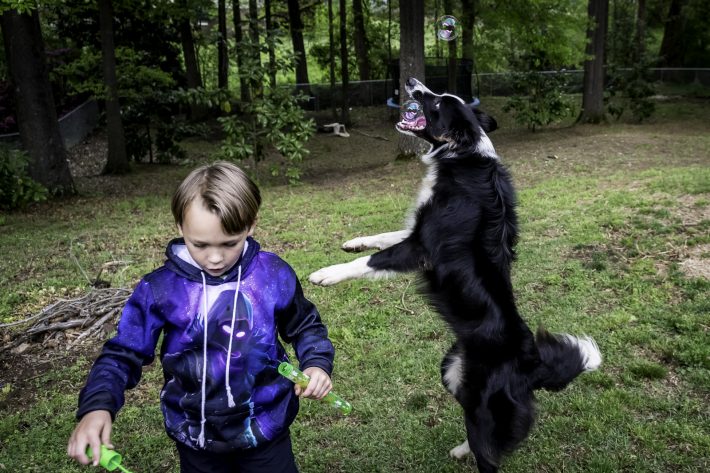
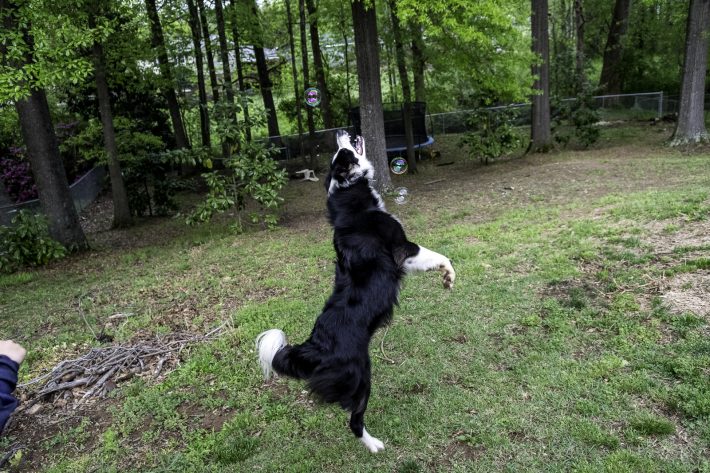
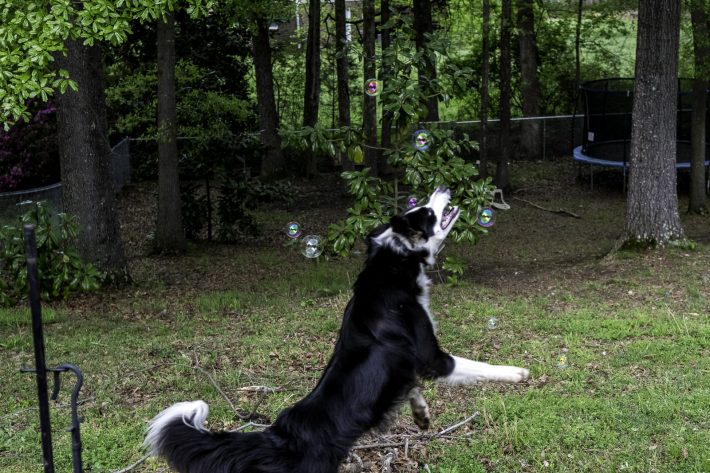
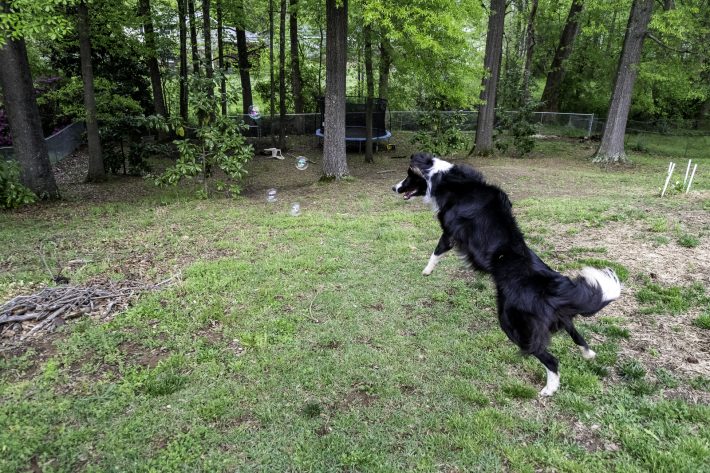
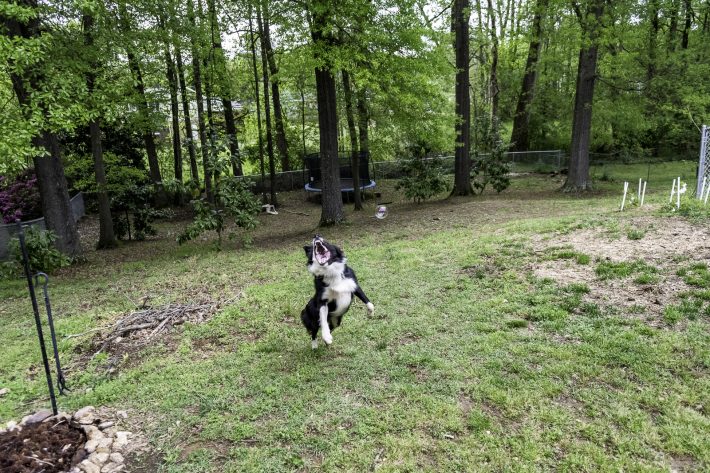
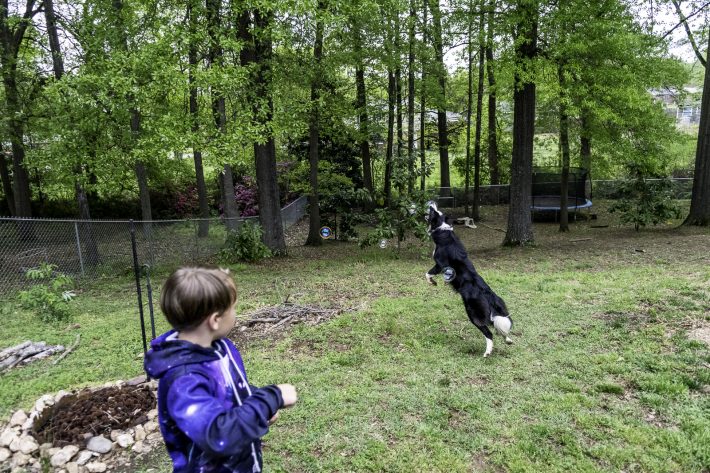
Back at home, we had some fun with Clover and bubbles.
Walking the Dog
The Girl went to Asheville to spend the weekend with T and C, cousins for all intents and purposes. While K went to retrieve her this afternoon, the Boy and I headed to a scout meeting and then to our favorite park to walk Clover. With all the upheaval in our lives lately, we really neglected the dog. Our nightly jogs/walks have all but ceased: with K taking care of Nana and Papa until the renovation is done, and we move them in, I’m reticent to leave the kids in the house alone. They’d do fine, I’m sure: L stays alone regularly without any problem, but if the Boy were to wake while I were out, it might be problematic. Plus, I’ve been going to bed at 9:30 on a regular basis. So today we decided that we had to get Clover out and about.
We met a few dogs along the way. It’s always a little stressful for me when that happens while the Boy is leading the dog. Clover gets so very excited so very quickly, and her excitement becomes manic and borderline aggressive, so I always tell him “Choke up” as we approach.
Today we also encountered a group out for a photo shoot. The photographer sat on one railing of the bridge, with two cameras worth somewhere in the neighborhood of $5000 I would guess based on the peek I took as we passed; the subject sat on the other; we walked in between them, at their behest.
“That’s not smart, sitting like that,” I said to the Boy.
“I know,” he said in utmost seriousness.
